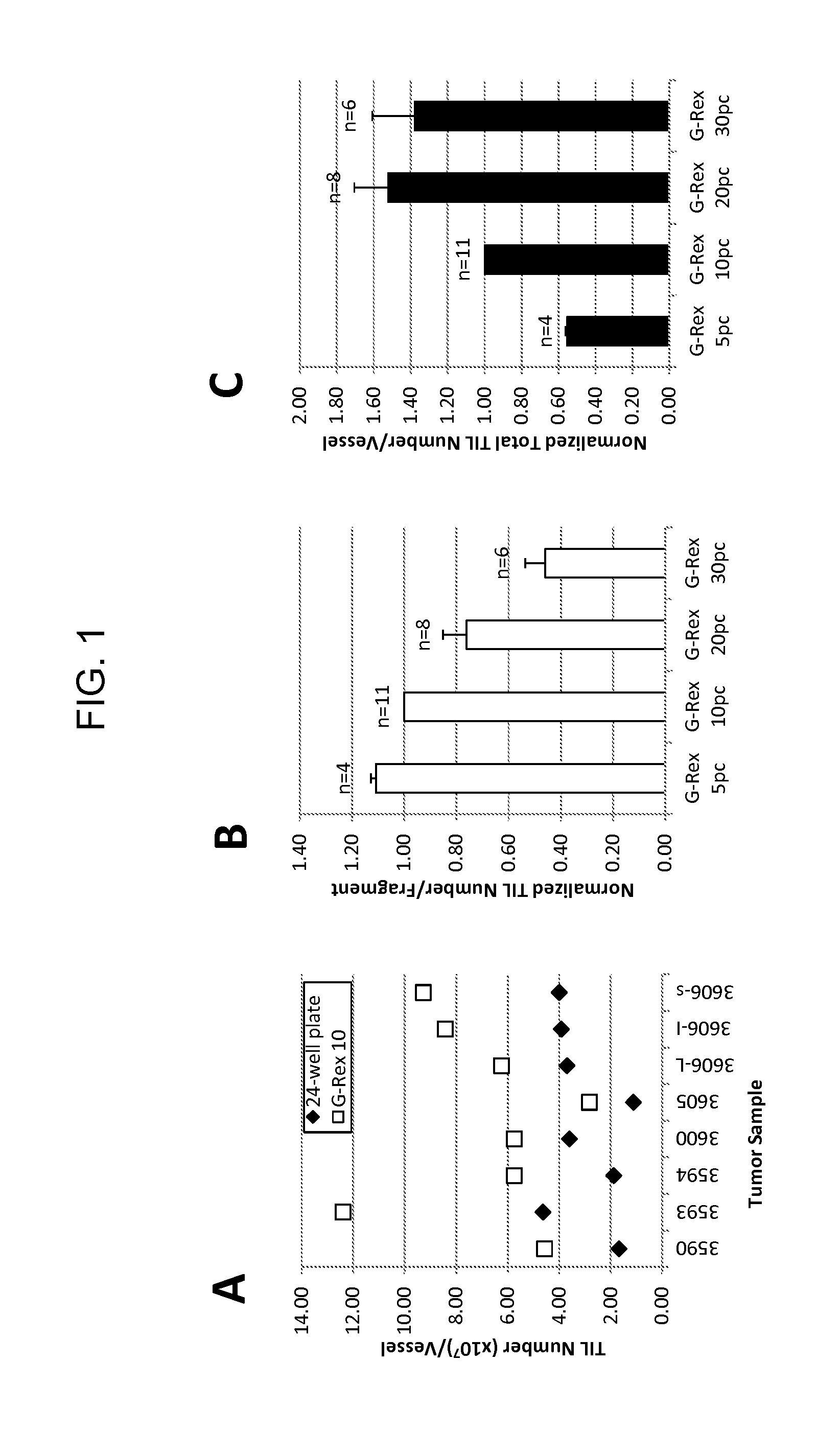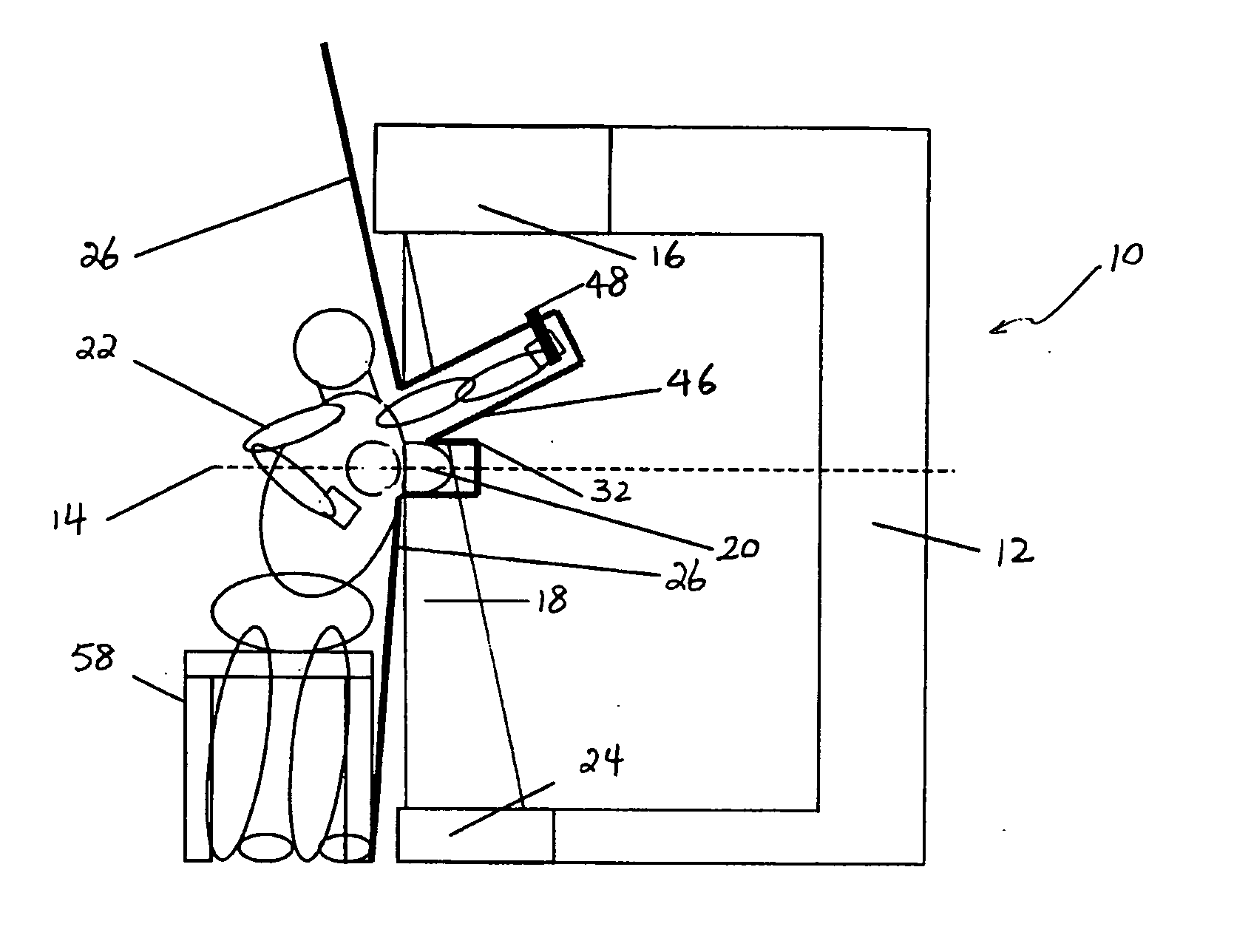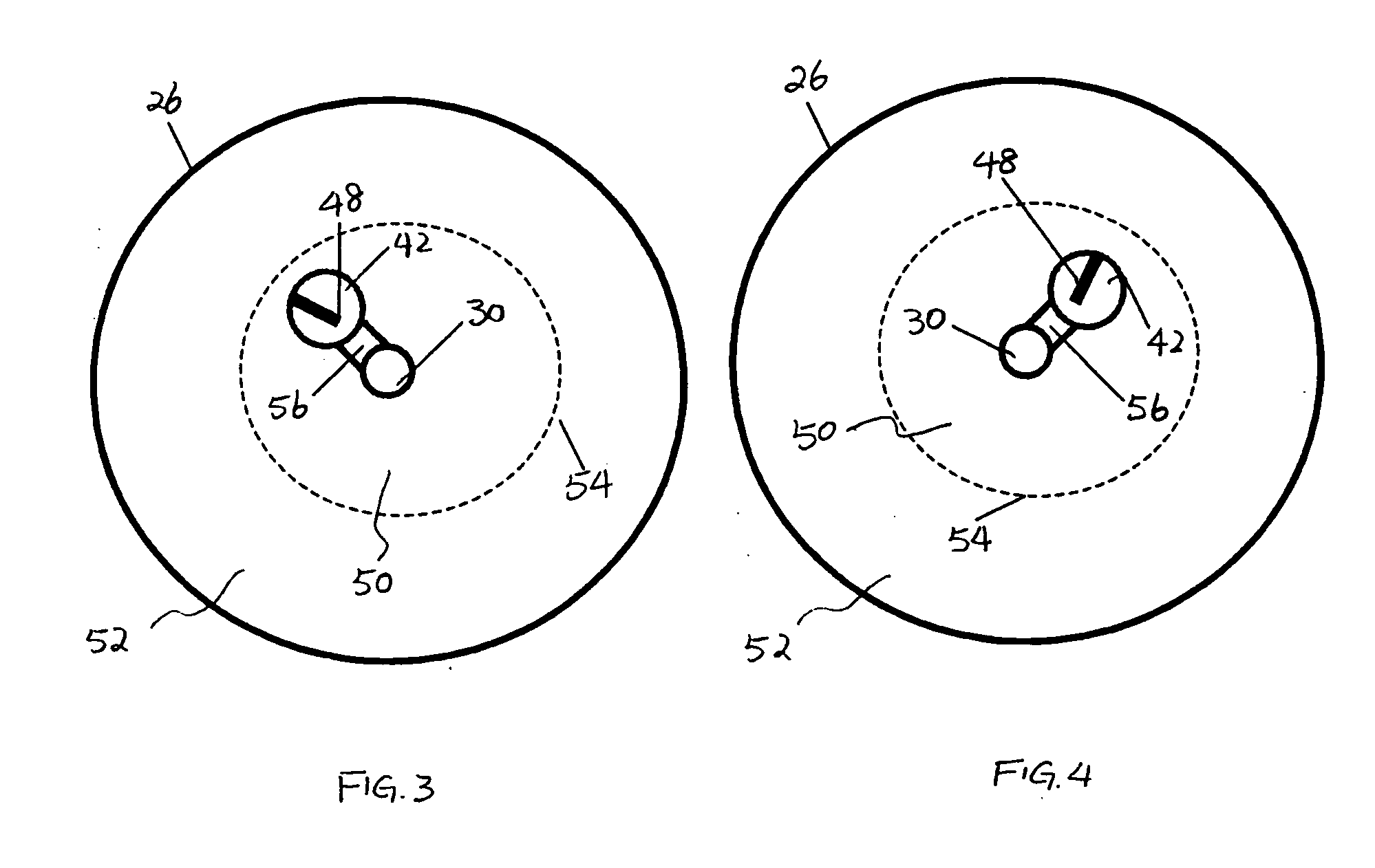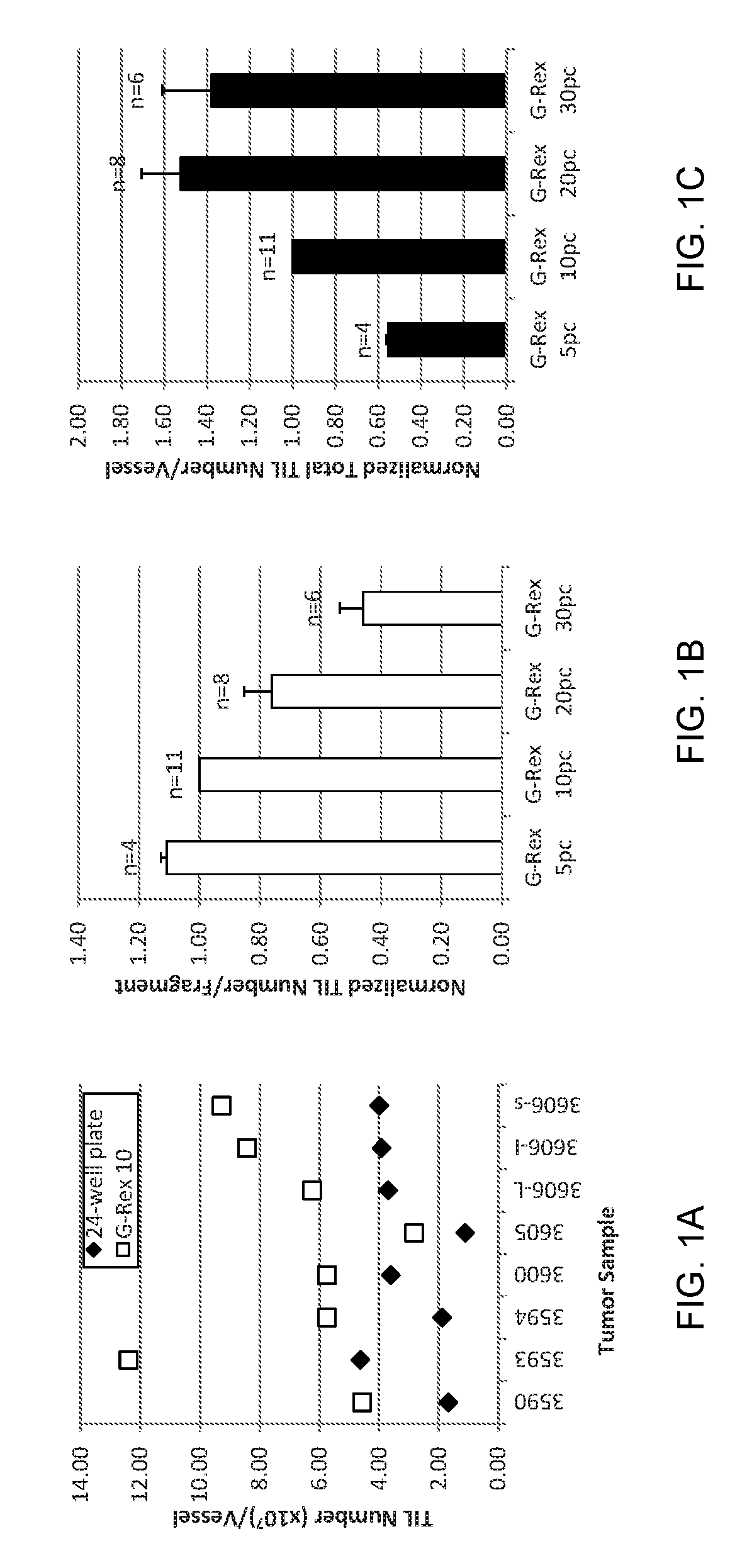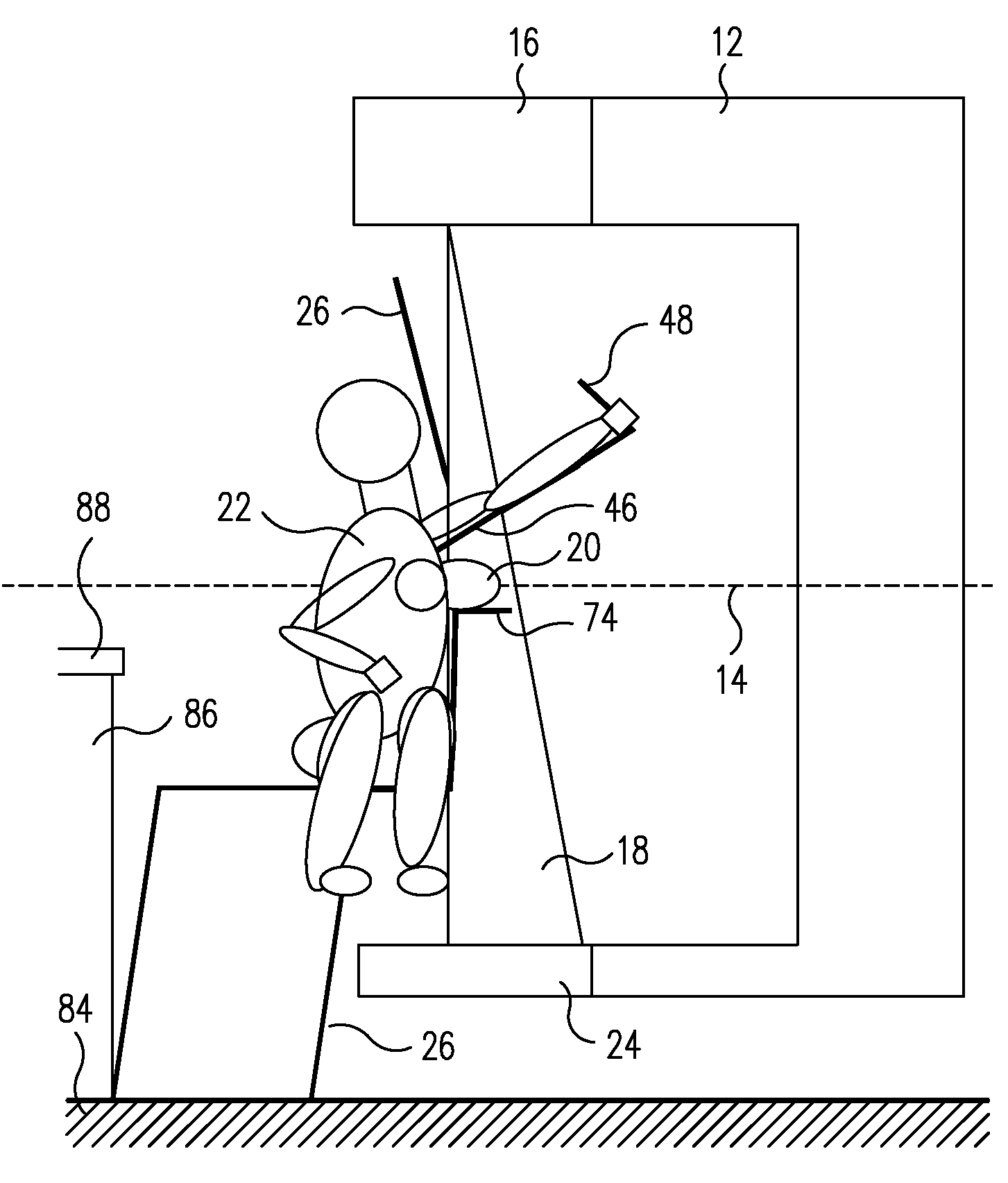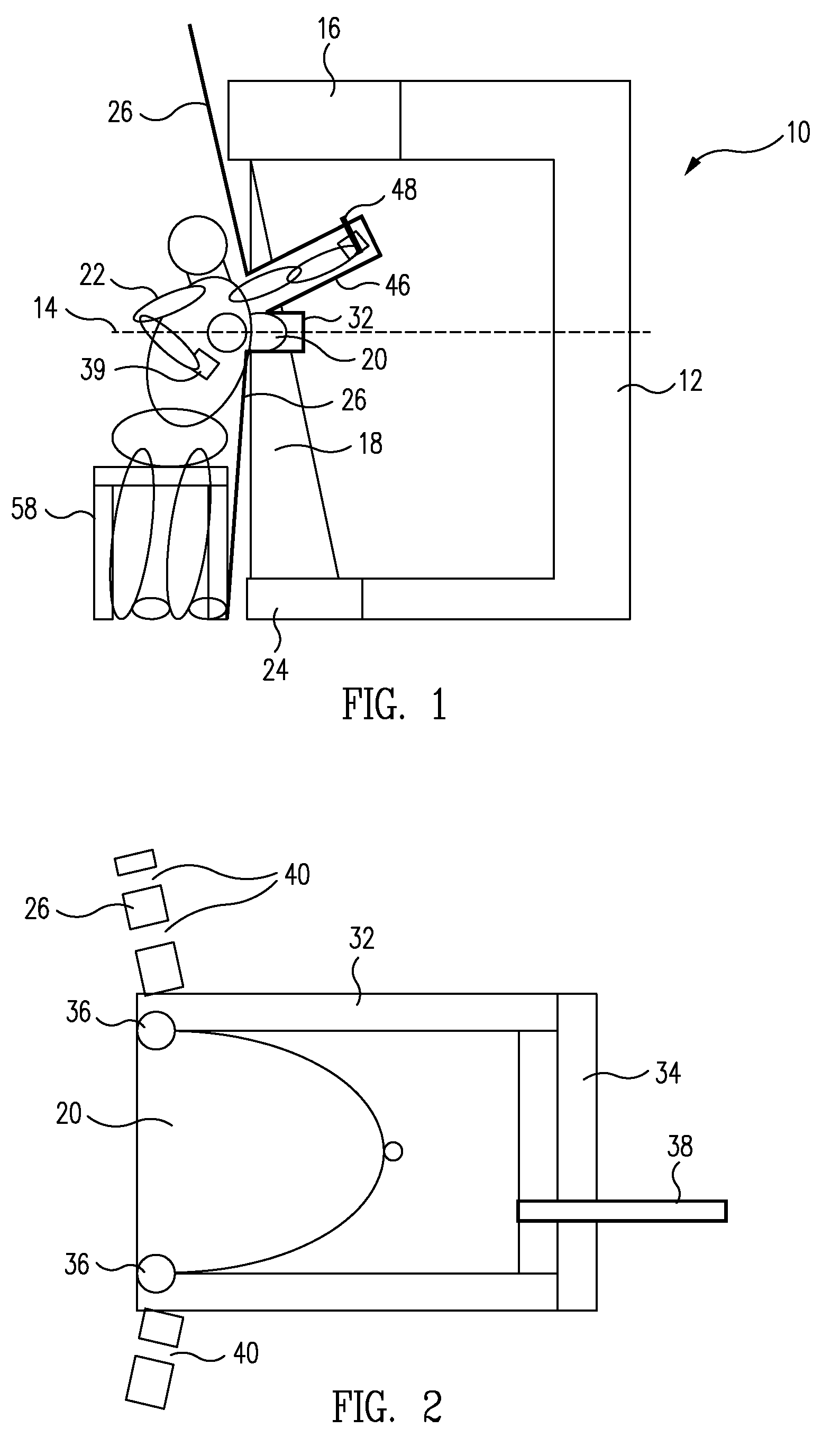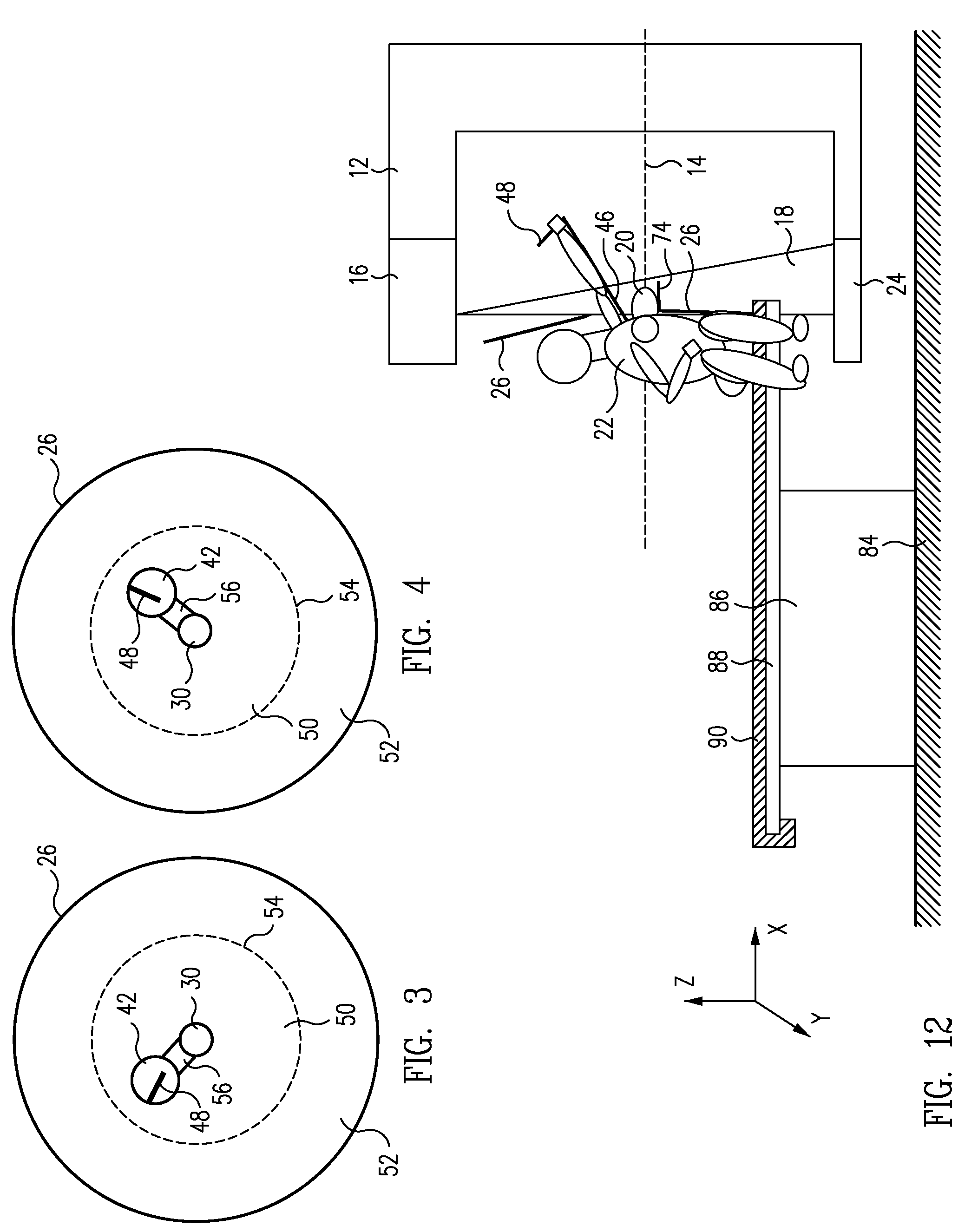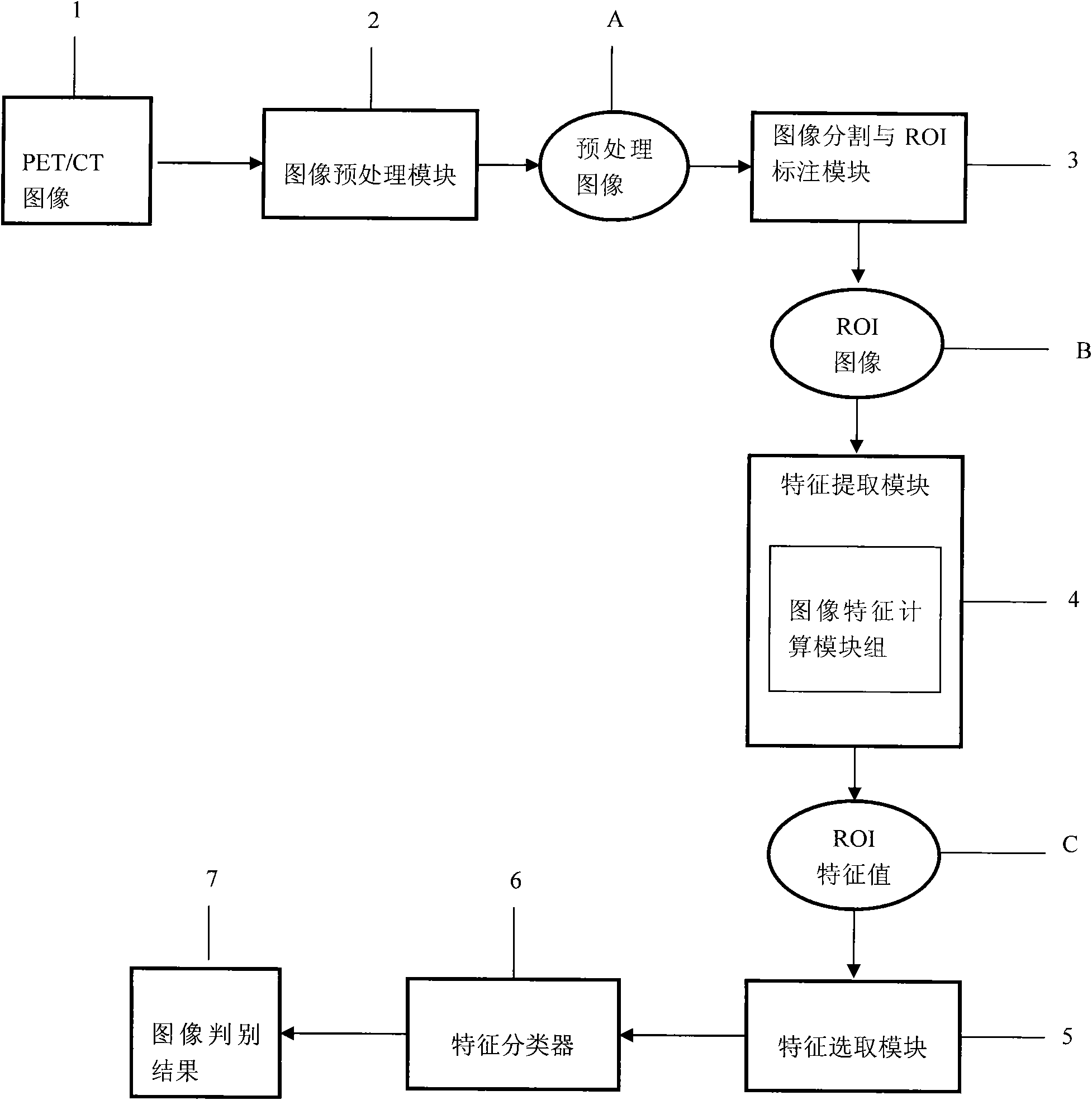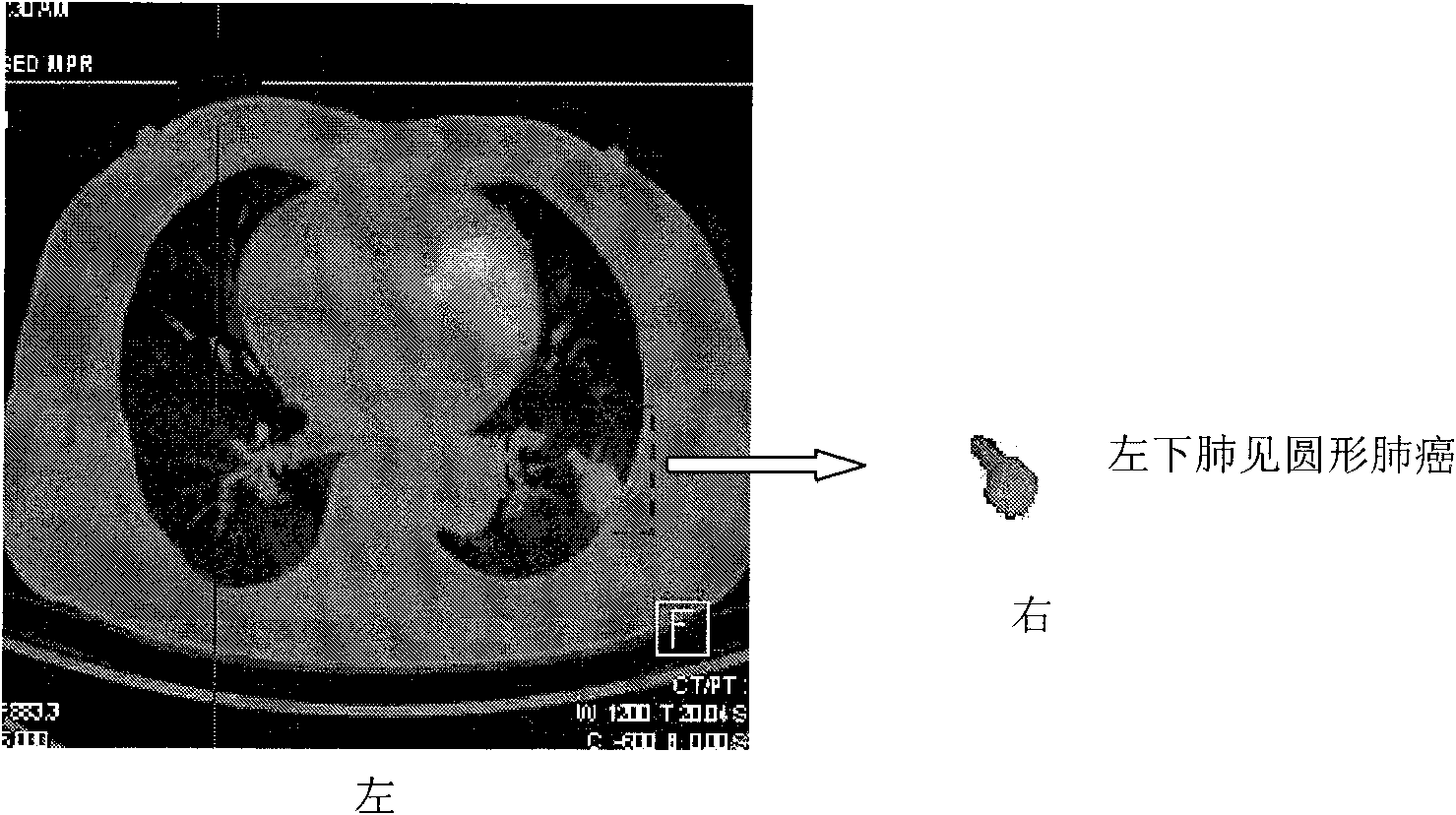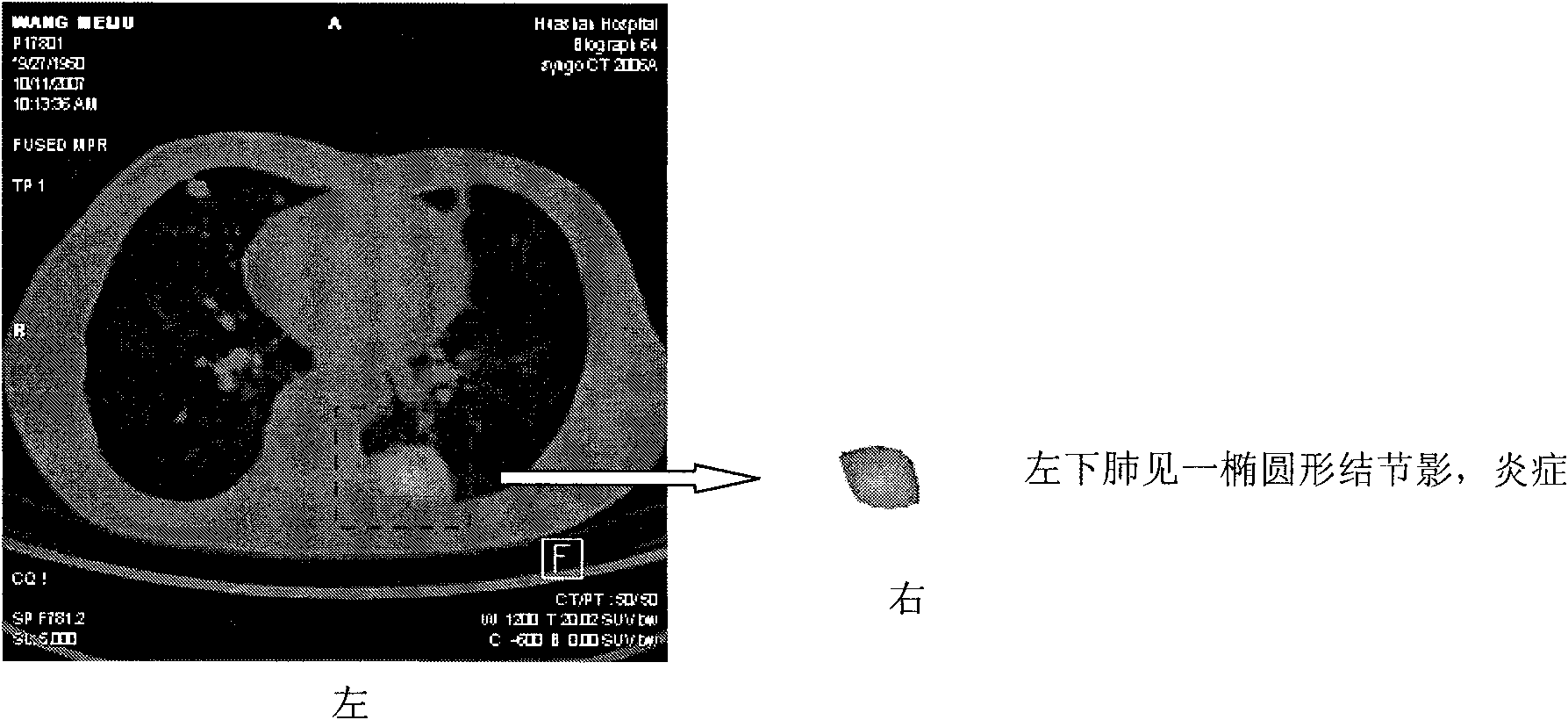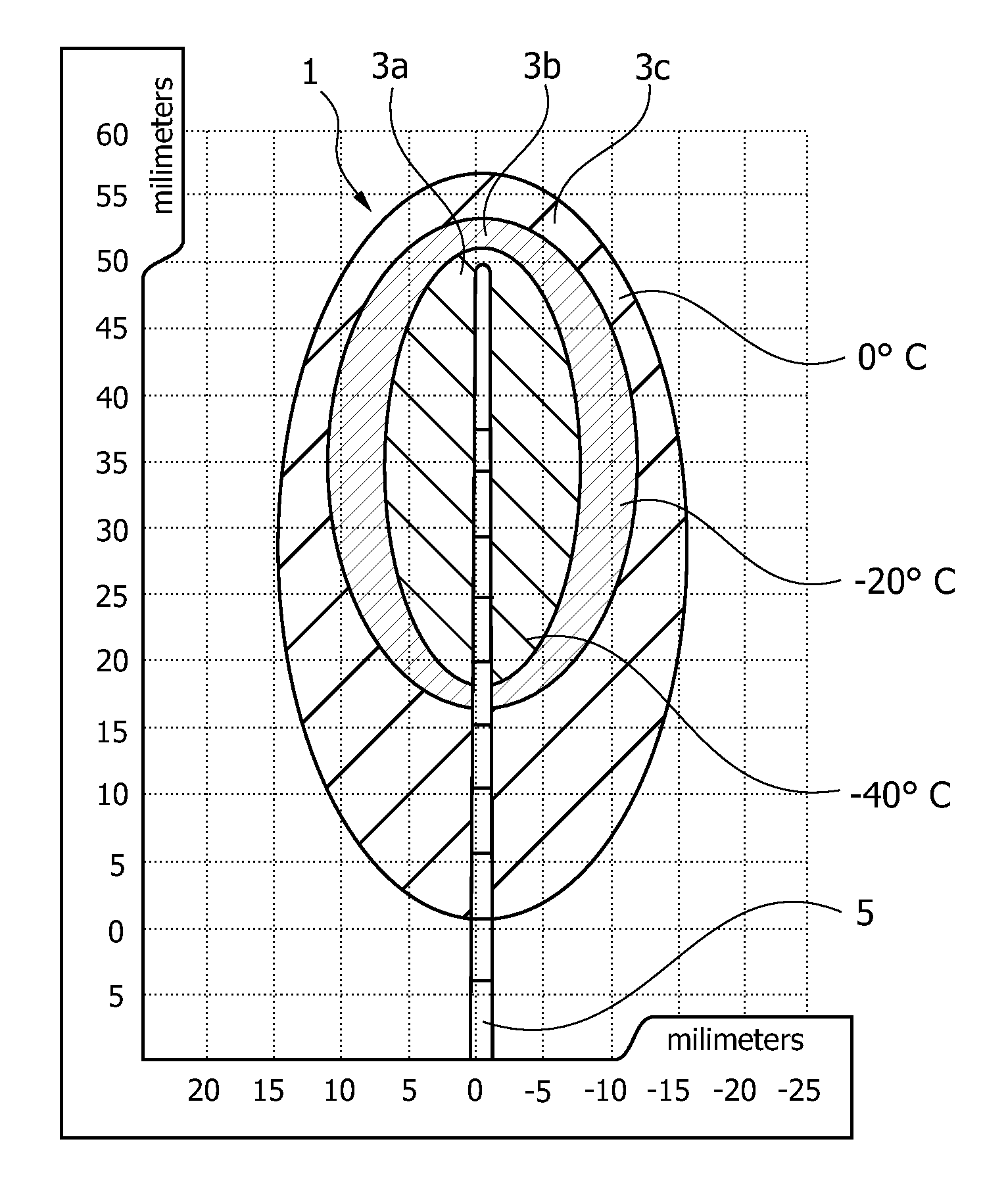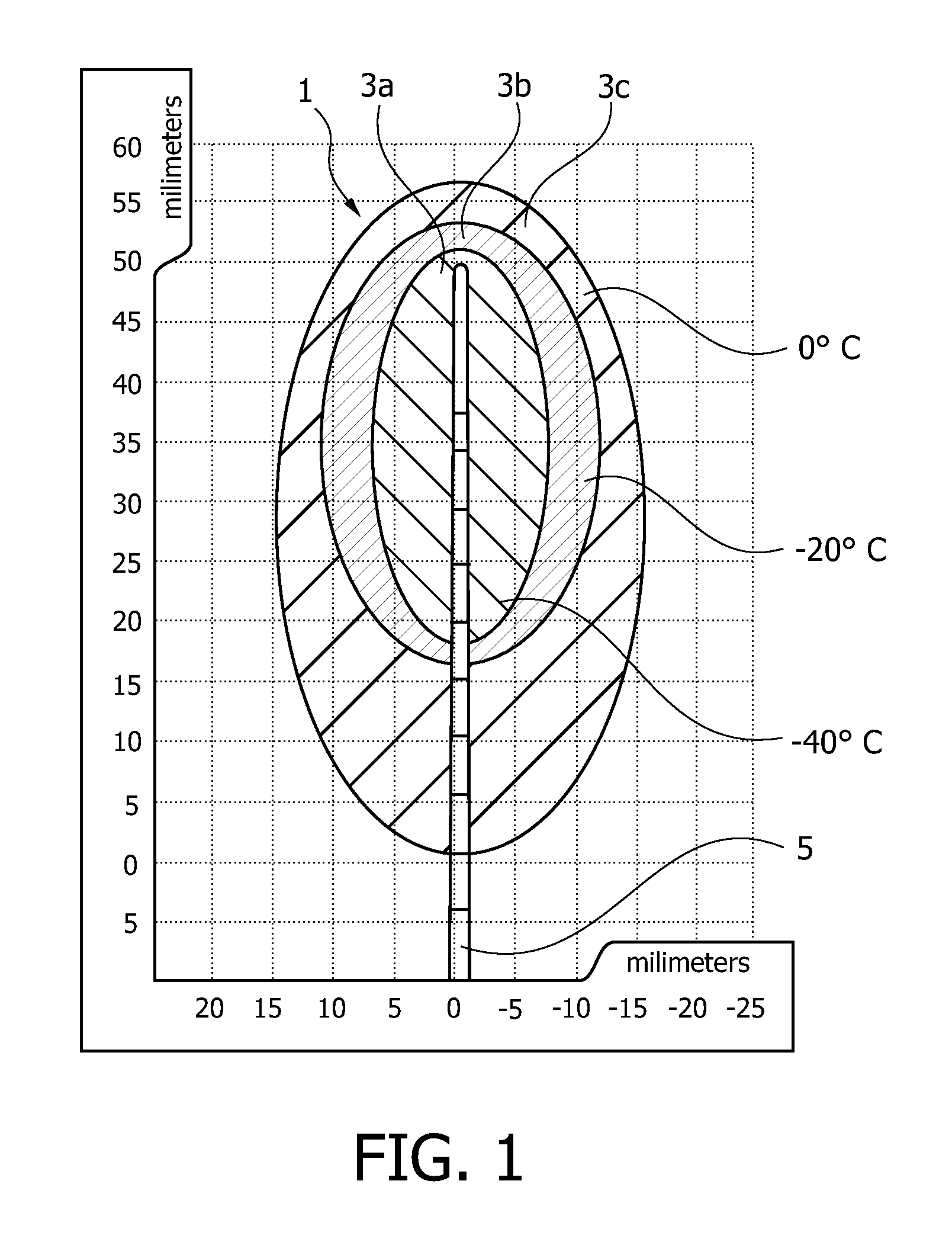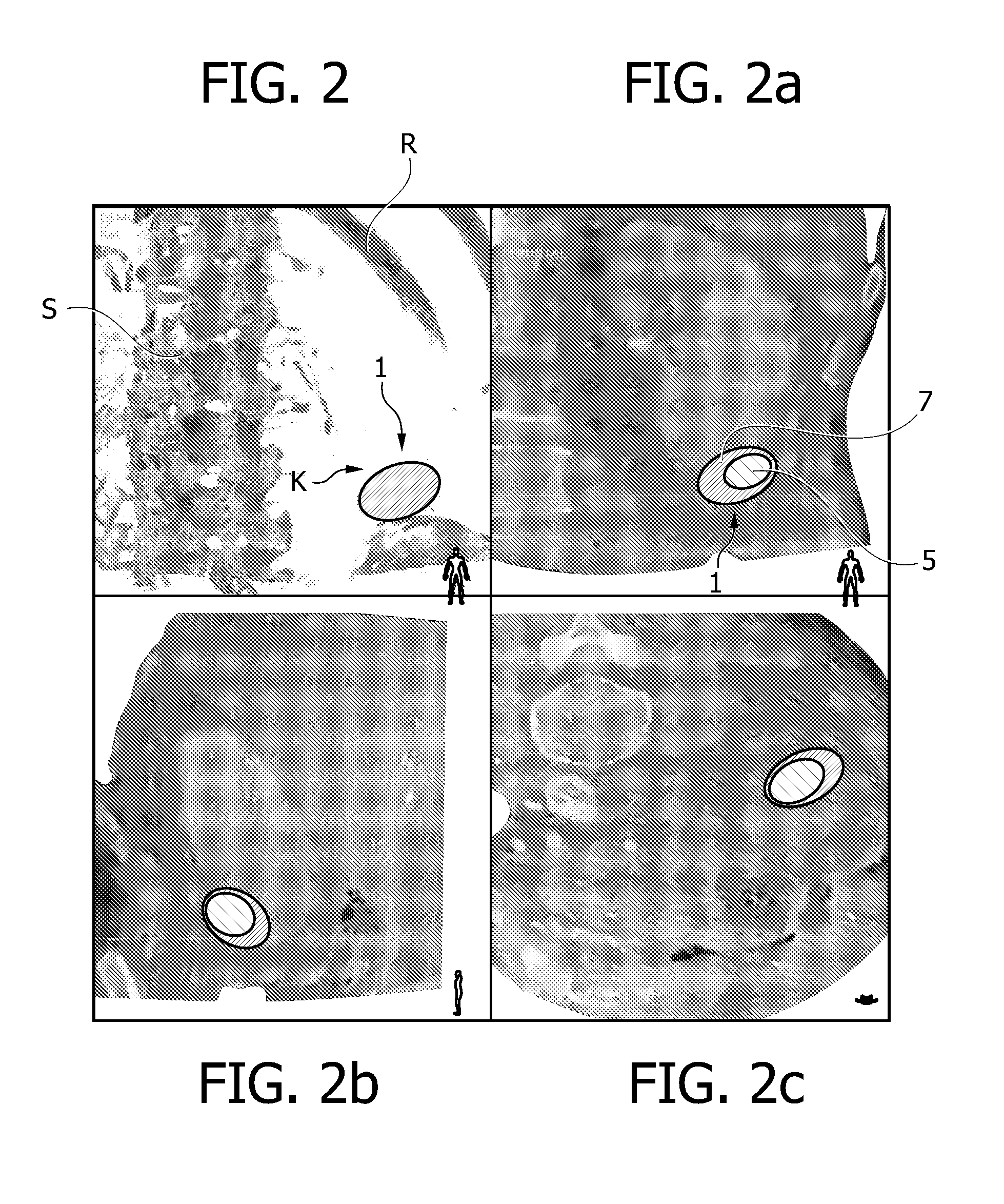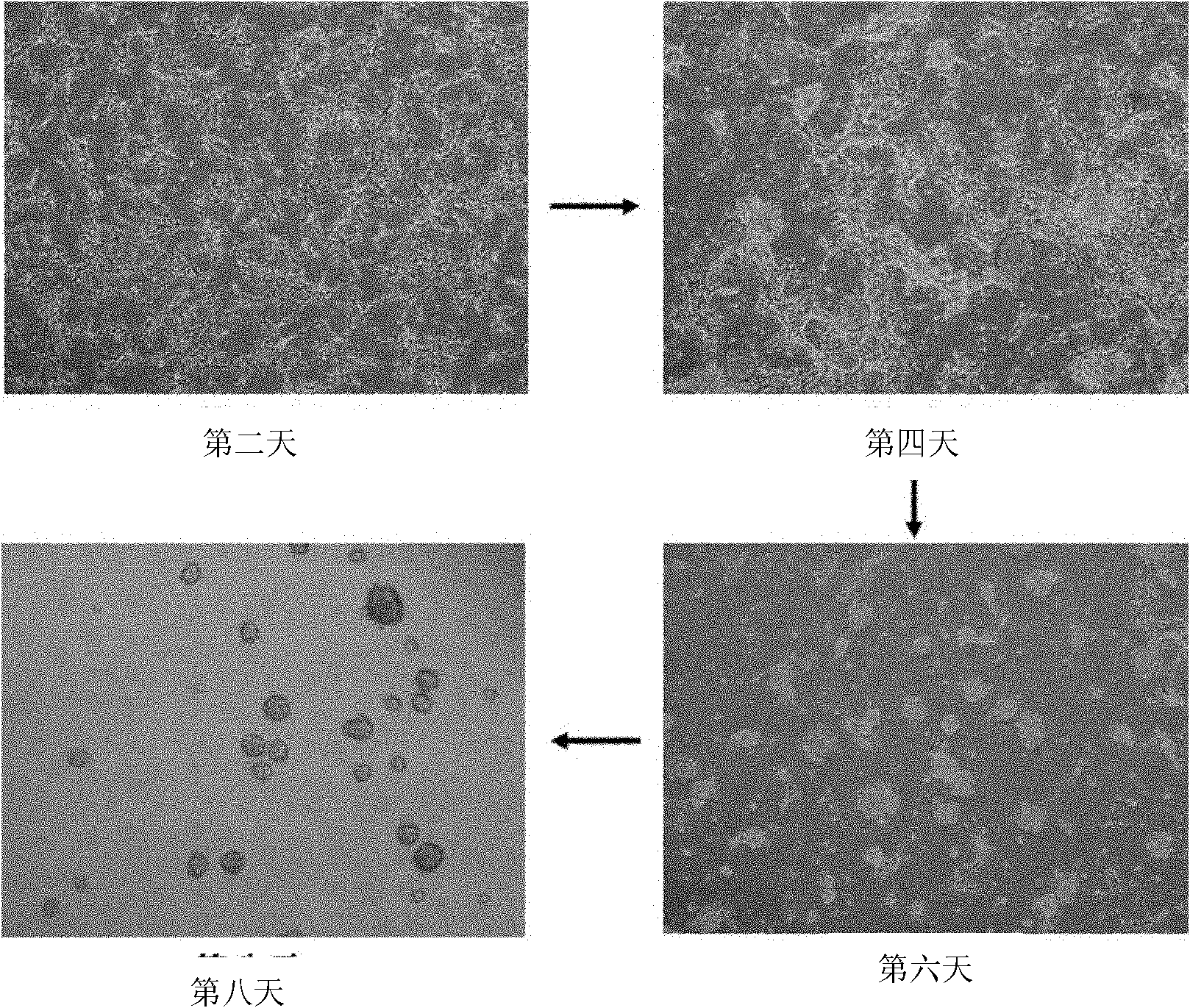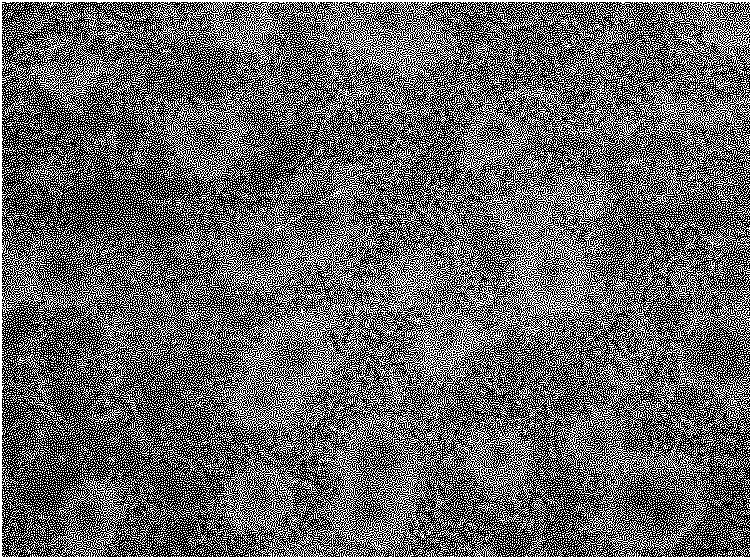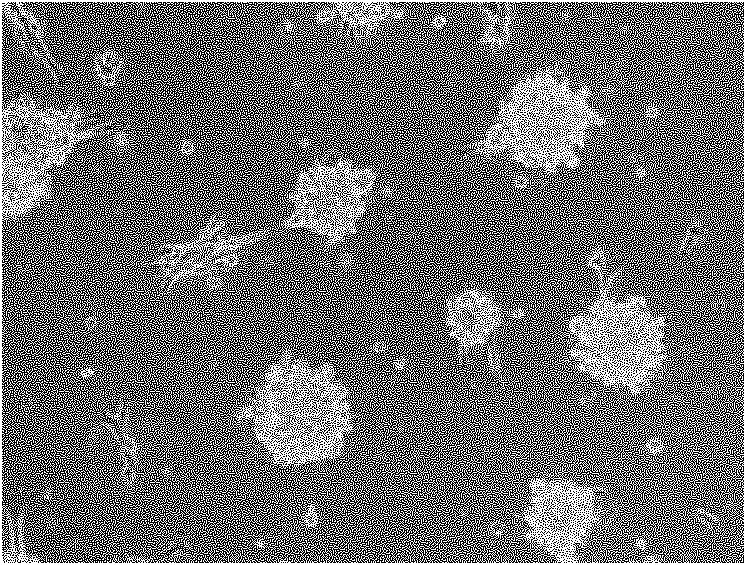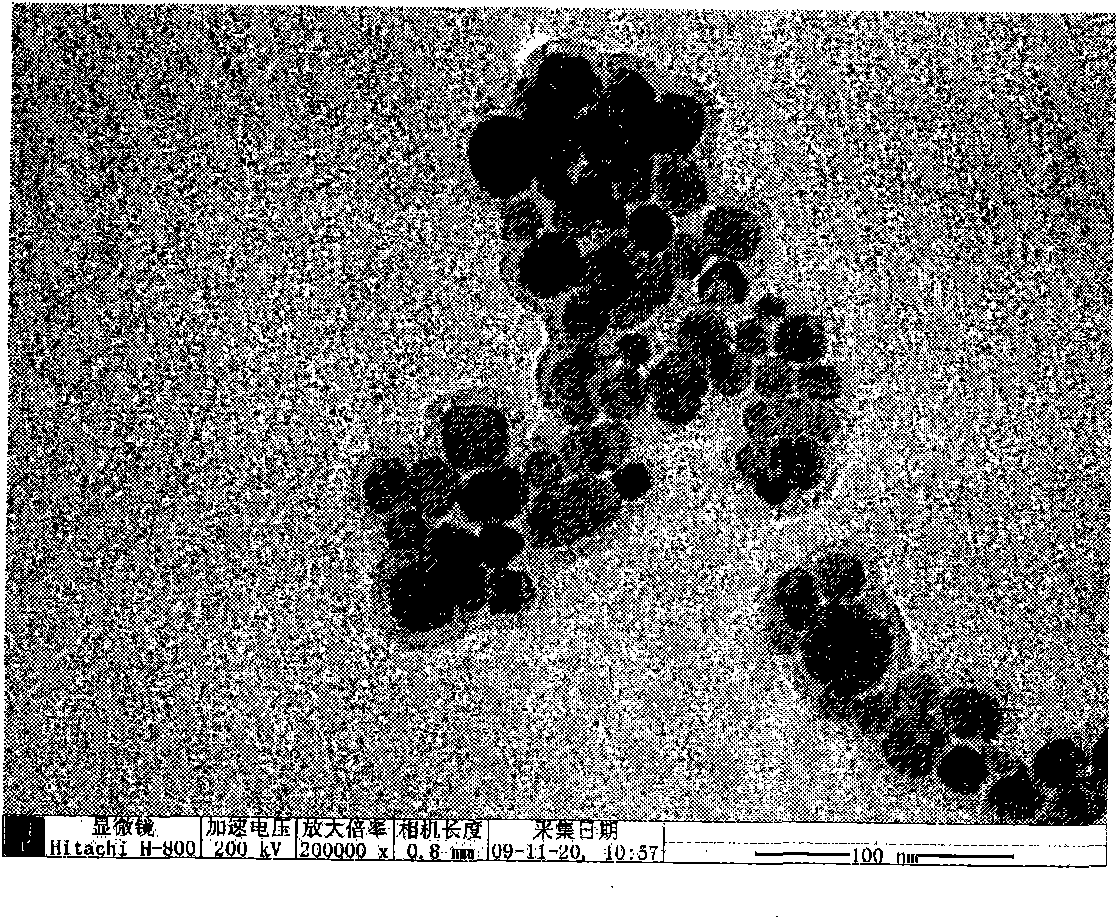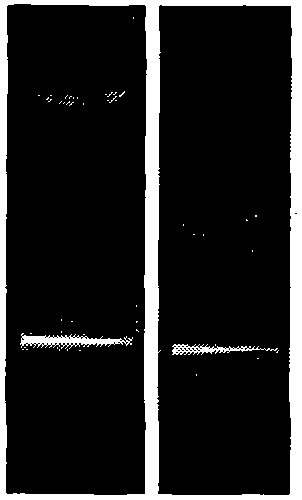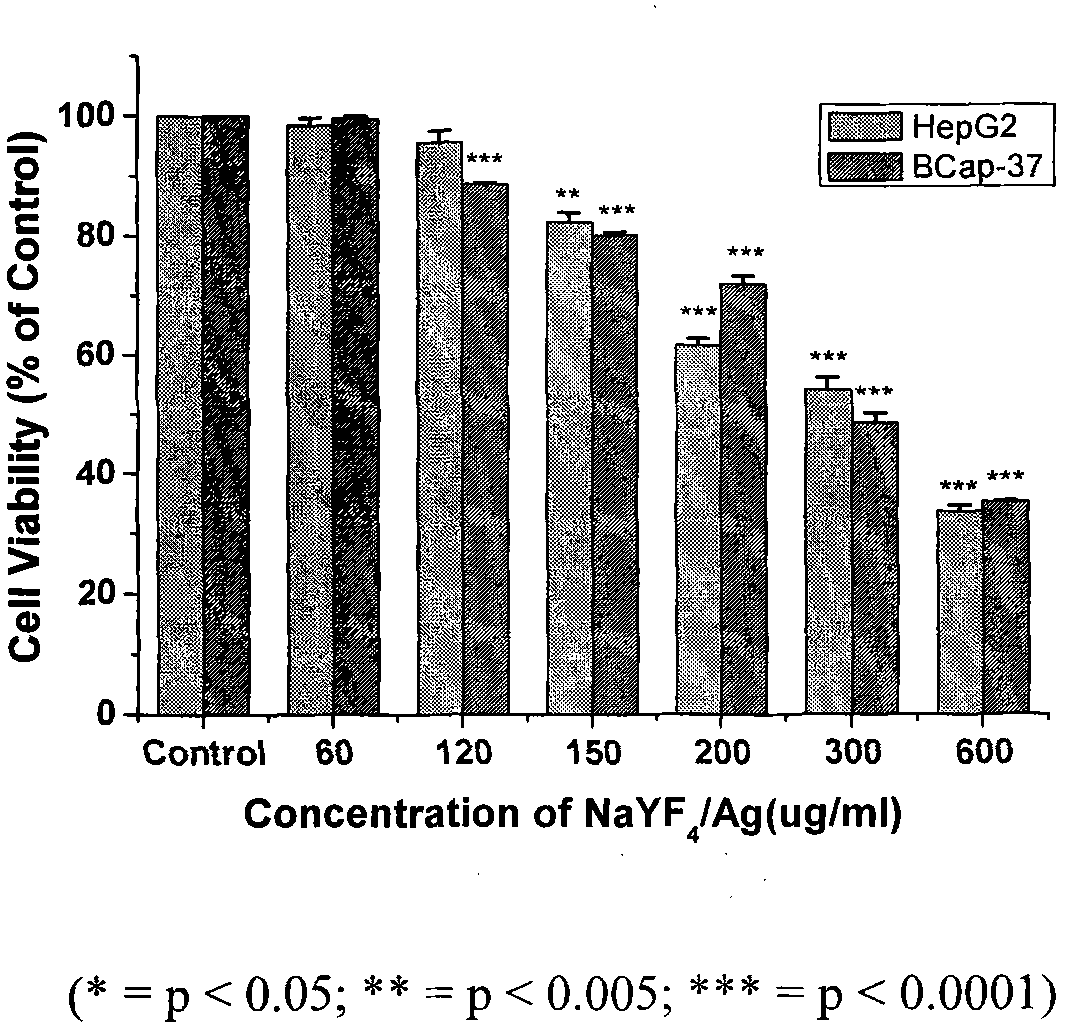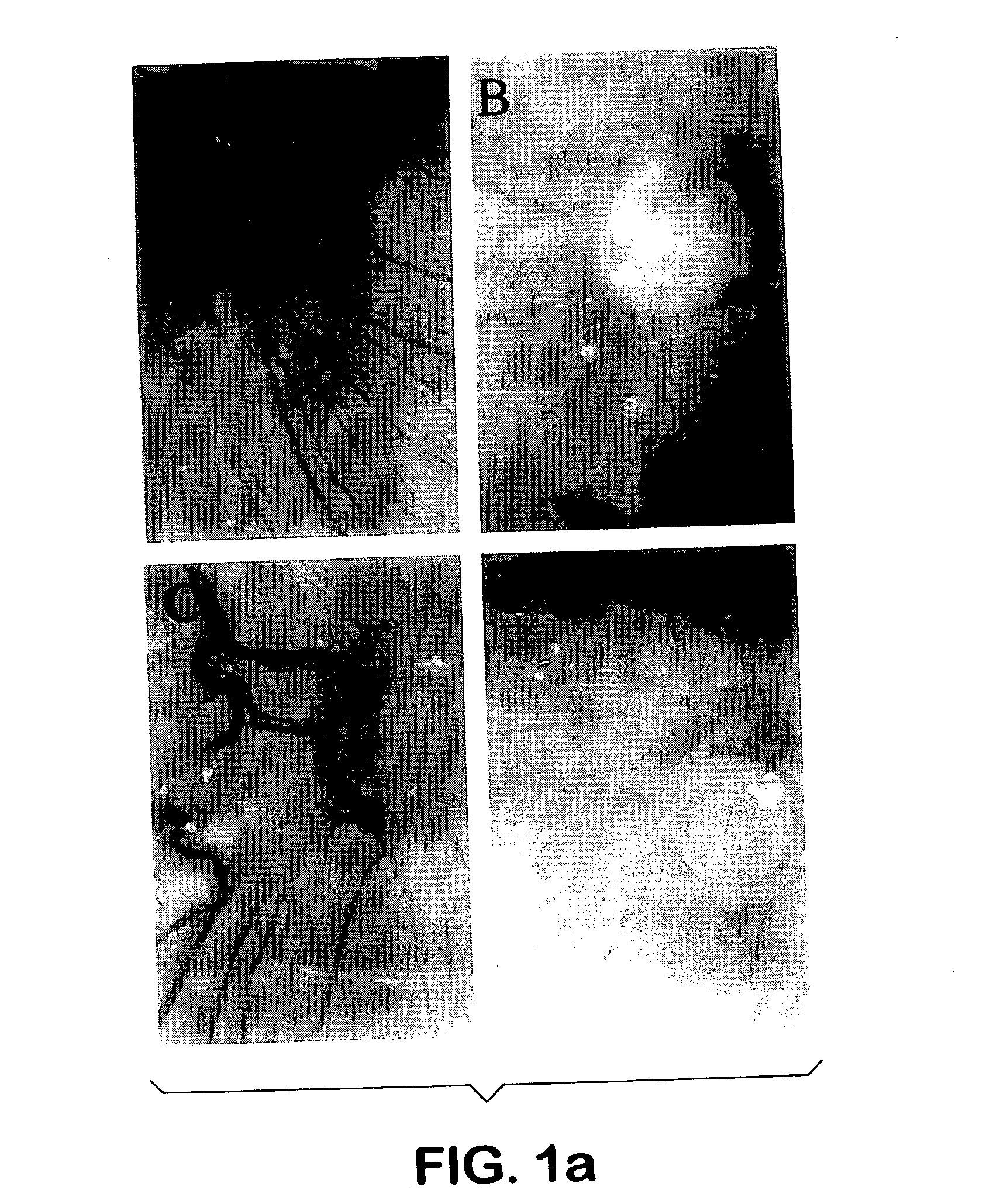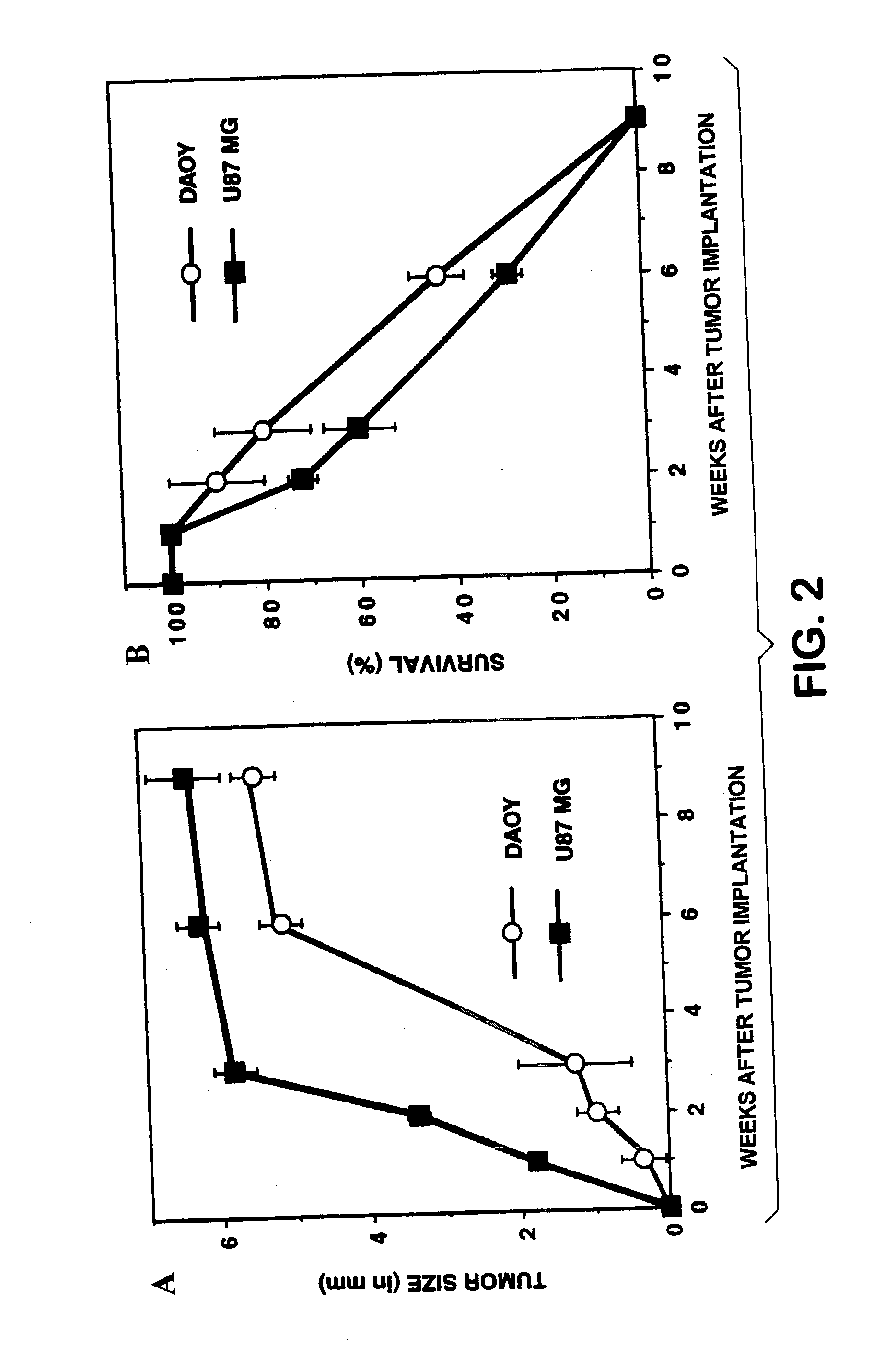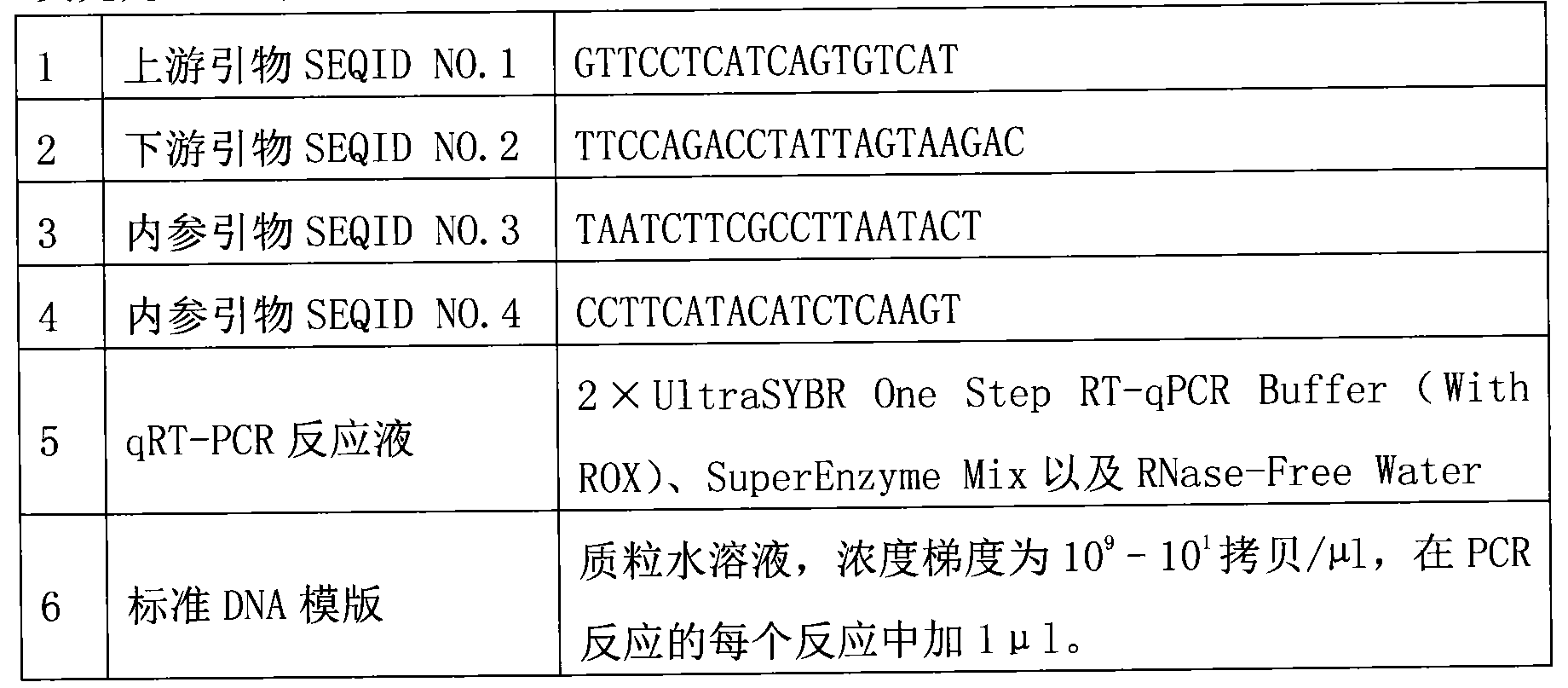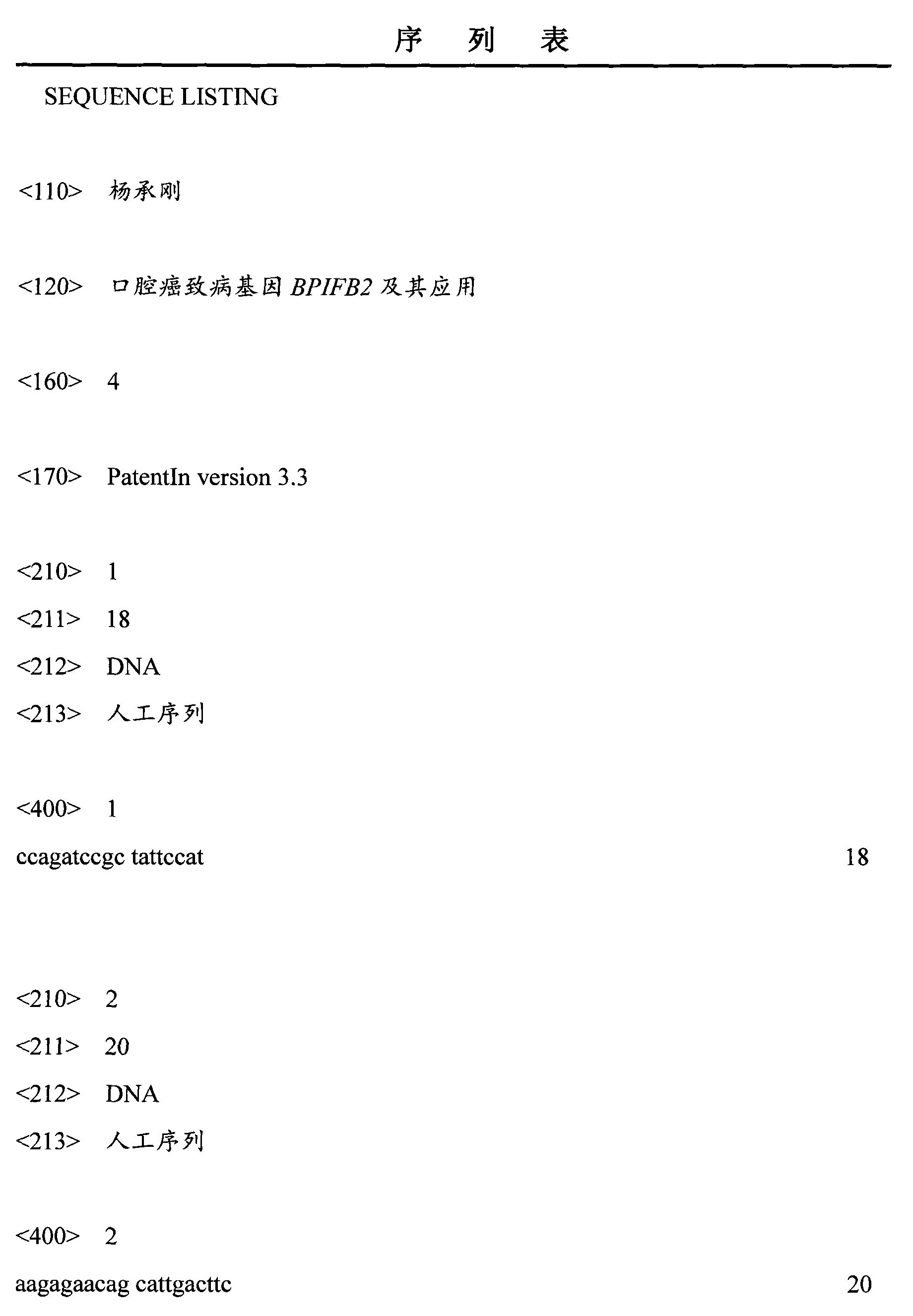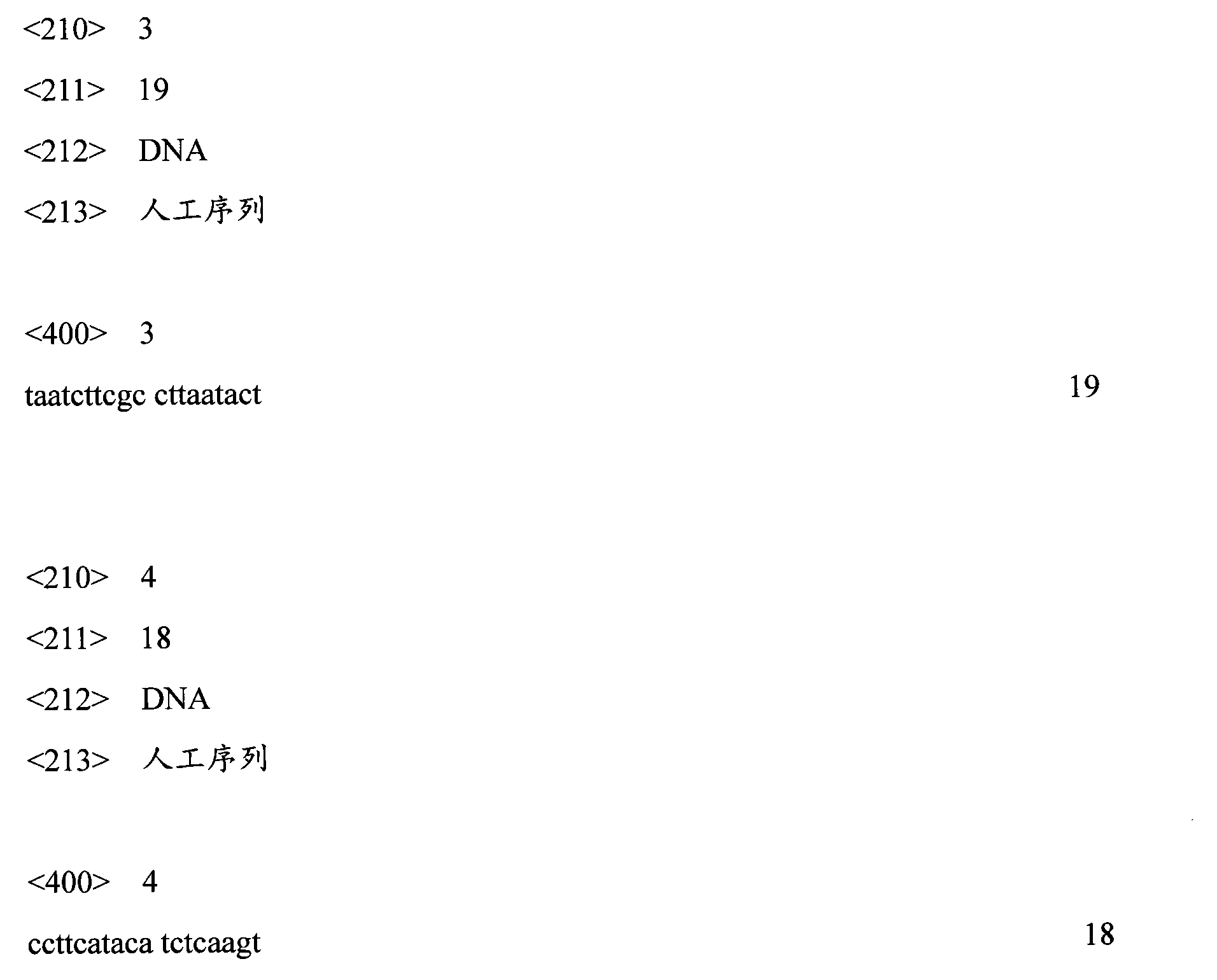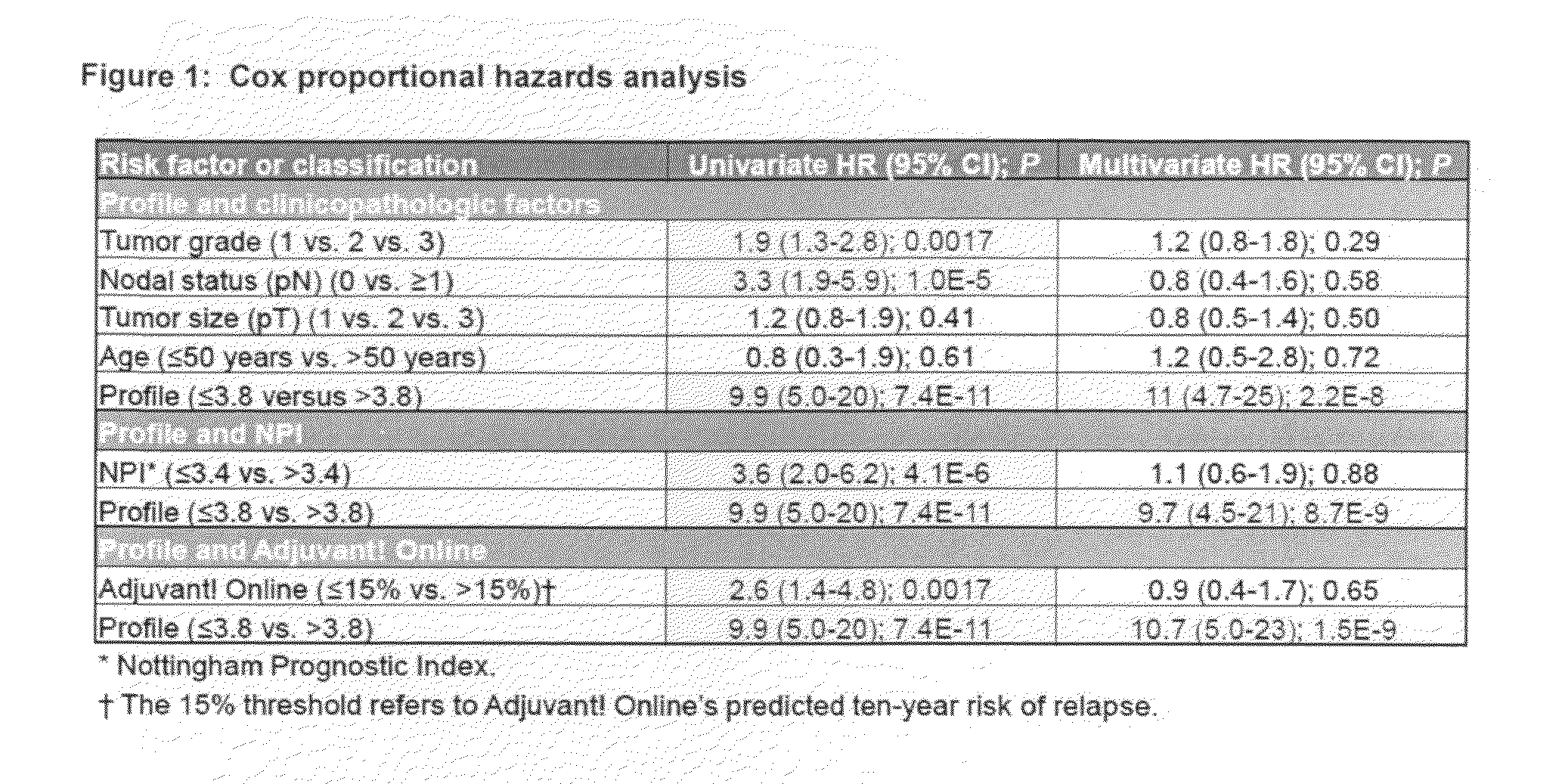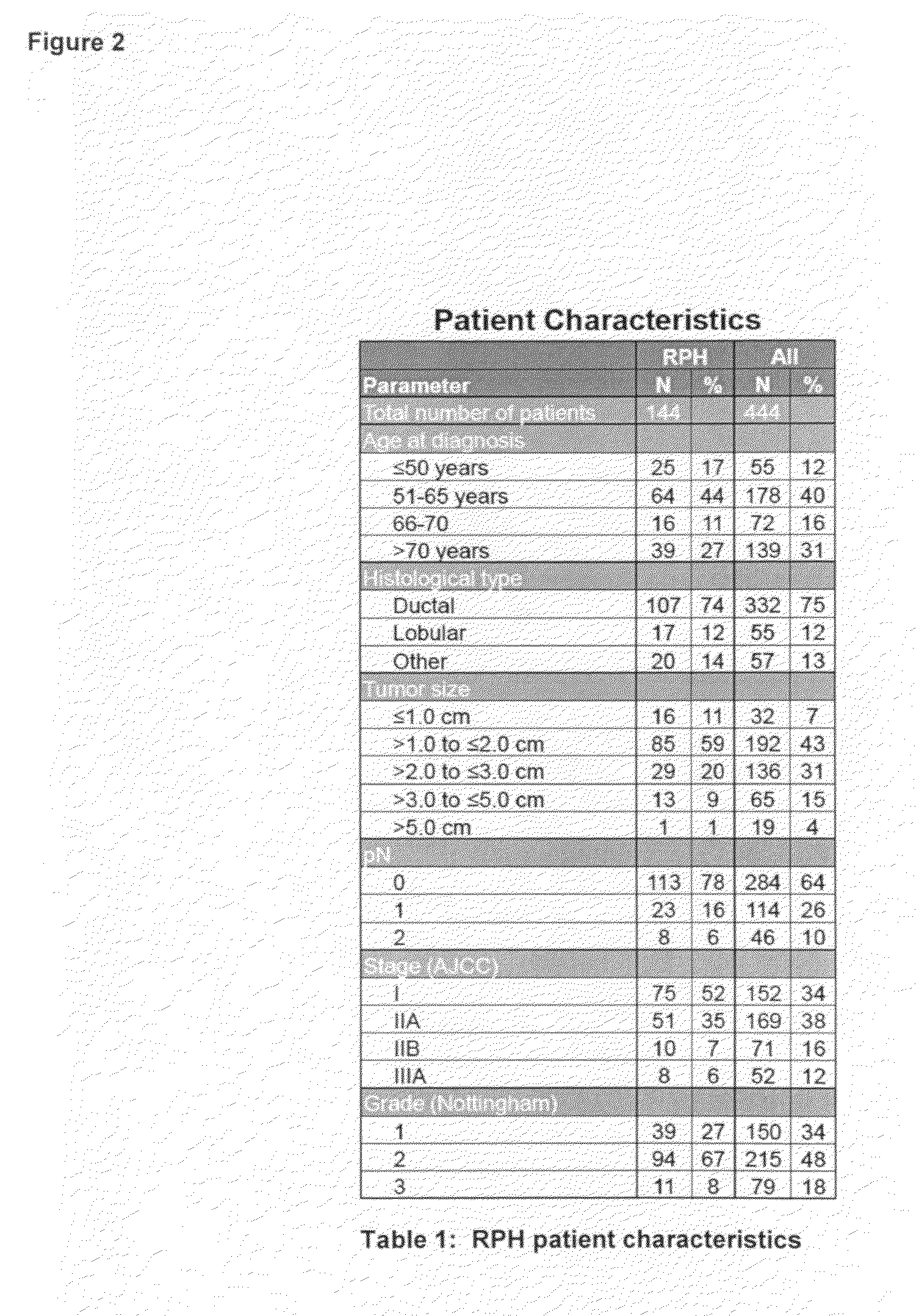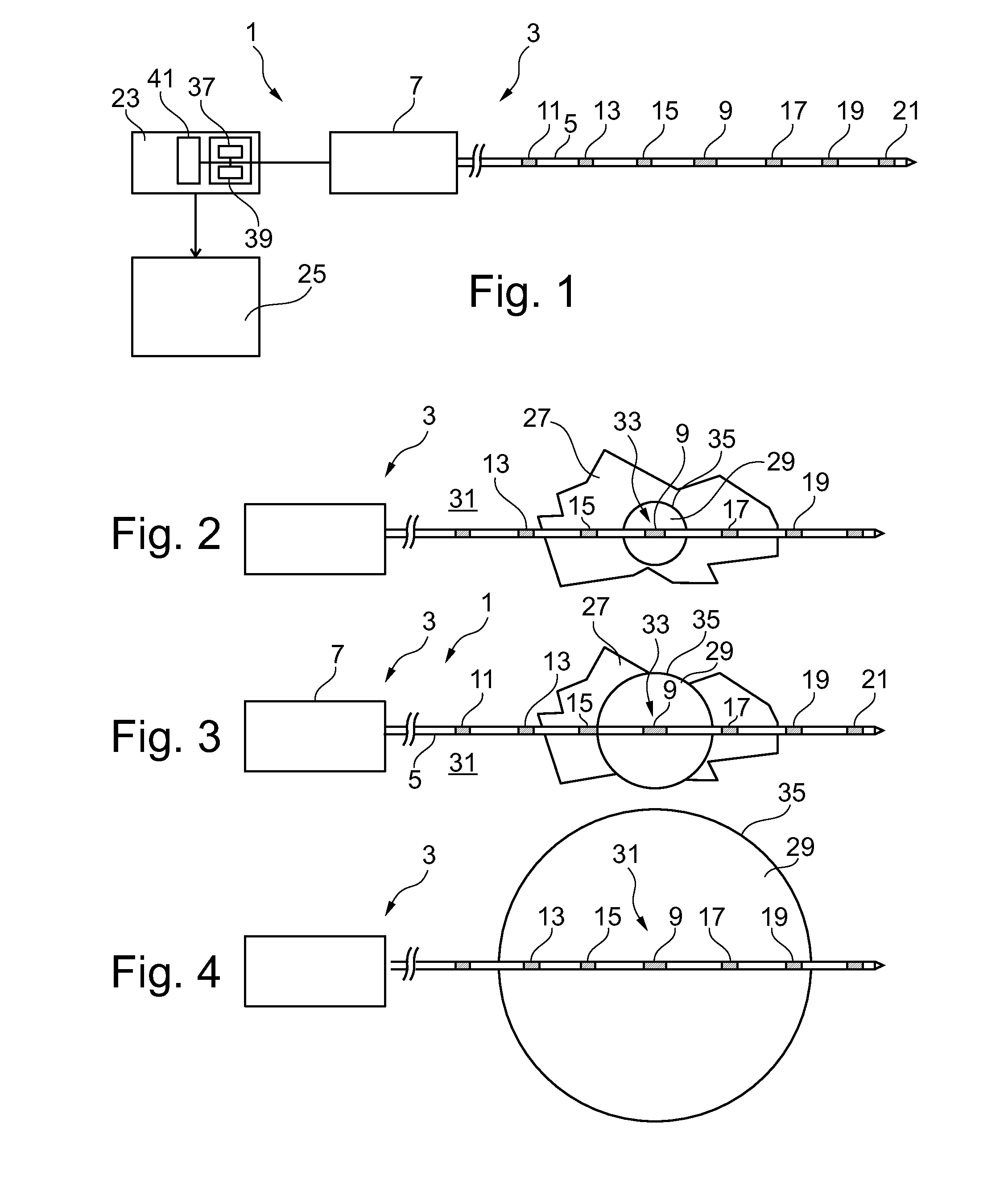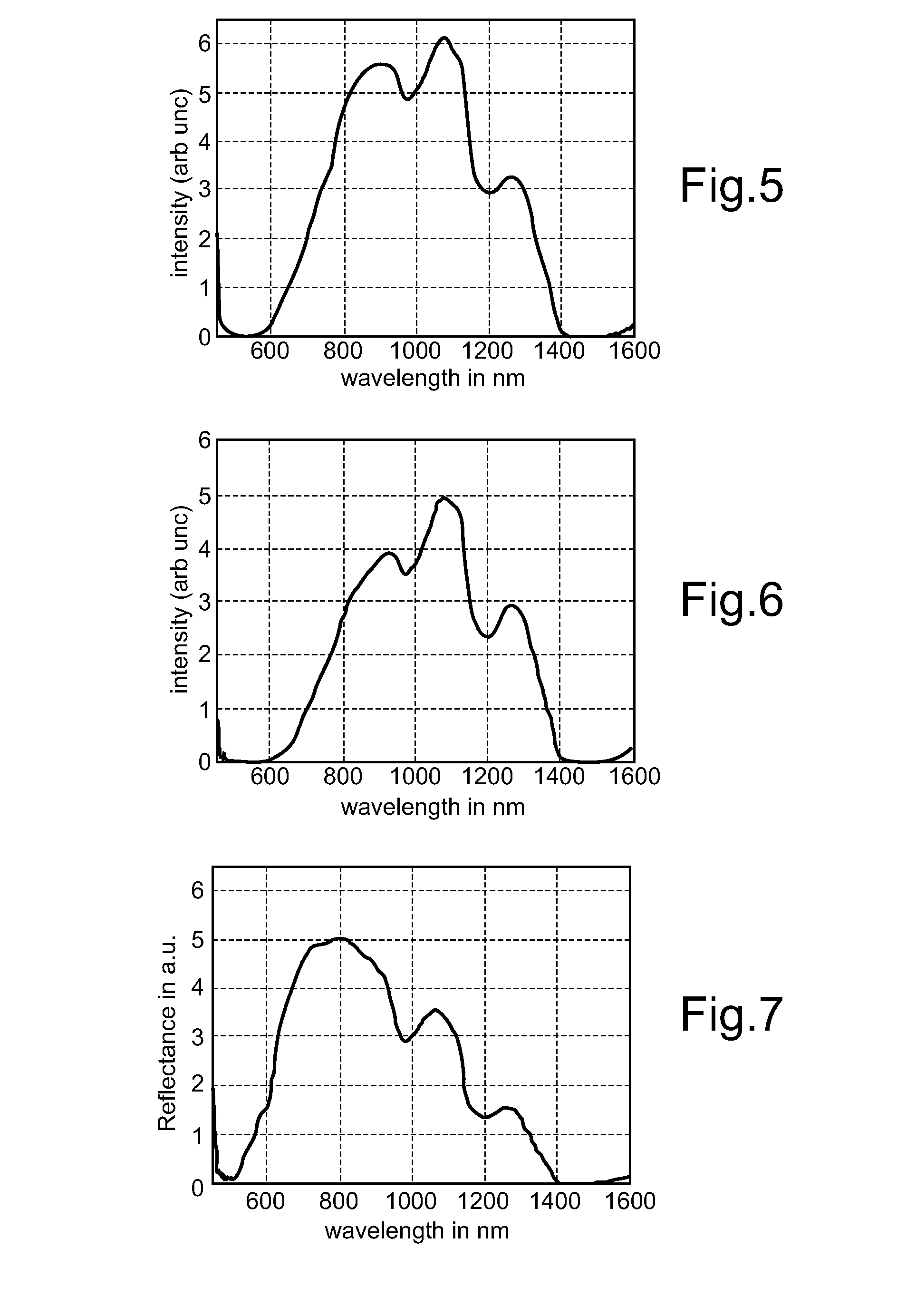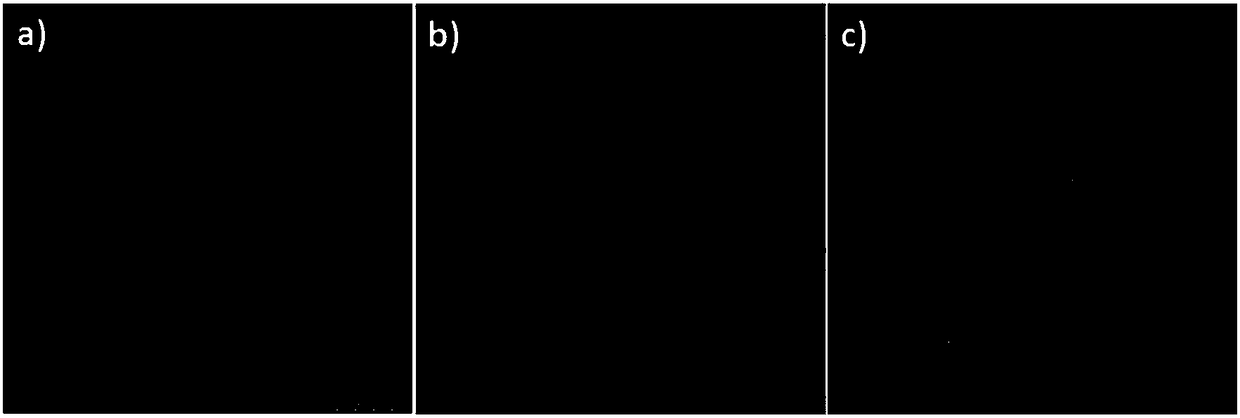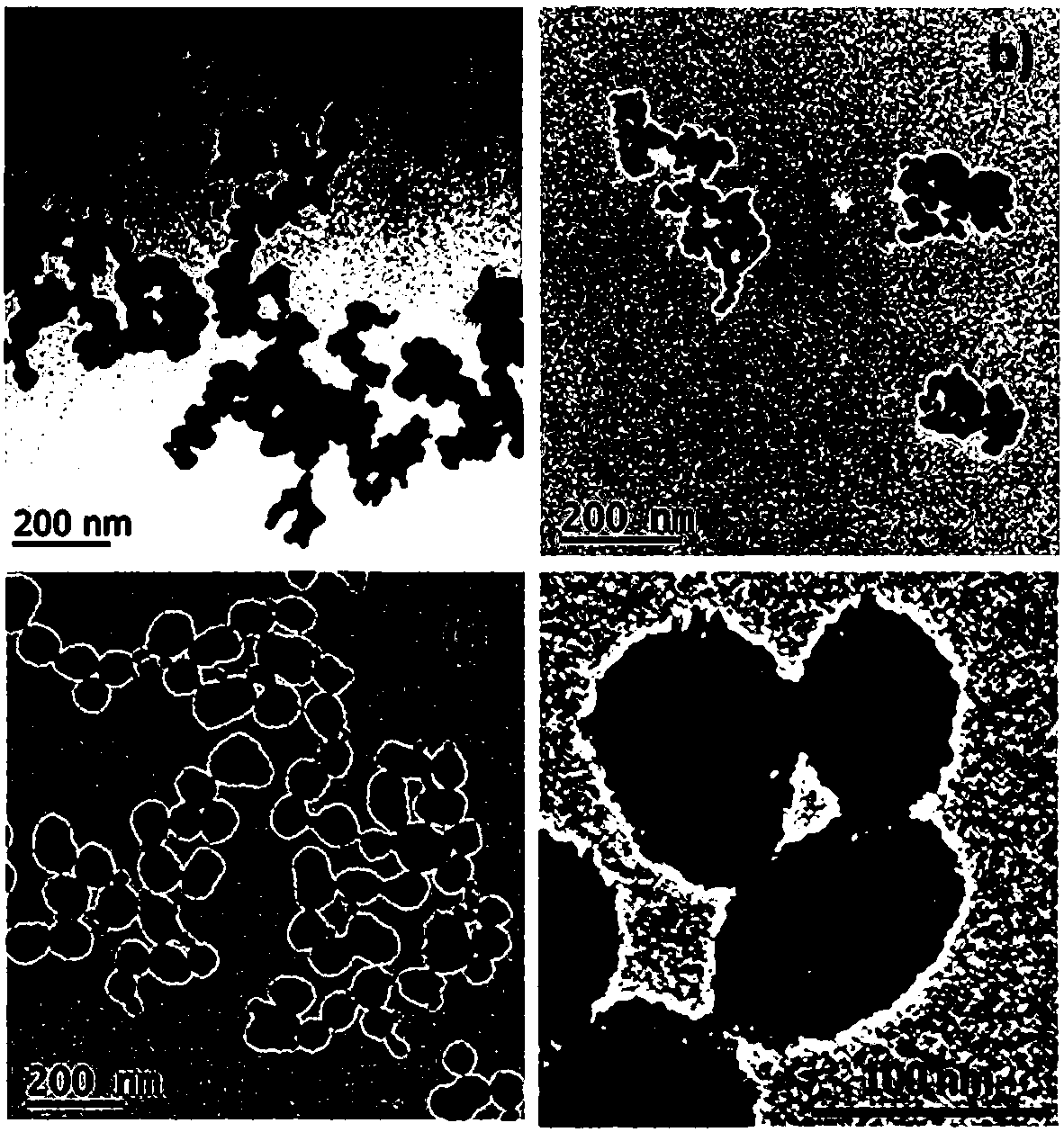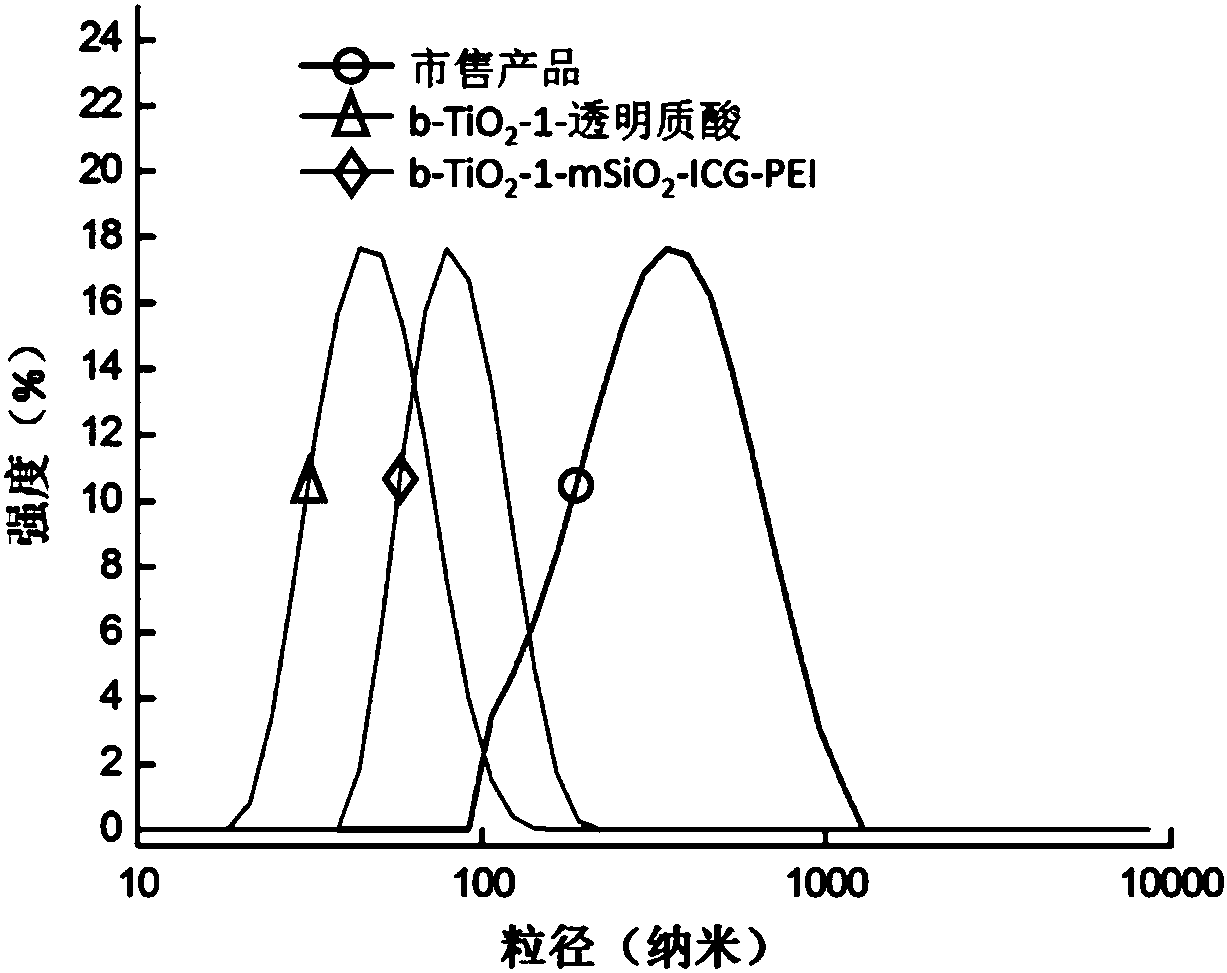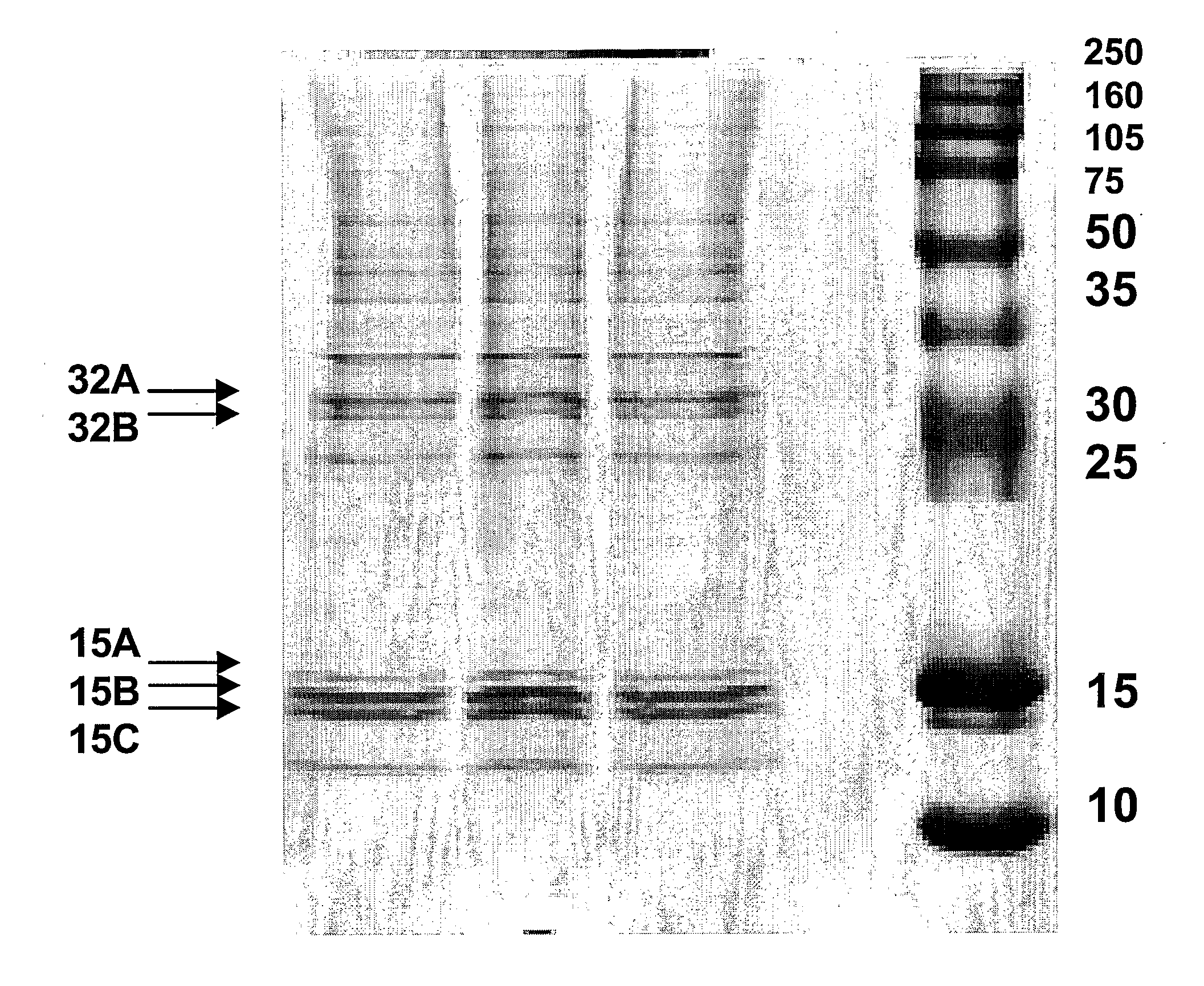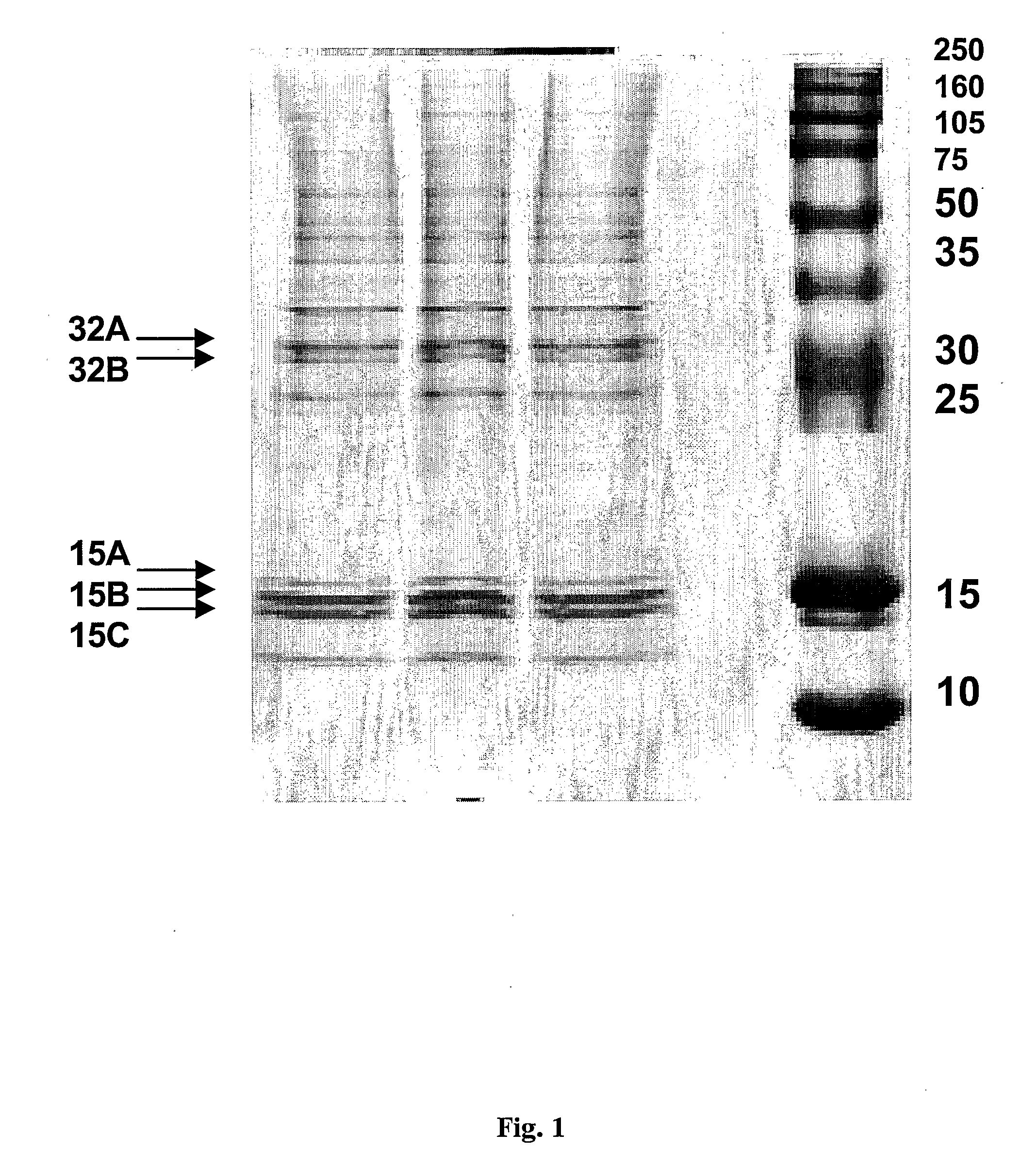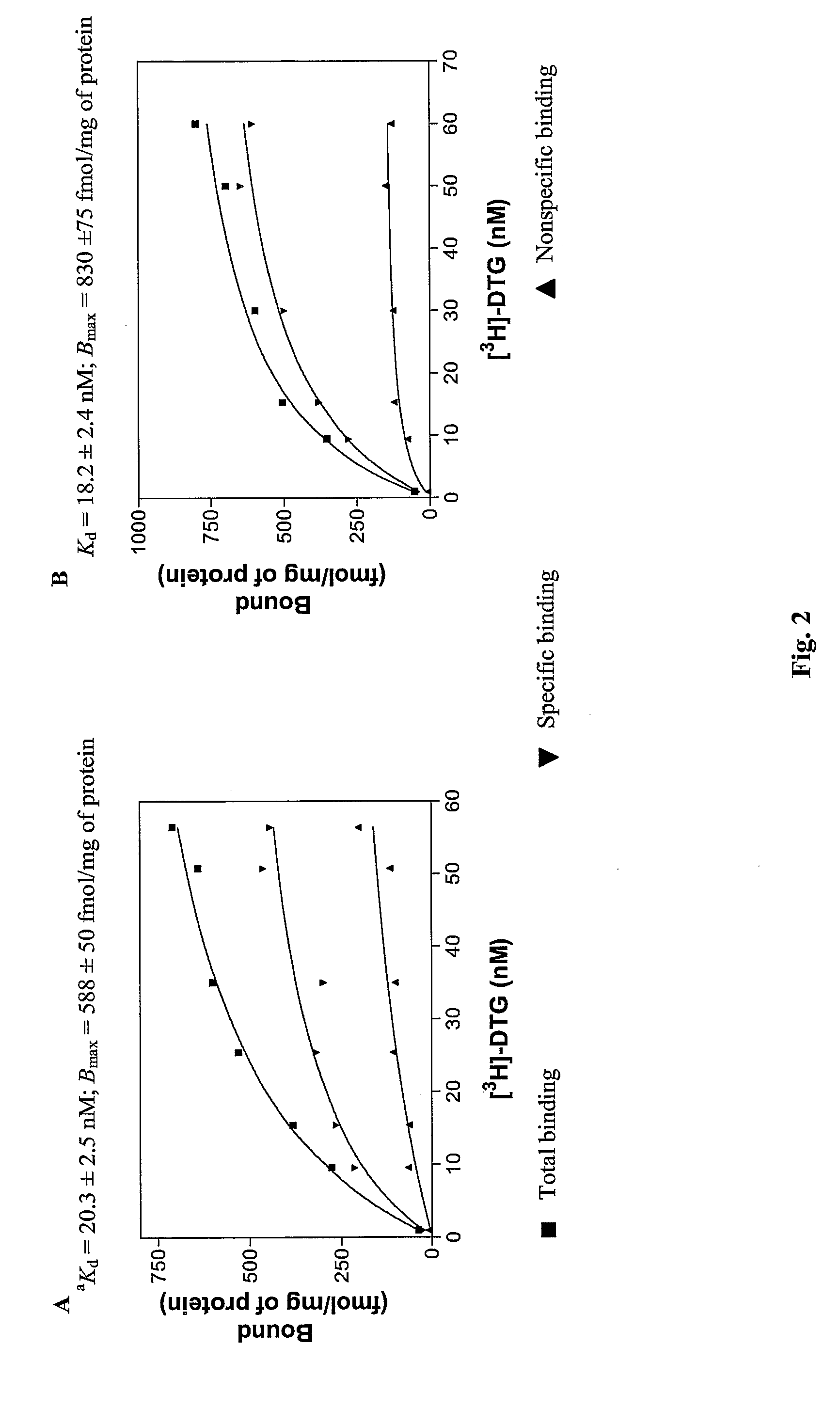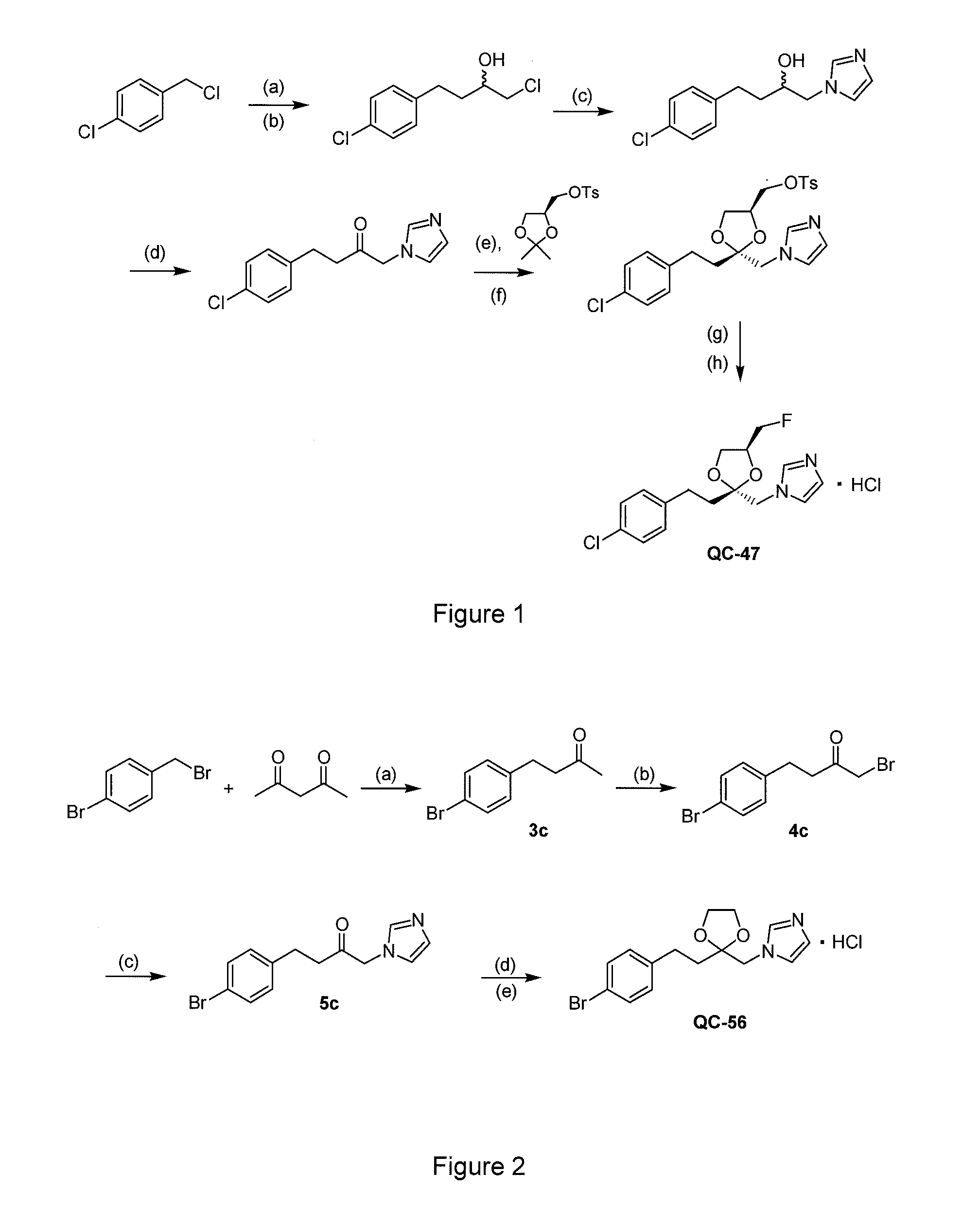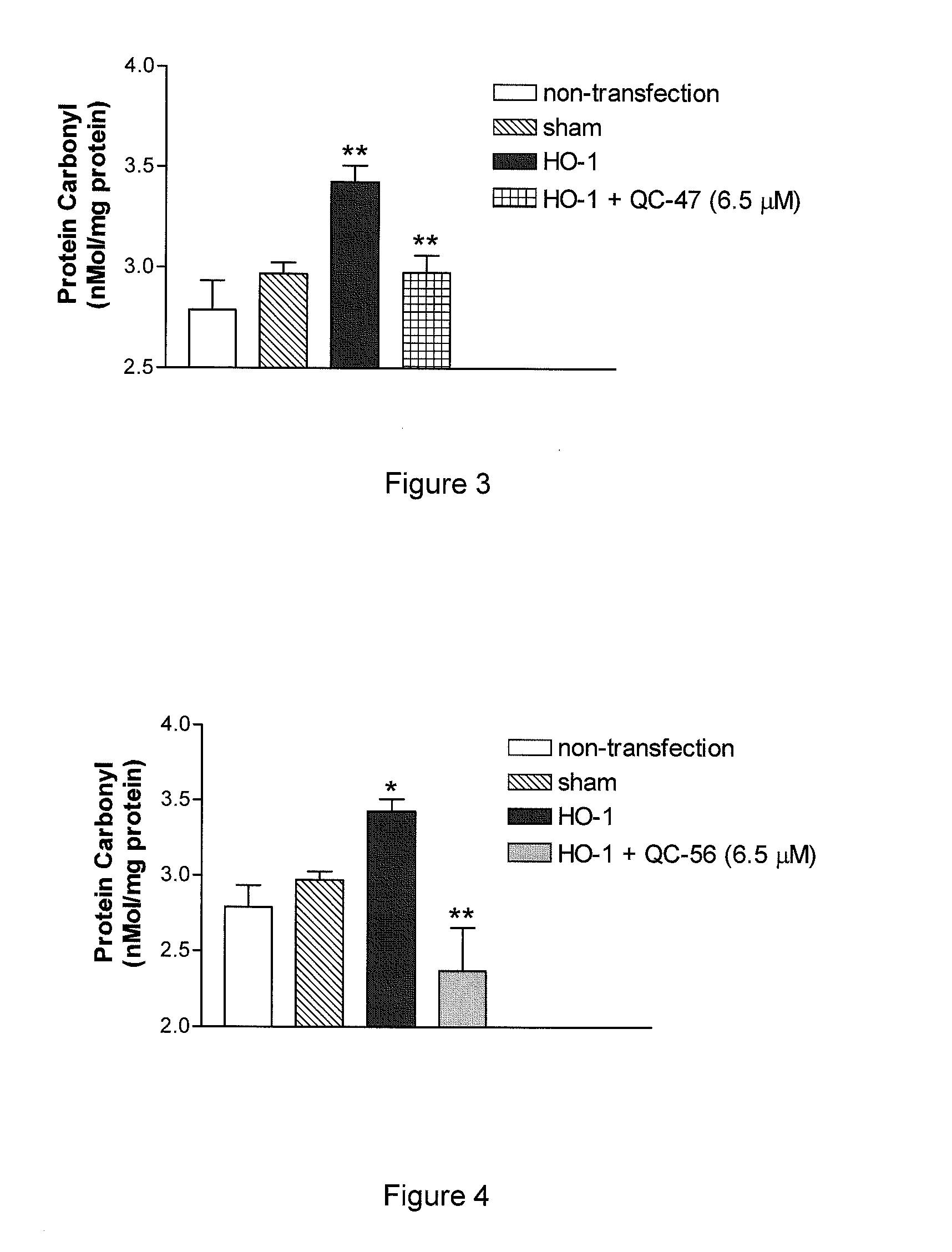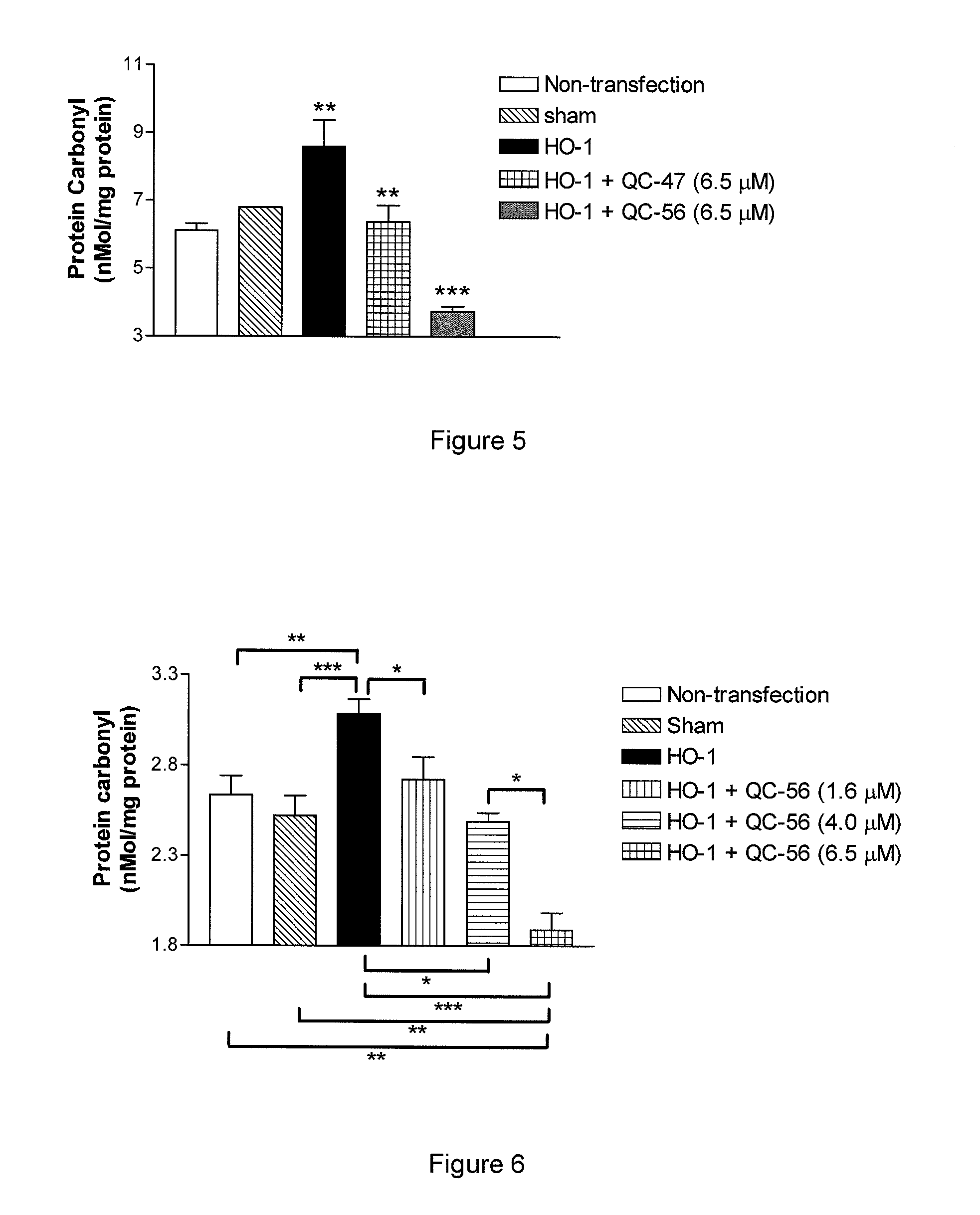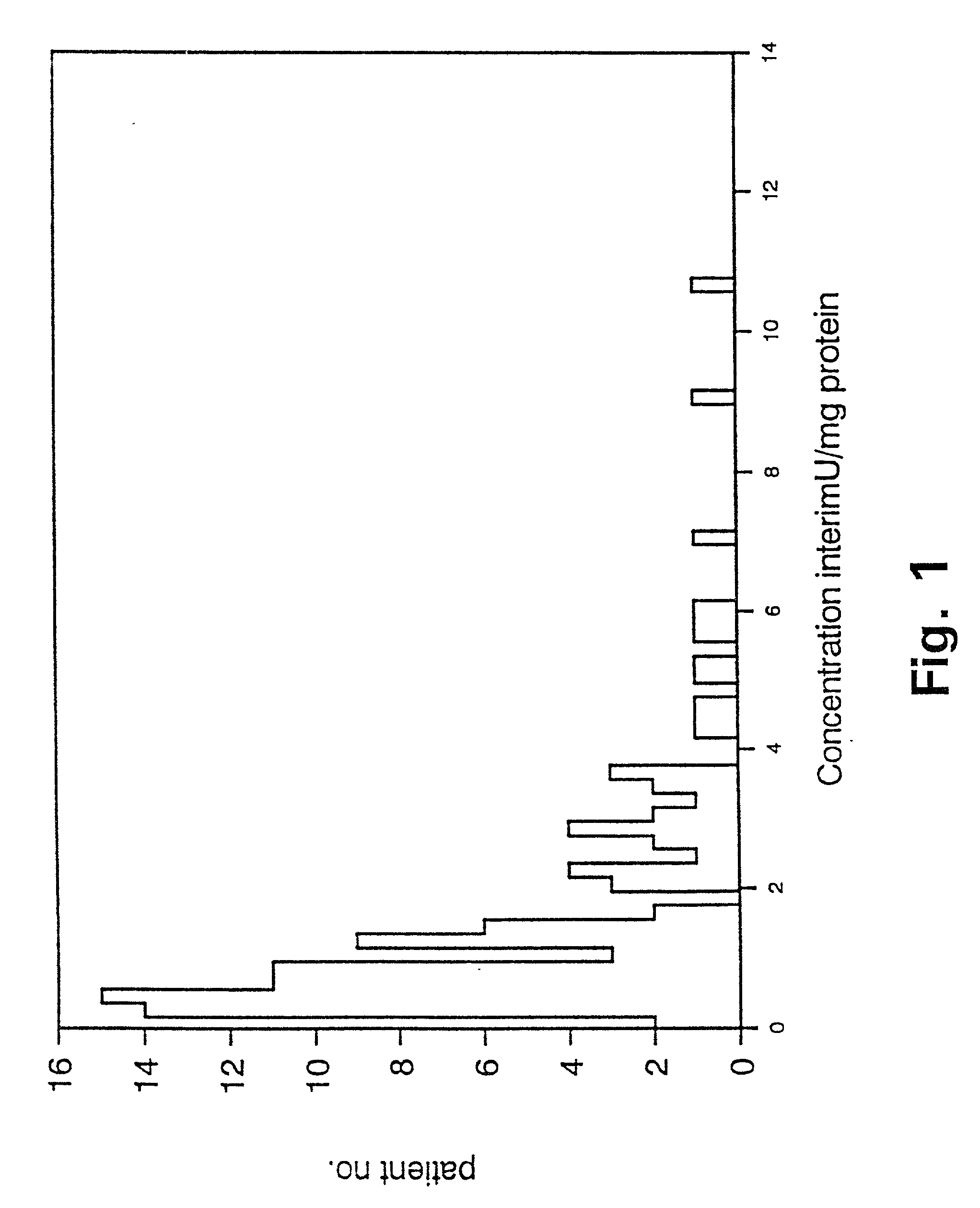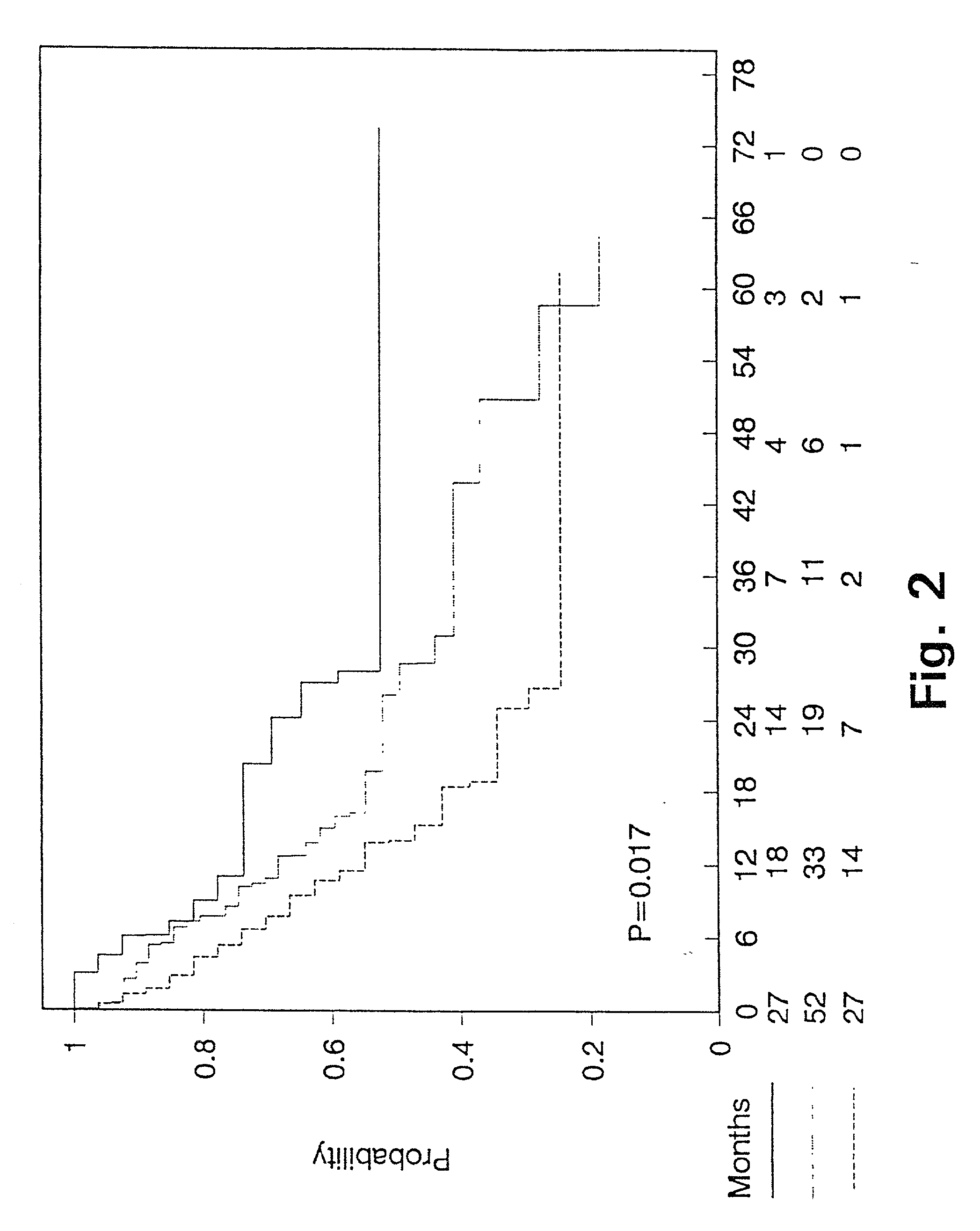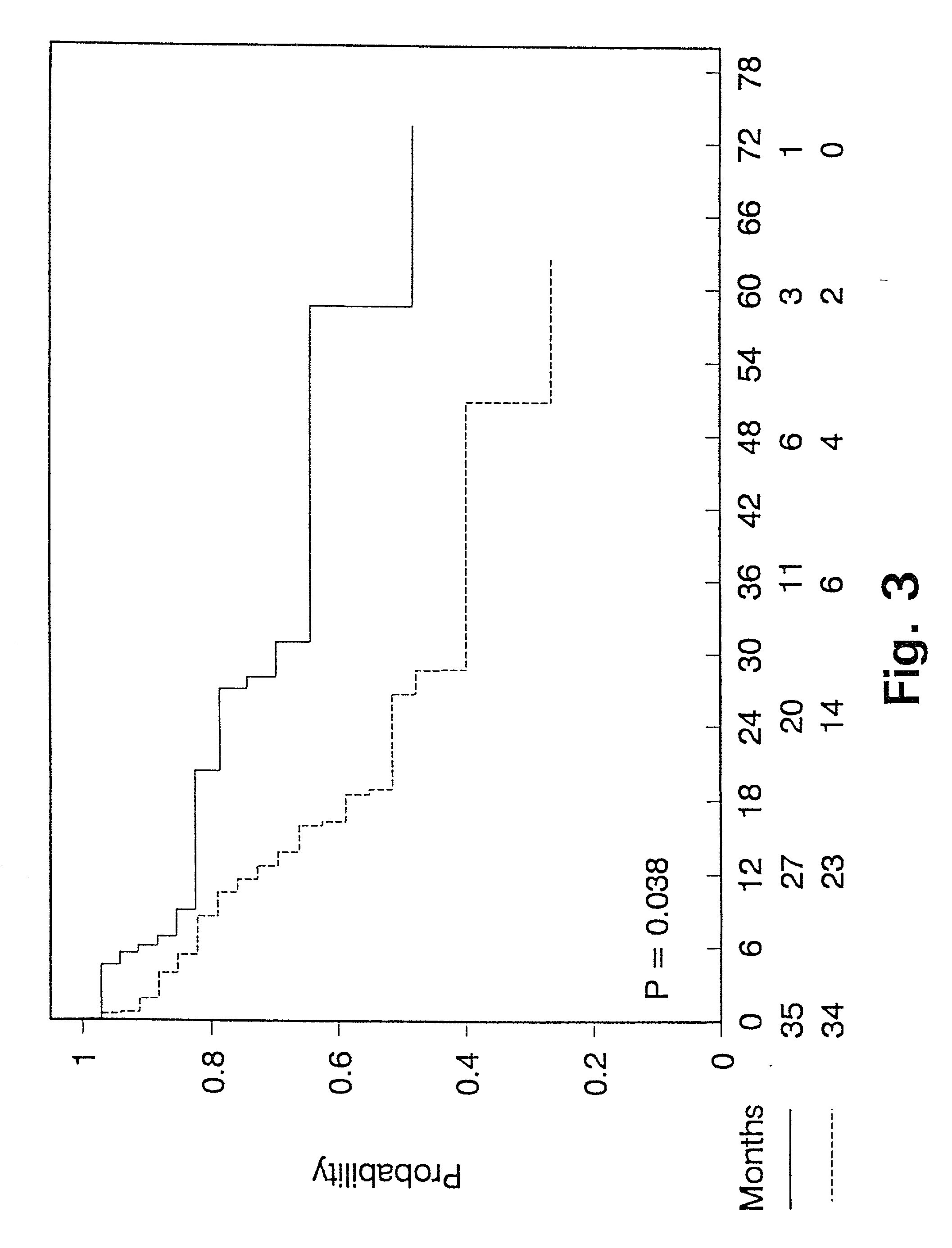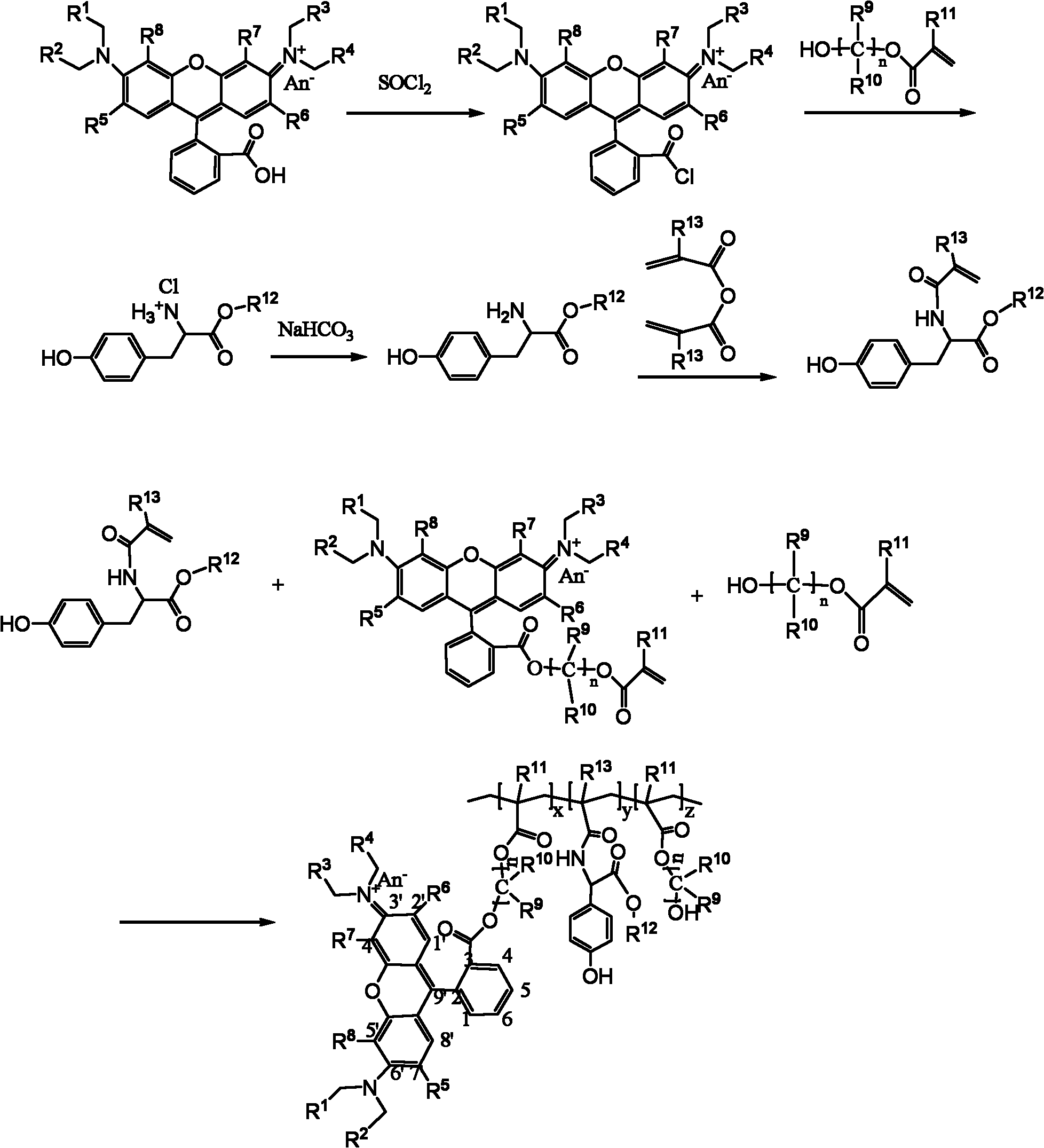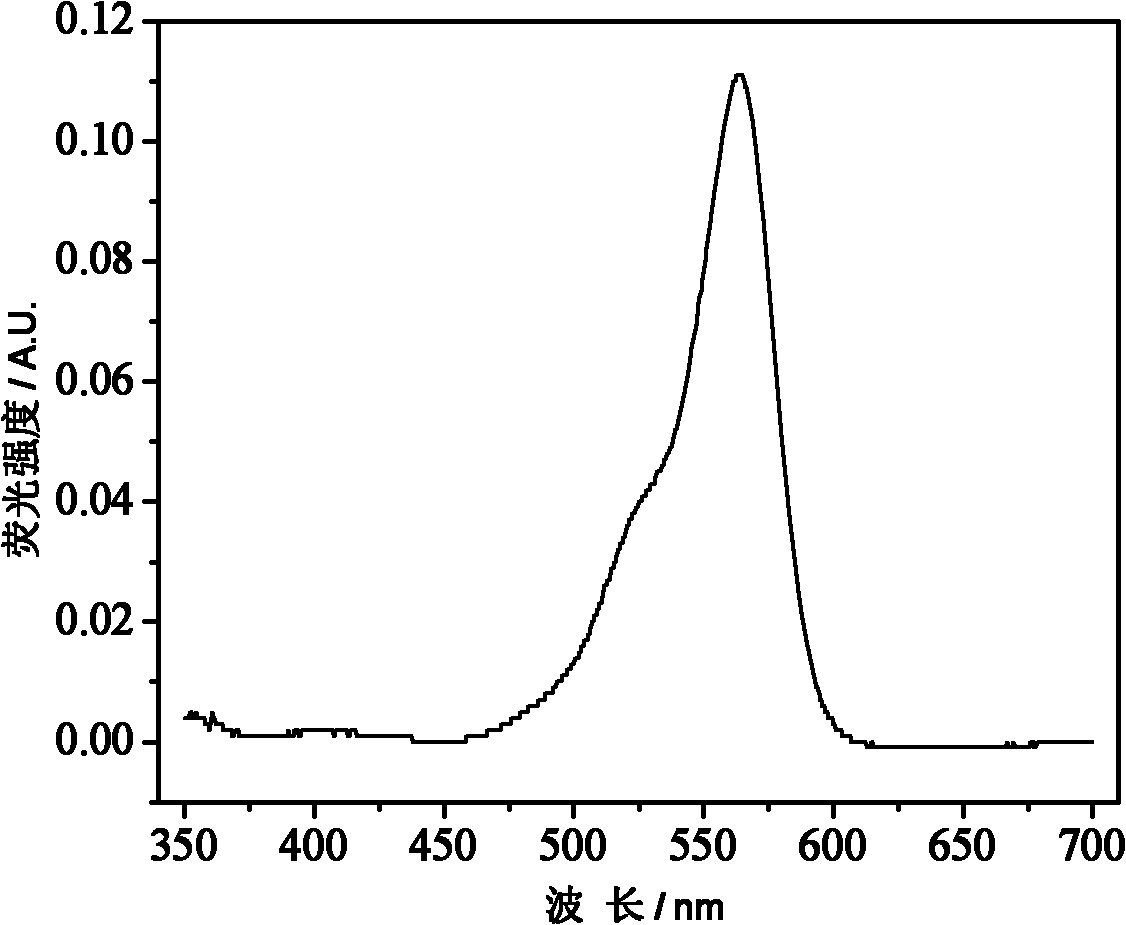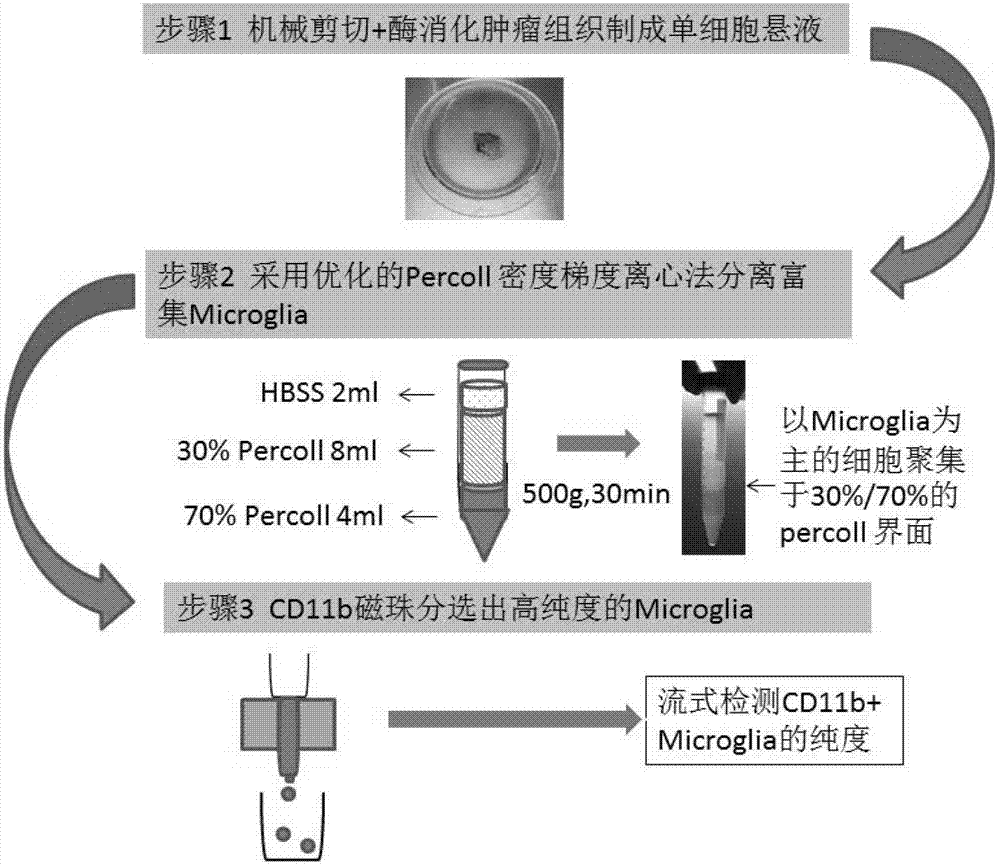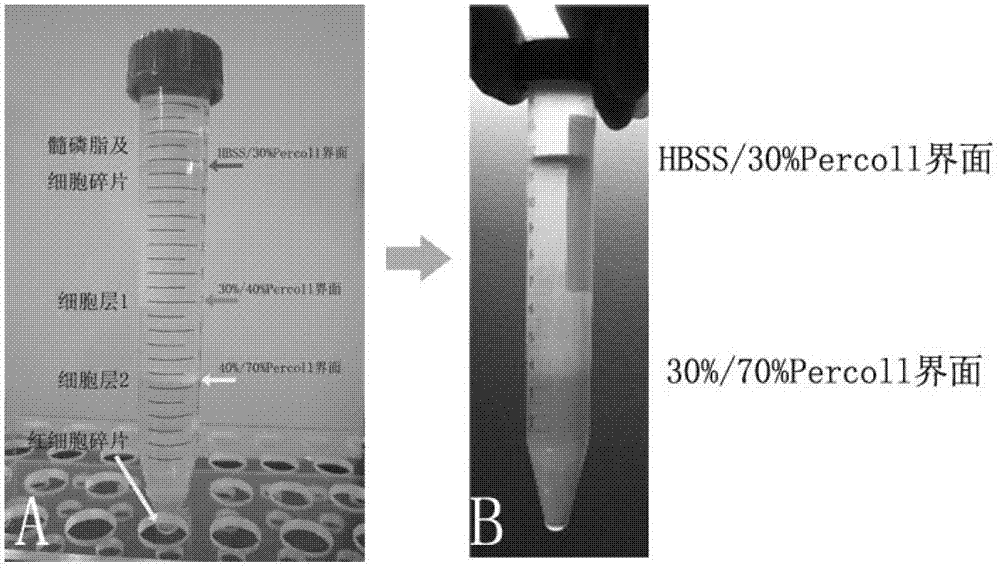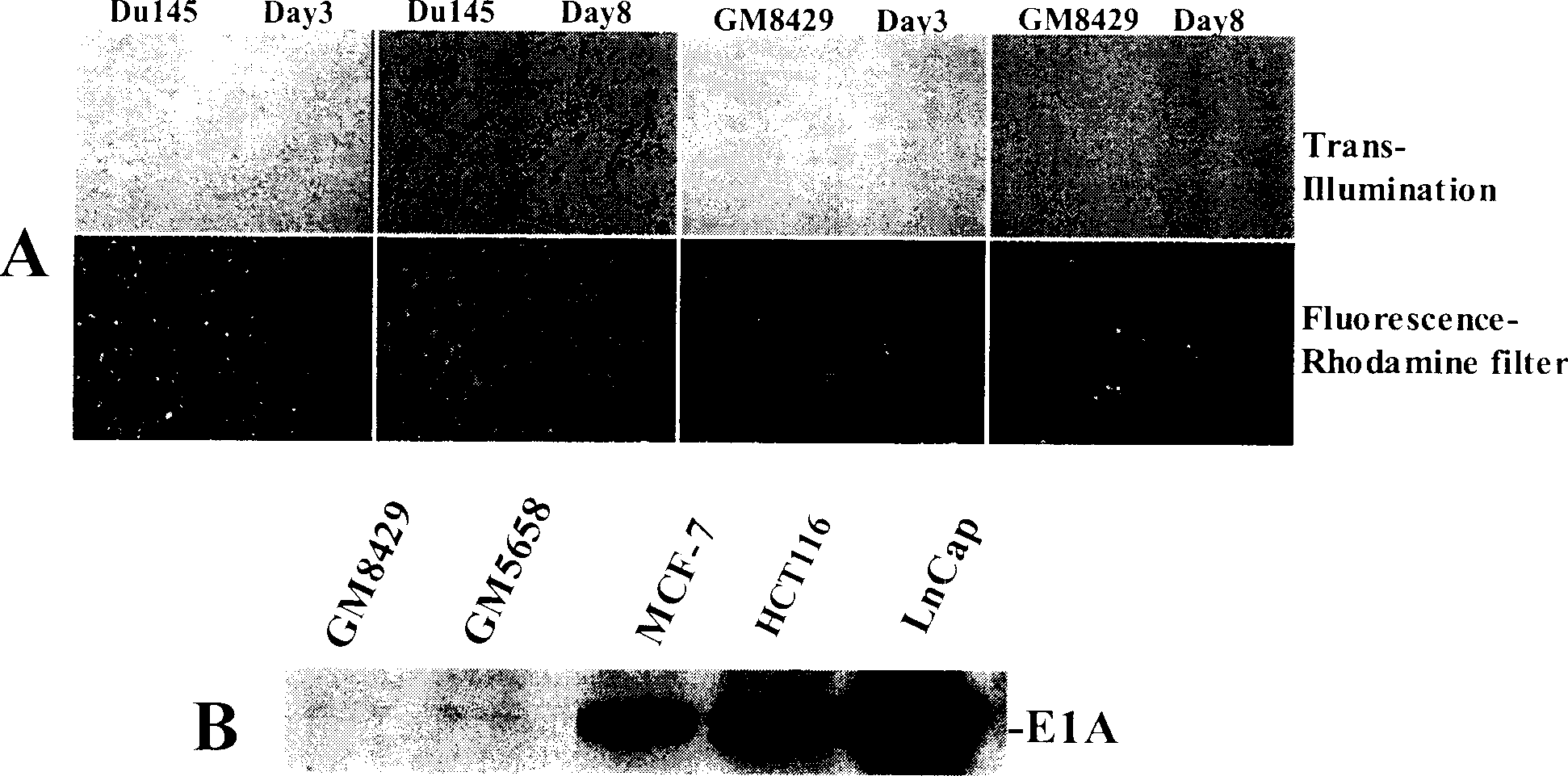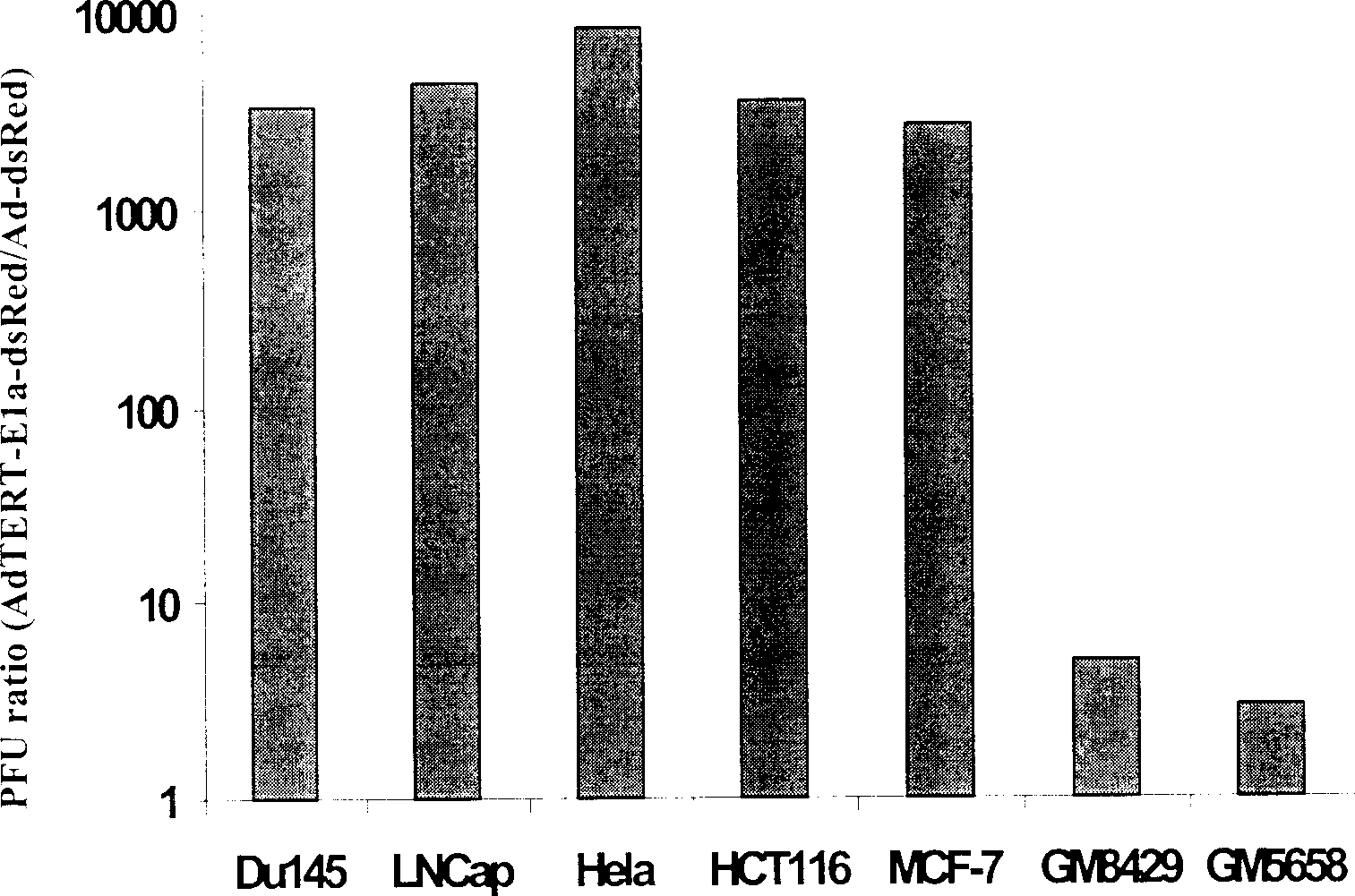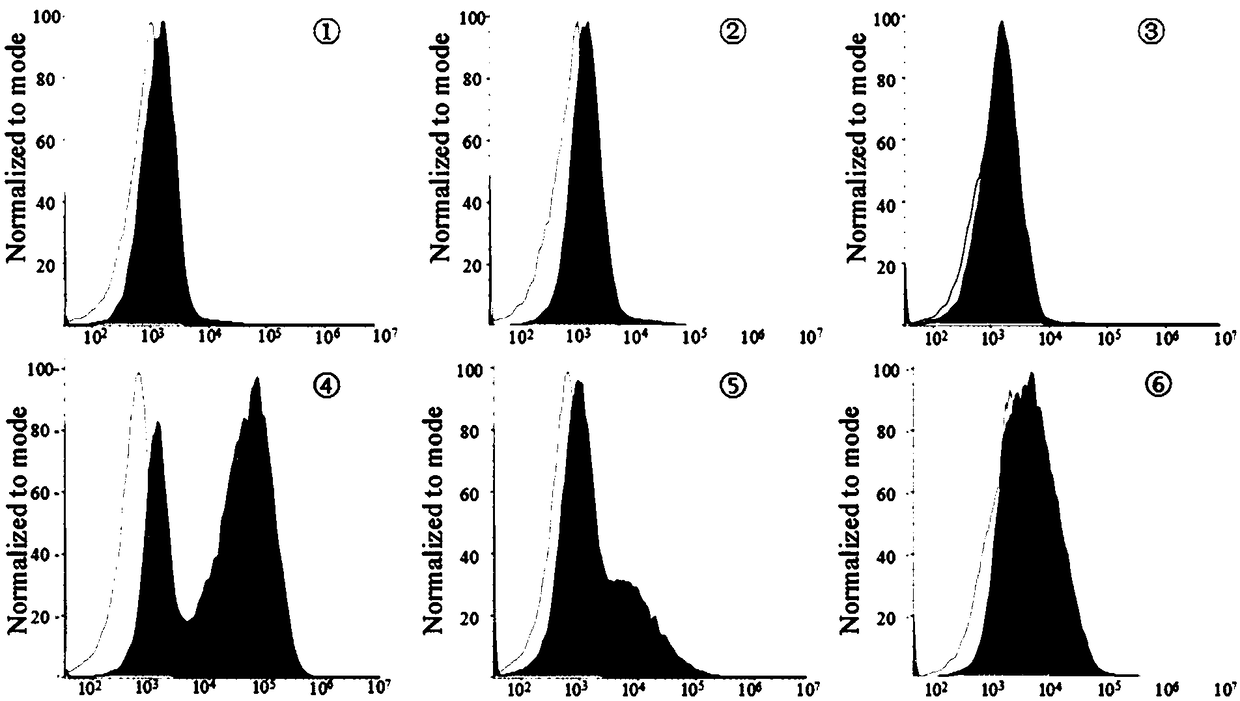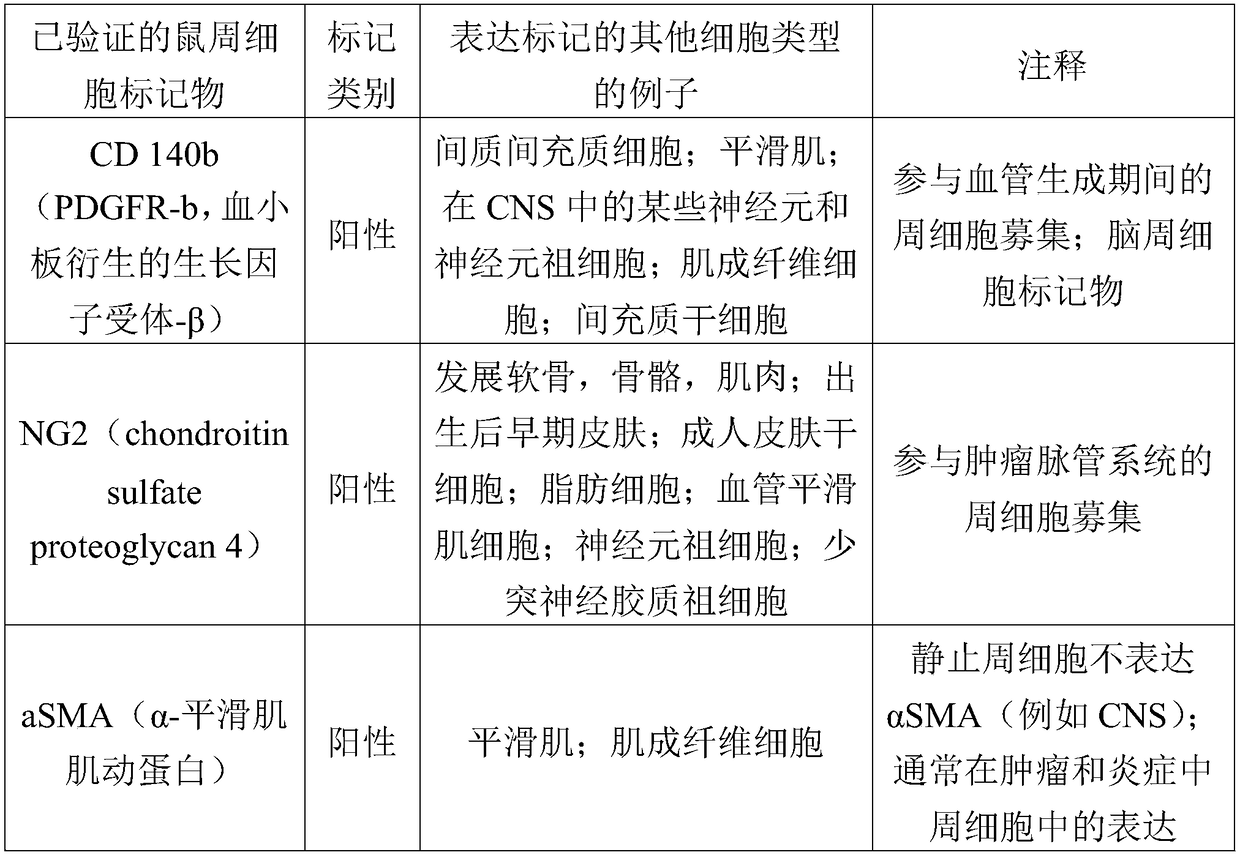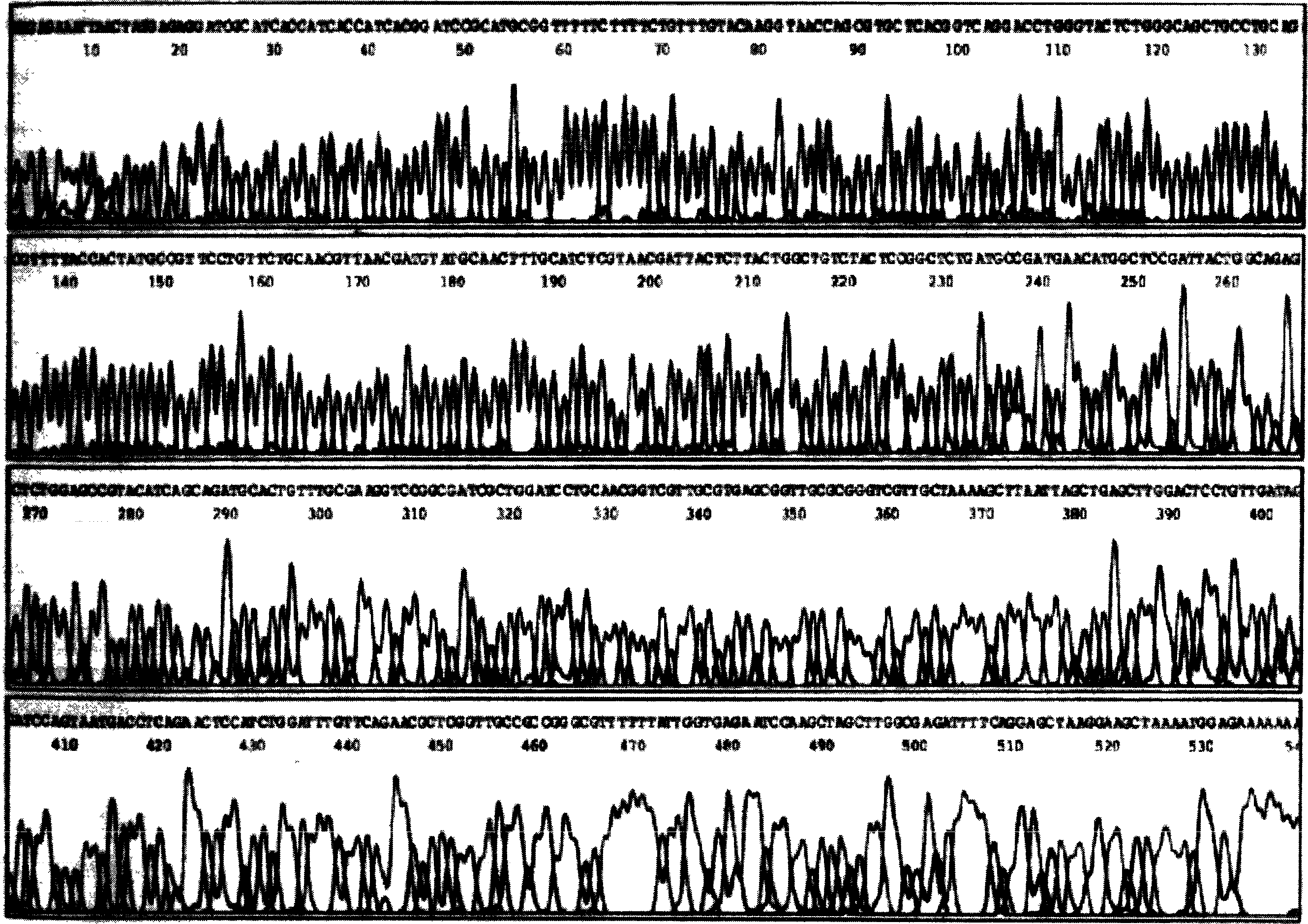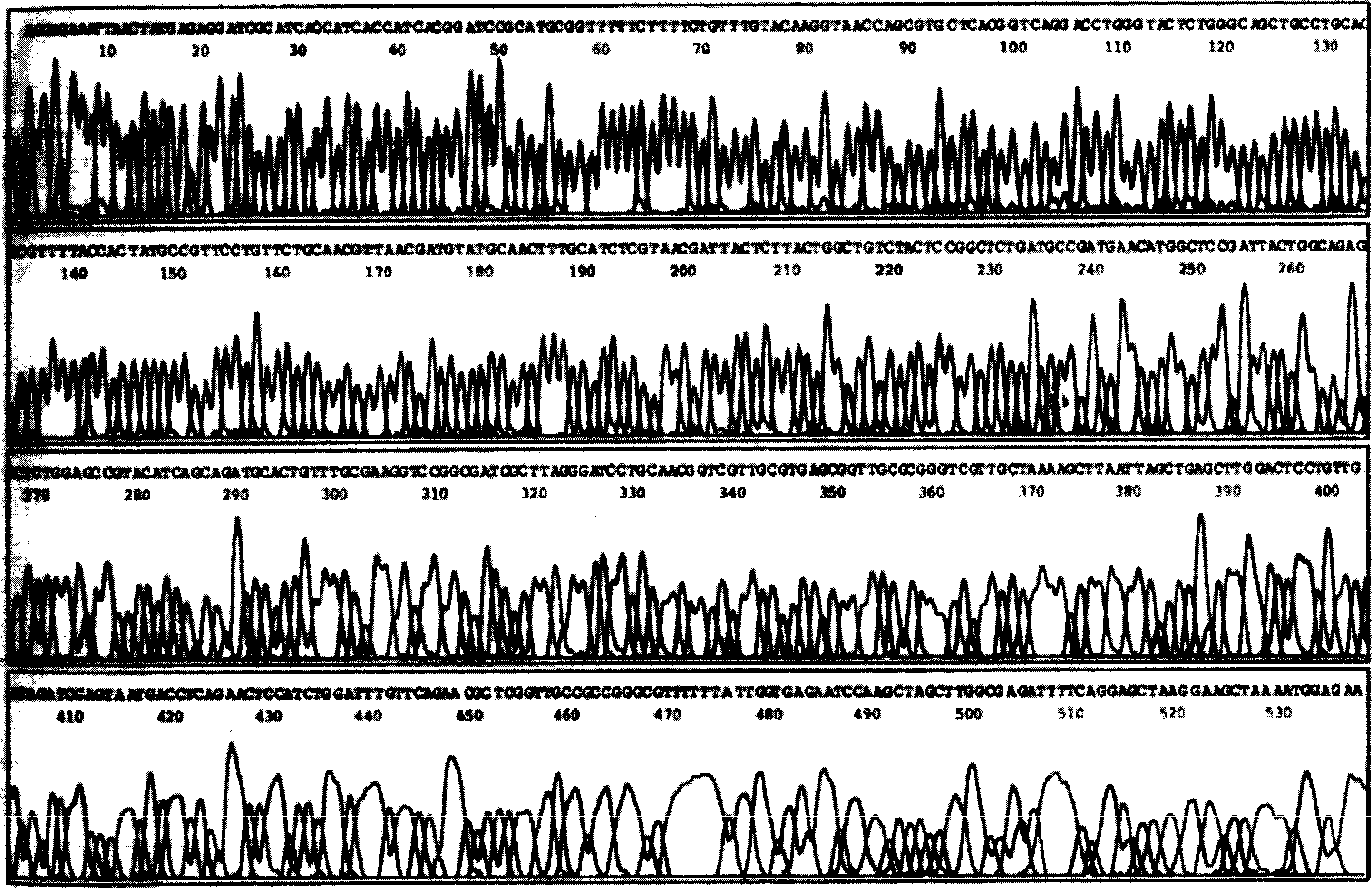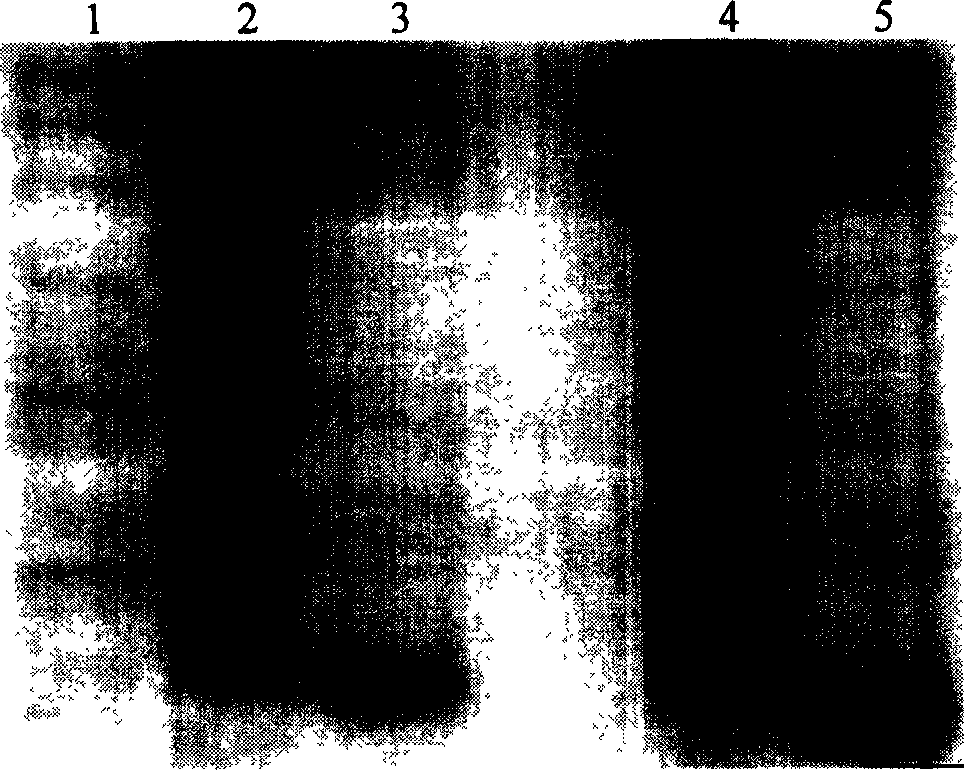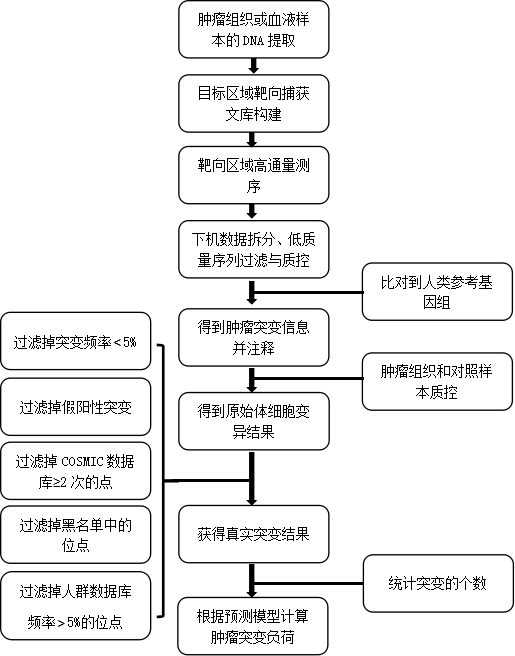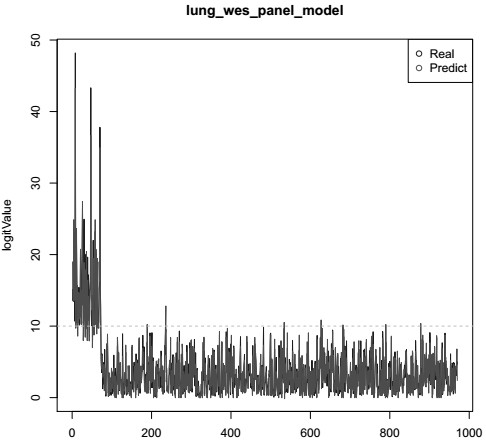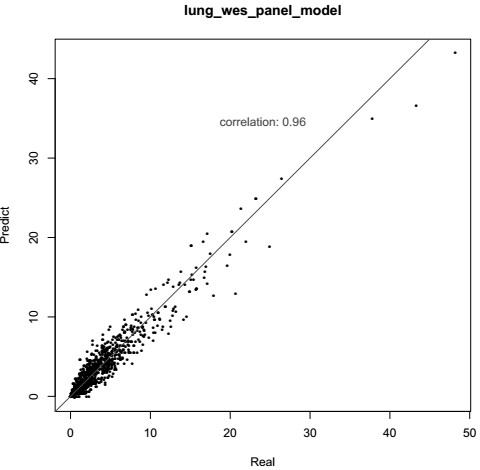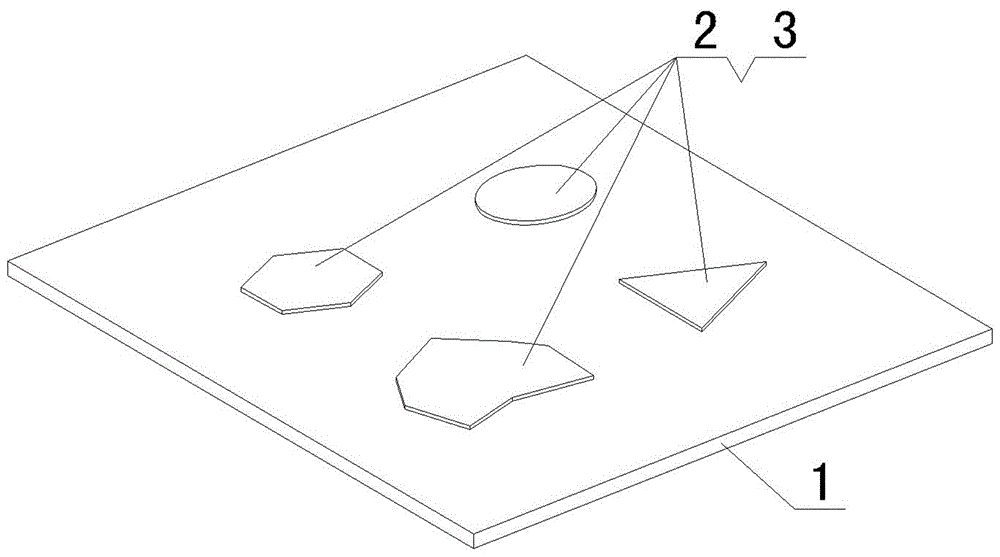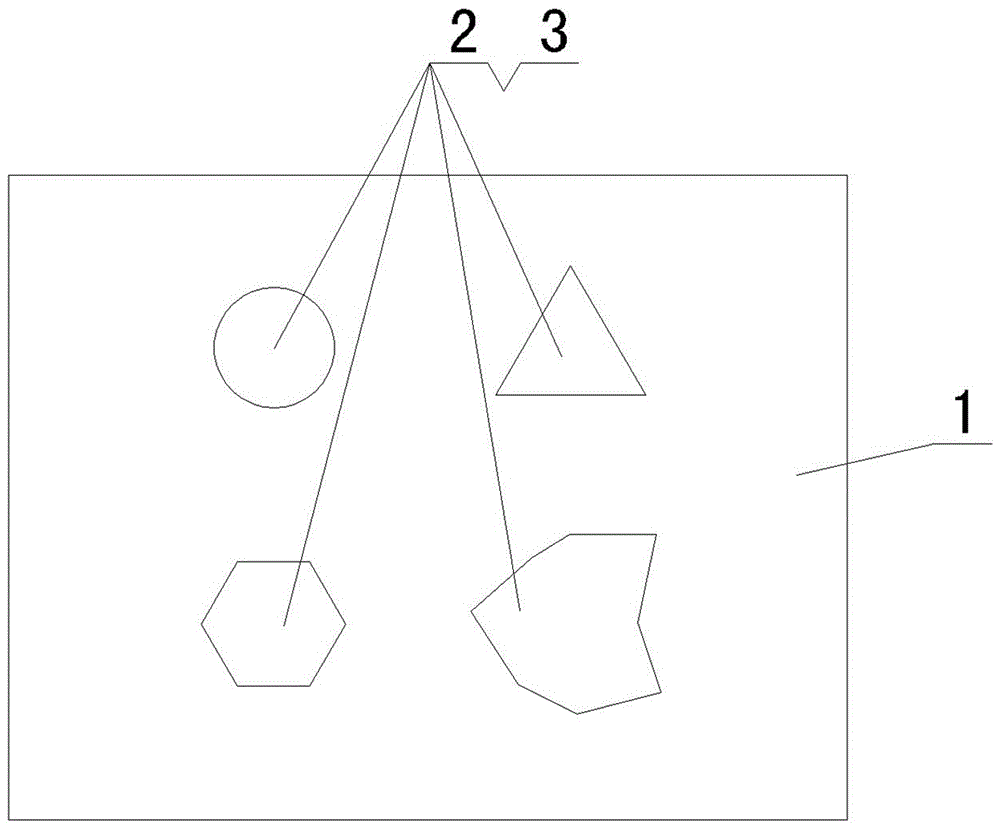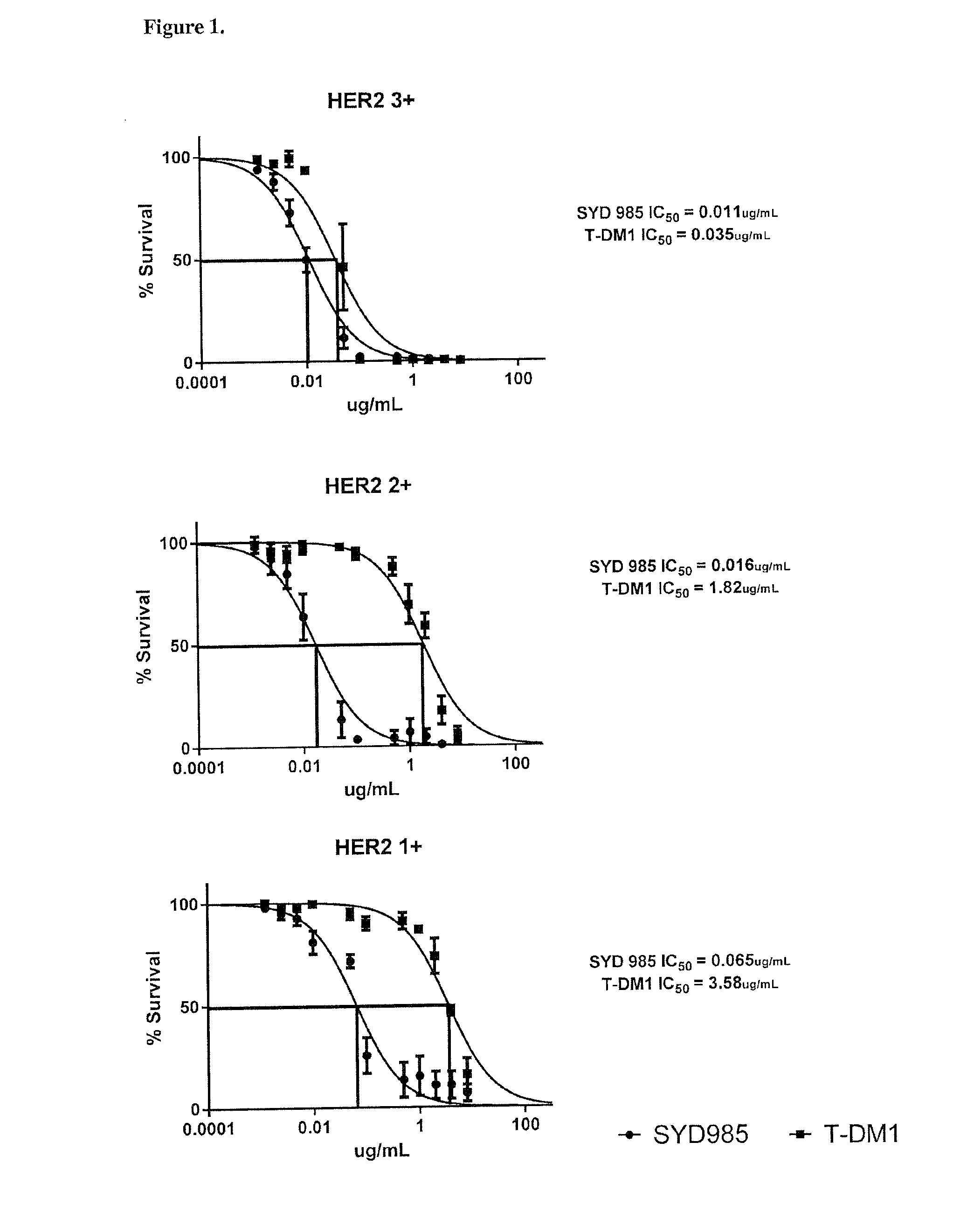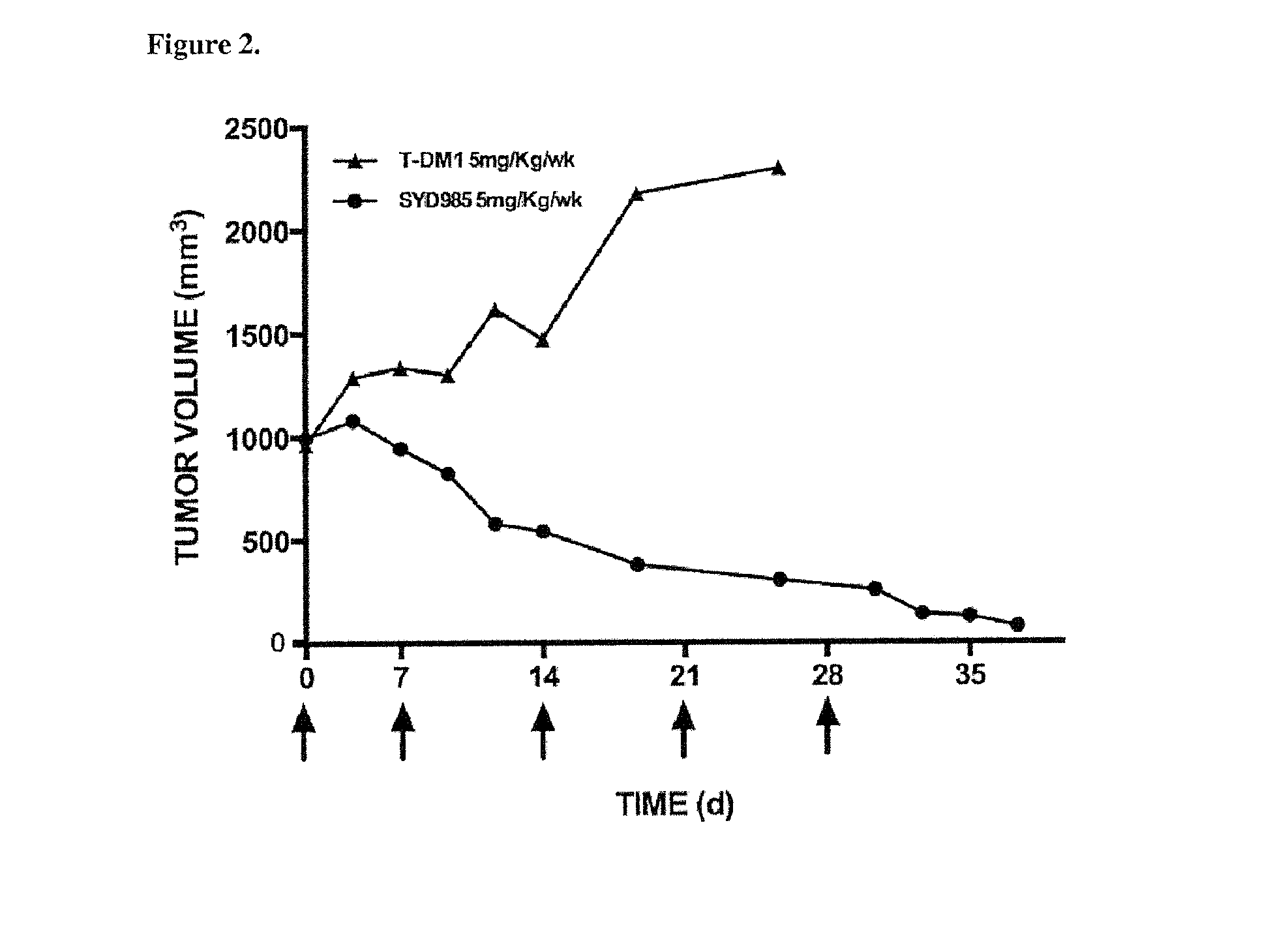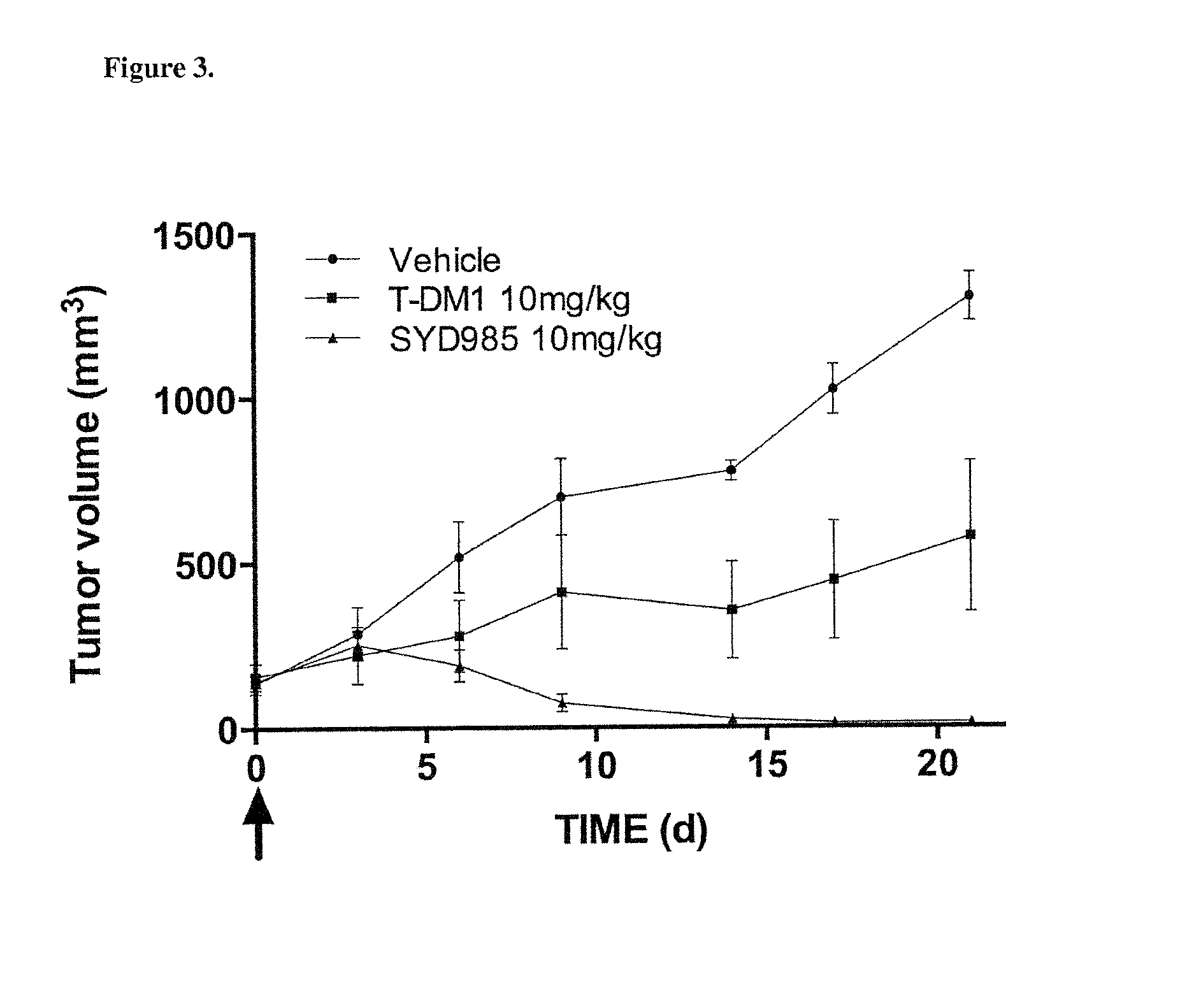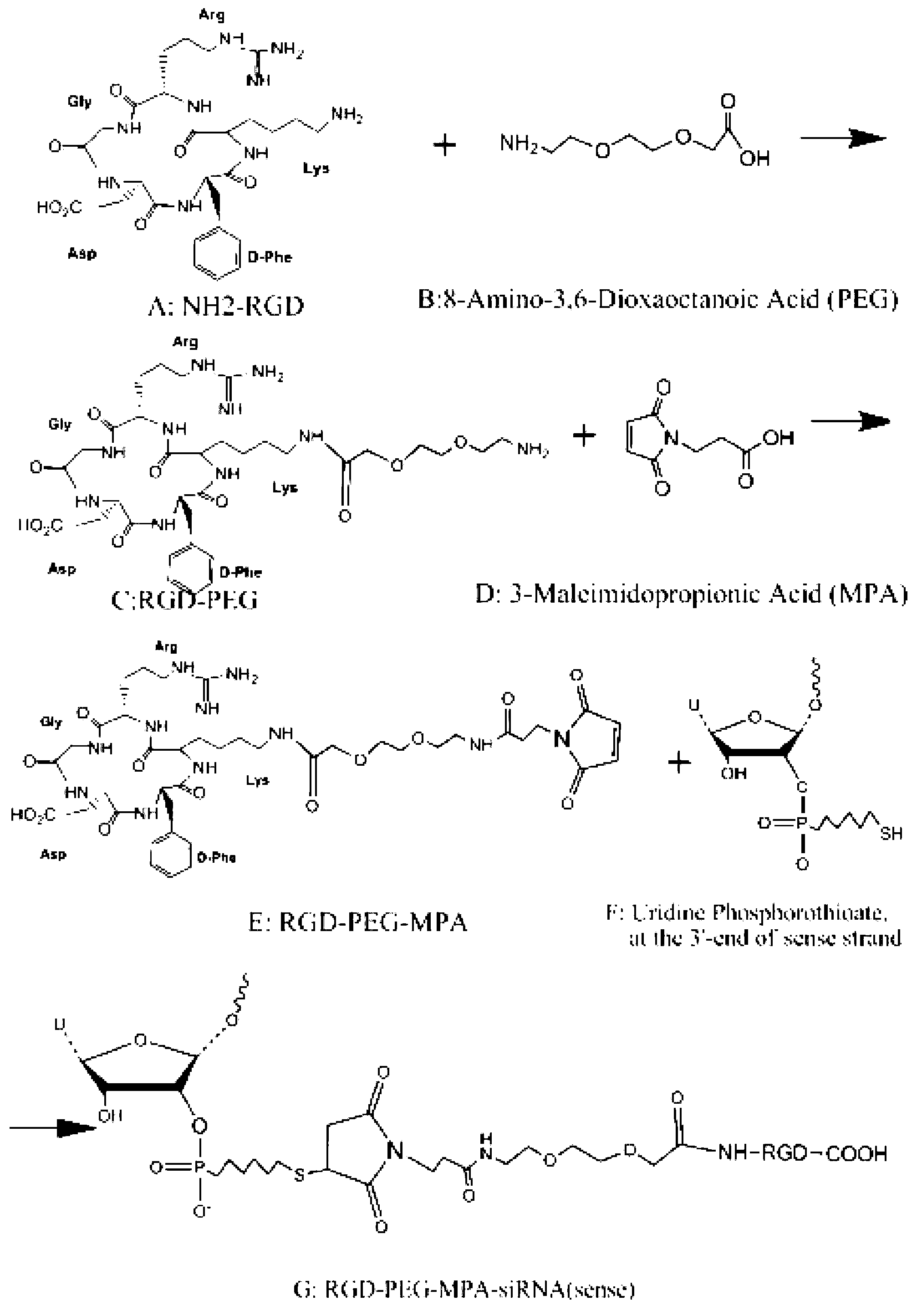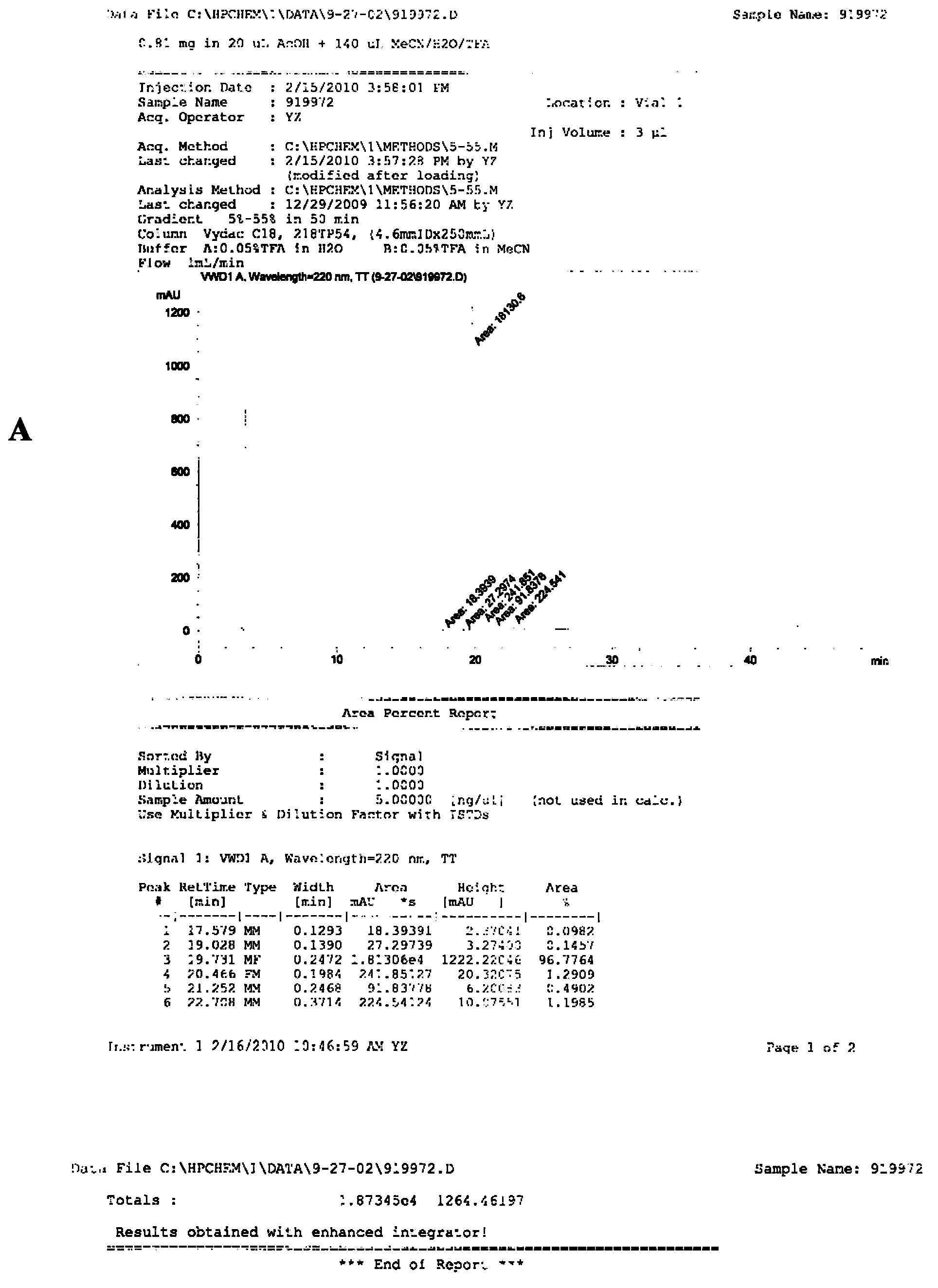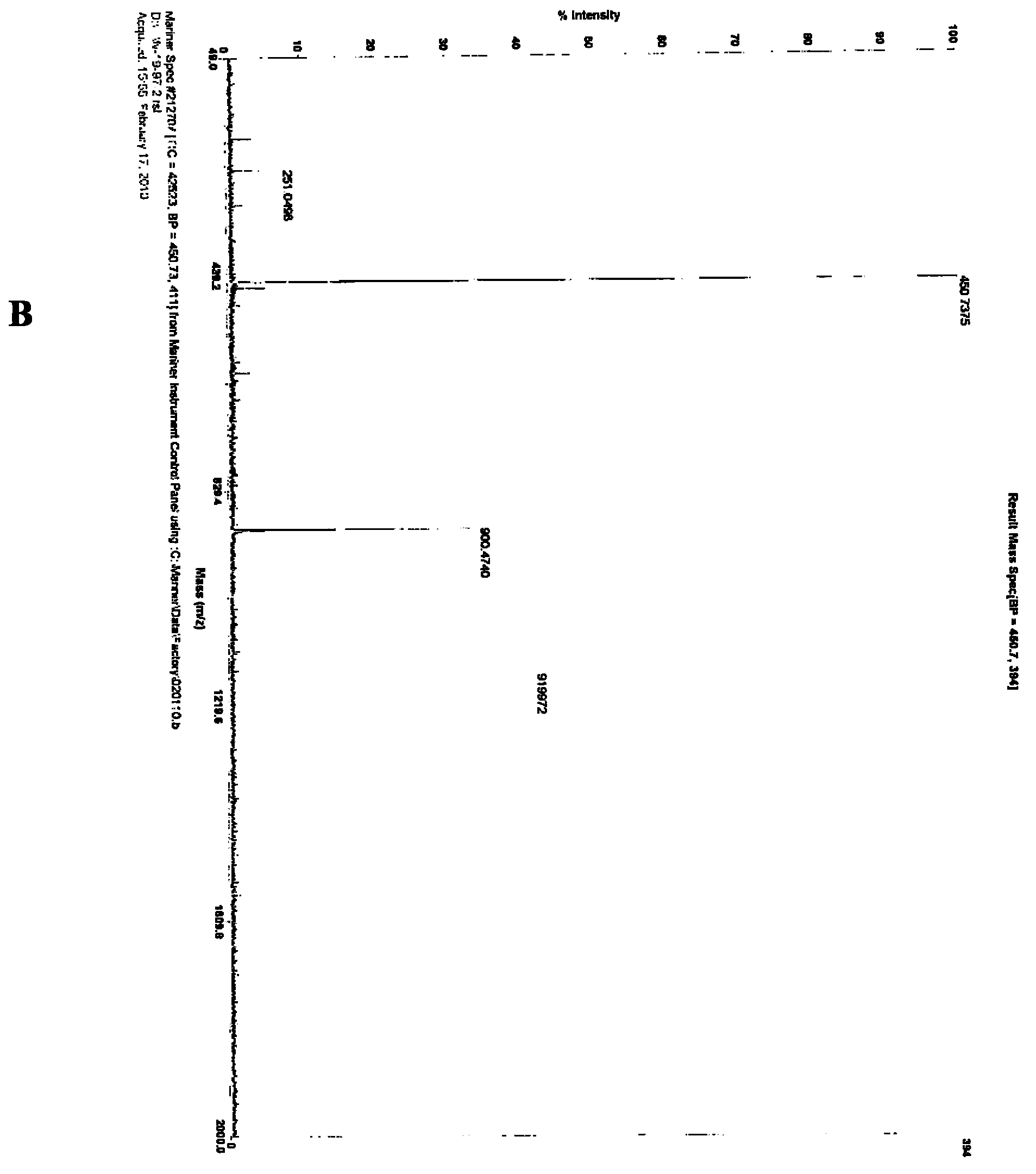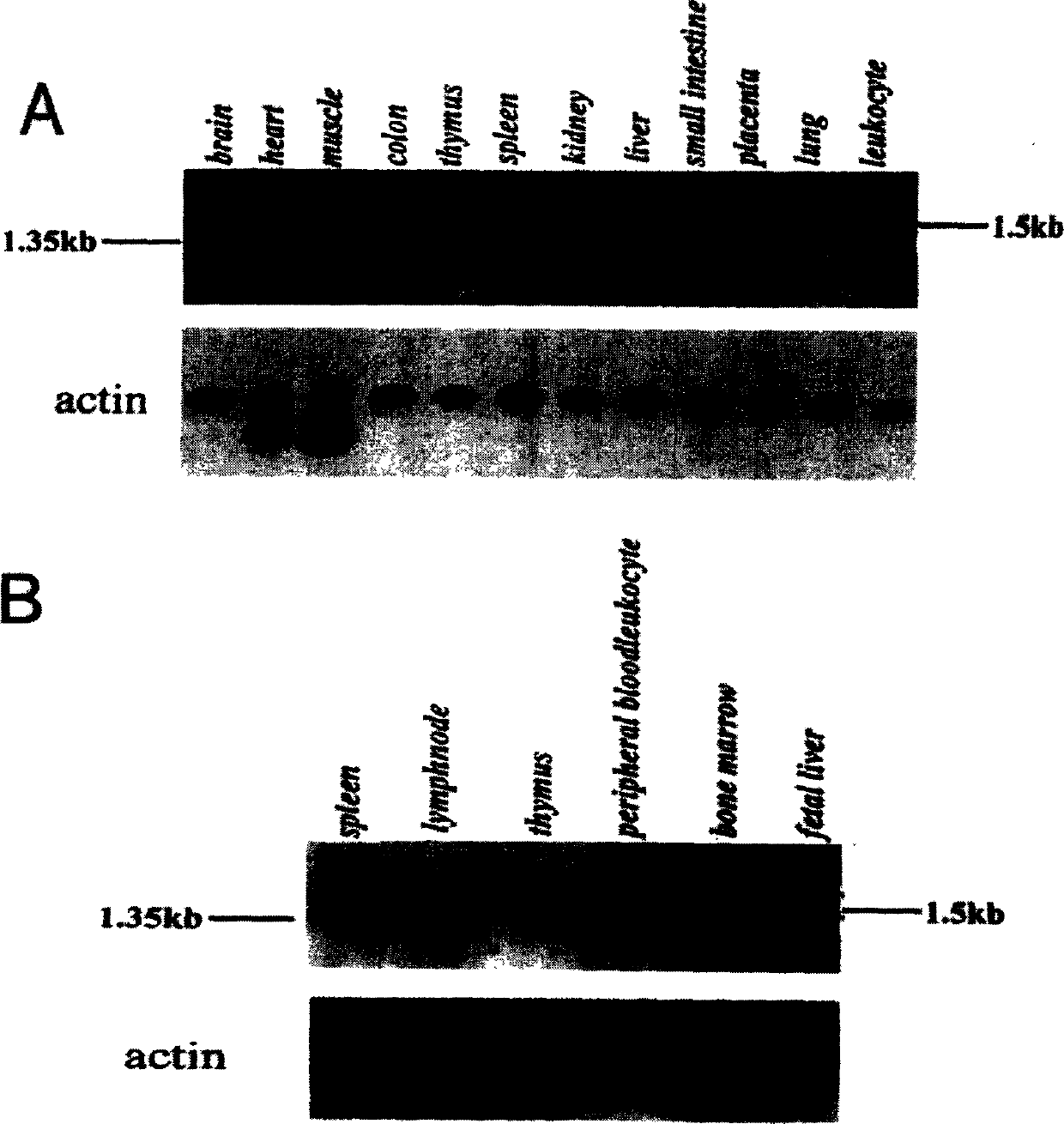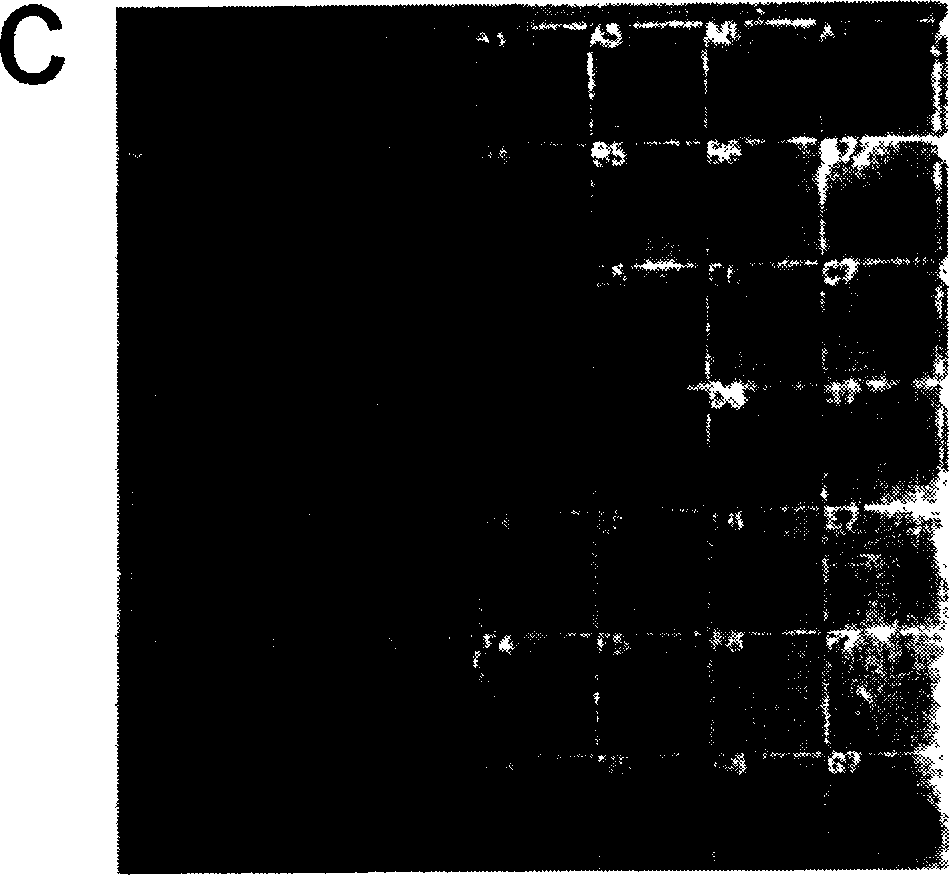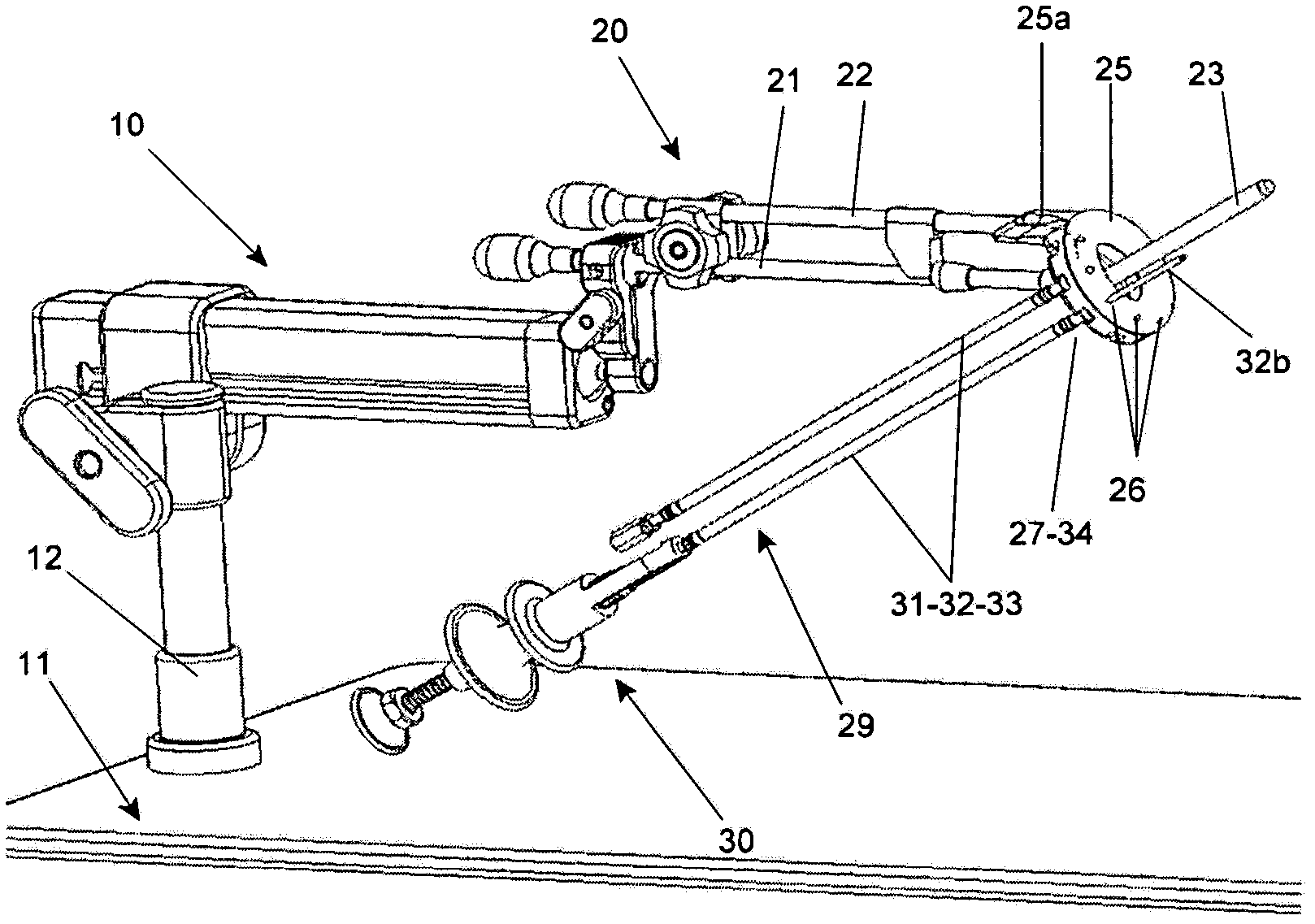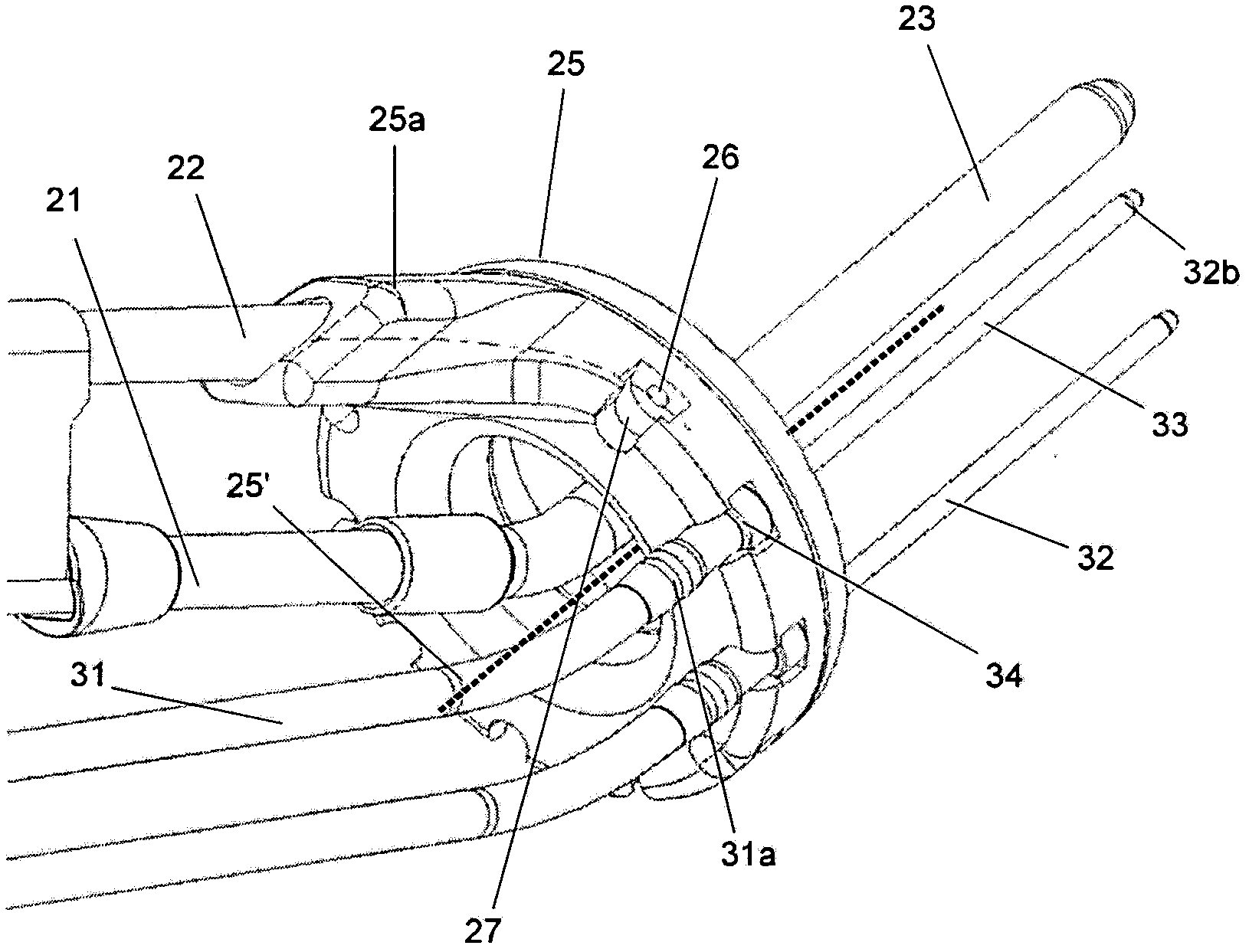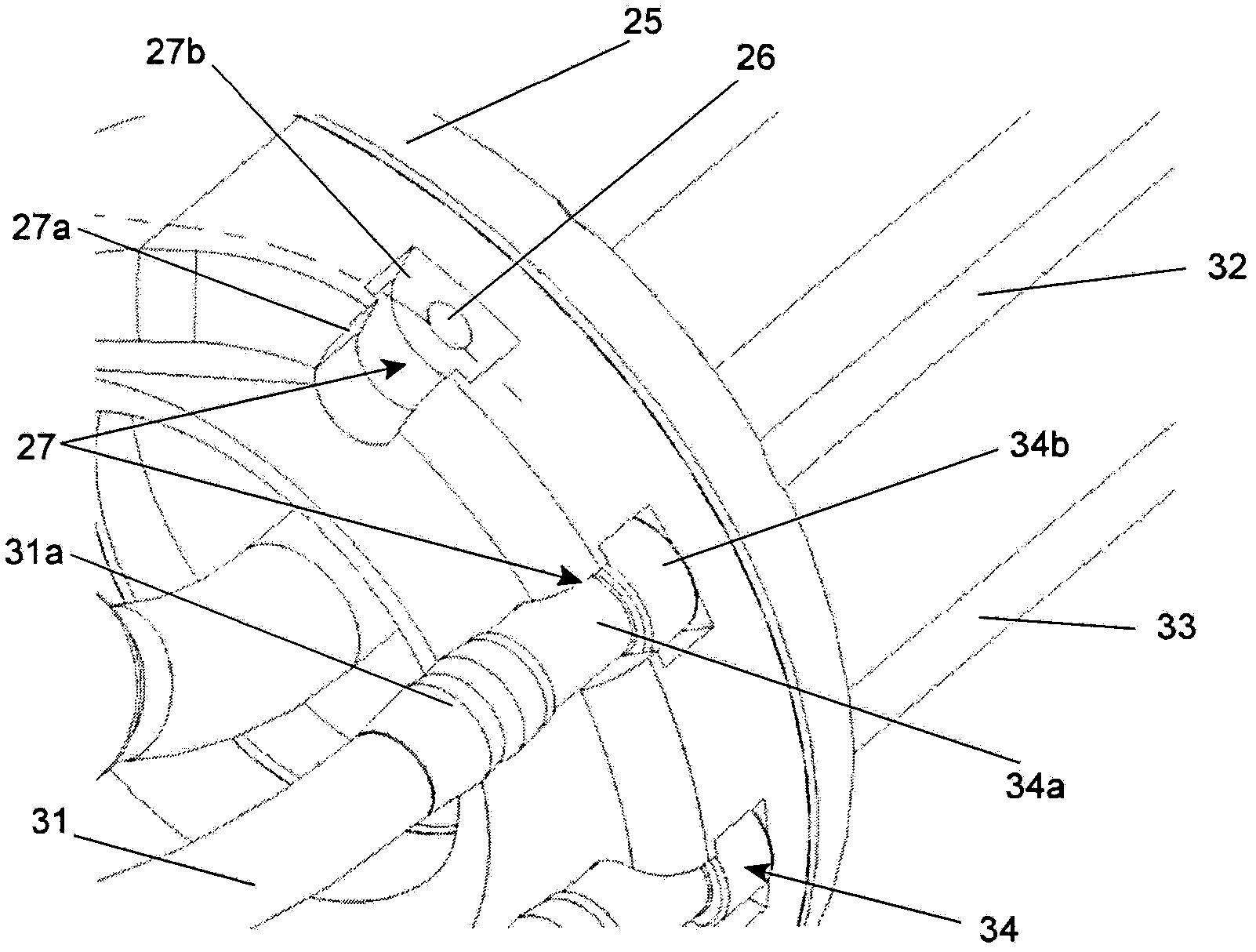Patents
Literature
Hiro is an intelligent assistant for R&D personnel, combined with Patent DNA, to facilitate innovative research.
101 results about "Tumour tissue" patented technology
Efficacy Topic
Property
Owner
Technical Advancement
Application Domain
Technology Topic
Technology Field Word
Patent Country/Region
Patent Type
Patent Status
Application Year
Inventor
Tumour - an abnormal new mass of tissue that serves no purpose. neoplasm, tumor. growth - (pathology) an abnormal proliferation of tissue (as in a tumor) acanthoma, skin tumor - a neoplasm originating in the epidermis. angioma - a tumor consisting of a mass of blood or lymphatic vessels.
Methods of growing tumor infiltrating lymphocytes in gas-permeable containers
InactiveUS20120244133A1Increase the number ofBiocideArtificial cell constructsTumour tissueCell culture media
An embodiment of the invention provides a method of promoting regression of cancer in a mammal comprising obtaining a tumor tissue sample from the mammal; culturing the tumor tissue sample in a first gas permeable container containing cell medium therein; obtaining tumor infiltrating lymphocytes (TIL) from the tumor tissue sample; expanding the number of TIL in a second gas permeable container containing cell medium therein using irradiated allogeneic feeder cells and / or irradiated autologous feeder cells; and administering the expanded number of TIL to the mammal. Methods of obtaining an expanded number of TIL from a mammal for adoptive cell immunotherapy are also provided.
Owner:UNITED STATES OF AMERICA +1
System and method for imaging and treatment of tumorous tissue in breasts using computed tomography and radiotherapy
InactiveUS20060262898A1Preventing formation of vacuumInhibition formationMaterial analysis using wave/particle radiationRadiation/particle handlingMuscle tissueTumour tissue
The present invention provides a system 10 for irradiating a breast 20 of a patient 22. The system 10 comprises a gantry 12 rotatable about a horizontal axis 14 and comprising a radiation source 16 for generating a radiation beam 18 and a detector 24 spaced from the radiation source 16, and a barrier 26 disposed between the patient 22 and the gantry 12. The barrier 26 is provided with an opening 30 adapted to allow a breast 20 passing therethrough to be exposed to the radiation beam 18. In some embodiments, the barrier 26 is provided with an opening 30 adapted to allow both the breast 20 and the tissue leading from the breast to axilla and the muscle tissue of the adjacent chest wall passing therethrough to be exposed to the radiation beam 18.
Owner:VARIAN MEDICAL SYSTEMS
Methods of growing tumor infiltrating lymphocytes in gas-permeable containers
InactiveUS20170152478A1Mammal material medical ingredientsCancer antigen ingredientsAbnormal tissue growthTumour tissue
An embodiment of the invention provides a method of promoting regression of cancer in a mammal comprising obtaining a tumor tissue sample from the mammal; culturing the tumor tissue sample in a first gas permeable container containing cell medium therein; obtaining tumor infiltrating lymphocytes (TIL) from the tumor tissue sample; expanding the number of TIL in a second gas permeable container containing cell medium therein using irradiated allogeneic feeder cells and / or irradiated autologous feeder cells; and administering the expanded number of TIL to the mammal. Methods of obtaining an expanded number of TIL from a mammal for adoptive cell immunotherapy are also provided.
Owner:UNITED STATES OF AMERICA +1
System and Method for Imaging and Treatment of Tumorous Tissue in Breasts Using Computed Tomography and Radiotherapy
InactiveUS20080317202A1Inhibition formationMinimize exposureMaterial analysis using wave/particle radiationRadiation/particle handlingTumour tissueMuscle tissue
The present invention provides a system 10 for irradiating a breast 20 of a patient 22. The system 10 comprises a gantry 12 rotatable about a horizontal axis 14 and comprising a radiation source 16 for generating a radiation beam 18 and a detector 24 spaced from the radiation source 16, and a barrier 26 disposed between the patient 22 and the gantry 12. The barrier 26 is provided with an opening 30 adapted to allow a breast 20 passing therethrough to be exposed to the radiation beam 18. In some embodiments, the barrier 26 is provided with an opening 30 adapted to allow both the breast 20 and the tissue leading from the breast to axilla and the muscle tissue of the adjacent chest wall passing therethrough to be exposed to the radiation beam 18.
Owner:VARIAN MEDICAL SYSTEMS
System for detecting pulmonary malignant tumour and benign protuberance based on PET/CT image texture characteristics
InactiveCN101669828AImprove processing efficiencyImprove user experienceImage analysisComputerised tomographsTumour tissueFungating tumour
The invention relates to a system for detecting a pulmonary malignant tumour and a benign protuberance based on PET / CT image texture characteristics, belonging to the technical field of medical digital image processing. The invention has the major function of searching useful texture characteristics from a PET / CT picture to better distinguish a pulmonary tumour tissue and a benign tissue. The system comprises the following steps: firstly, dividing a region of interest ROI from the PET / CT image and then extracting five texture characteristics of roughness, contrast, busyness, complexity and intensity of the ROI; then, carrying out classifying discrimination on the characteristics by distance calculation and a characteristic classifier and distinguishing the malignant tumour and the benign protuberance effectively by the combined data of various characteristics.
Owner:FUDAN UNIV
Ablation treatment planning and device
ActiveUS20120237105A1Risk minimizationAvoid damageImage analysisCharacter and pattern recognitionTumour tissueMulti-planar Reformatting
An ablation treatment planning and, optionally, guiding method usable for e.g. tumour tissue ablation with a cryoablation needle which cools down an adjacent tumour tissue to thereby generate an ablation volume is proposed. In order to be able to plan an ablation treatment, a 3D image data set of a region of interest may be acquired by e.g. X-ray imaging using e.g. a C-arm system. Then, 3D model data of the ablation volume are introduced into the 3D image data set for example by tagging image pixels using a stencil buffer and possibly by culling specific inside areas and / or outside areas of the ablation volume. Finally, a 2D image to be visualized to a physician and comprising a projection of the region of interest and the ablation volume is drawn wherein an MPR (multi planar reformatting) plane in which the 2D image is drawn is used as a clipping plane. With such graphical approach, an ablation volume having any arbitrary shape such as for example an ellipsoid shape may be visualized within a 3D image space by drawing 2D images in any desired MPR plane such that also oblique orientations of the ablation volume can be represented. In a subsequent guiding procedure, an ablation needle may be guided to a location and in an orientation as previously planned.
Owner:KONINKLIJKE PHILIPS ELECTRONICS NV
Serum-free cell culture fluid suitable for enriching and culturing tumour stem cells
The invention provides a serum-free cell culture fluid suitable for enriching and culturing tumour stem cells. DMEM / f12 serves as the basic culture fluid of the serum-free cell culture fluid and transferrin, insulin and other substances are also added as the components of the serum-free cell culture fluid. The serum-free cell culture fluid provided by the invention can efficiently enrich tumour stem cells from malignant tumour cell strains and tumour tissues. In addition, the serum-free cell culture fluid can promote stable growth of the tumour stem cells and maintain fine cell activity and physiological properties of the tumour stem cells, thus being very suitable for research fields related to tumour cells and tumour stem cells.
Owner:SUN YAT SEN UNIV
Rare earth upconversion nano crystal/silver difunctional composite nano material, preparation method thereof and application thereof in cancer detection and treatment
InactiveCN101948694ANot easy to decomposeGood light stabilityEnergy modified materialsColor/spectral properties measurementsTumour tissueNear infrared laser
The invention provides a rare earth upconversion nano crystal / silver difunctional composite nano material and a preparation method thereof as well as application thereof in preparation of medicine for treating tumour. The composite nano material can inhibit the growth of tumour tissue and can be used with anti-tumour medicine, thus improving medicine effect and achieving the aim of treatment; thecomposite nano material is difficult to decompose and has good light stability; damage to human body is less, the composite nano material can be taken as heat sensitizing agent and can absorb infrared light, the near infrared region (800-1200nm) is a transmission window of organism tissue, and damage of near infrared laser to human body is far less than that of laser in other wavebands, thus reducing damage to human body, being capable of being used as photothermal conversion agent and being superior when used for diagnosis and treatment on malignant tumour.
Owner:JILIN UNIV
Methods for inhibiting brain tumor growth
InactiveUS20030157098A1Peptide/protein ingredientsImmunoglobulins against cell receptors/antigens/surface-determinantsTumour tissueCell adhesion
The present invention describes methods for inhibition of tumor growth in the brain, using antagonists of integrins such as alphavbeta3 and alphavbeta5. Antagonists of the present invention can inhibit angiogenesis in brain tumor tissue. They can also inhibit vitronectin and tenascin-mediated cell adhesion and migration in brain tumor cells. They can further induce direct brain tumor cell death.
Owner:CHILDRENS HOSPITAL OF LOS ANGELES
Oral squarmous cell carcinomas pathogenic gene BPIFB2 and application thereof
InactiveCN104059982AGood correlationConvenient for clinical operationMicrobiological testing/measurementTumour tissuePcr method
The invention relates to an oral squarmous cell carcinomas pathogenic gene BPIFB2 and application of the oral squarmous cell carcinomas pathogenic gene BPIFB2. RNA is extracted from oral squarmous tissue, tissue adjacent to the oral squarmous cell carcinomas and normal tissue, deep sequencing and analyzing are performed on a transcriptome, the oral squarmous cell carcinomas relevant gene BPIFB2 is obtained through screening, an RT-PCR method is adopted for analyzing the expression conditions, on the carcinomas tissue and the tissue adjacent to the carcinomas of a patient with the oral squarmous cell carcinomas, of the screened BPIFB2, and the result shows that the obtained BPIFB2 through screening has good relevance to the oral squarmous cell carcinomas and can be used for preparing an oral squarmous cell carcinomas auxiliary diagnosis preparation or a pregnosis preparation. The invention further discloses a fluorogenic quantitative PCR kit and a using method of the fluorogenic quantitative PCR kit. The kit can detect the expression level of the BPIFB2 in oral squarmous cell carcinomas tissue sensitively, rapidly, quantitatively, accurately and stably and has good application prospects.
Owner:BEIJING MEDINTELL BIOMED CO LTD
Method for preparing digestive tract stent carried with medicines of micro-/nanometer balls
InactiveCN1792387ALarge particle sizeImproved particle size distributionSurgeryPharmaceutical containersTumour tissueMicrosphere
A process for preparing the scaffold carrying the medicine-carried slow-release nano-balls to treat the benign or malignant stenosis of esophagus and digestive tract includes such steps as preparing micro-balls by one of 4 methods, preparing nano-balls by one of 4 methods, preparing medicine layer, preparing liner layer and preparing protective layer.
Owner:SHANGHAI JIAO TONG UNIV
Molecular markers predicting response to adjuvant therapy, or disease progression, in breast cancer
Predicting response to adjuvant therapy or predicting disease progression in breast cancer is realized by (1) first obtaining a breast cancer test sample from a subject; (2) second obtaining clinicopathological data from said breast cancer test sample; (3) analyzing the obtained breast cancer test sample for presence or amount of (a) one or more molecular markers of hormone receptor status, one or more growth factor receptor markers, (b) one or more tumor suppression / apoptosis molecular markers; and (c) one or more additional molecular markers both proteomic and non-proteomic that are indicative of breast cancer disease processes; and then (4) correlating (a) the presence or amount of said molecular markers and, with (b) clinicopathological data from said tissue sample other than the molecular markers of breast cancer disease processes. A kit of (1) a panel of antibodies; (2) one or more gene amplification assays; (3) first reagents to assist said antibodies with binding to tumor samples; (4) second reagents to assist in determining gene amplification; permits, when applied to a breast cancer patient's tumor tissue sample, (A) permits observation, and determination, of a numerical level of expression of each individual antibody, and gene amplification; whereupon (B) a computer algorithm, residing on a computer can calculate a prediction of treatment outcome for a specific treatment for breast cancer, or future risk of breast cancer progression.
Owner:LINKE STEVEN +2
Interventional ablation device with tissue discriminating capability
InactiveUS20120316558A1Simple and cost-effective monitoringUltrasonic/sonic/infrasonic diagnosticsSurgical needlesTumour tissueHealthy tissue
An interventional ablation device (1) is proposed to comprise an ablation needle (3) with an elongated body (5) and a handle (7). Adjacent to an ablation element (9) provided on the body (5), at least one or preferably two or more sensors (11-21) are provided, preferably at both of opposing sides of the ablation element (9). The ablation device (1) is adapted for detecting physiological information of tissue (27, 29, 31) surrounding an ablation site (33) based on measurement values provided by the sensors. E.g., optical sensors may be used to measure a reflectance spectrum indicating whether the adjacent tissue is healthy tissue (31), tumorous tissue (27) or ablated tissue (29). Using such information, an ablation process may be controlled.
Owner:KONINKLIJKE PHILIPS ELECTRONICS NV
Nanometer composite material and applications of nanometer composite material in tracing of lymph nodes
PendingCN108452323ASimple processLow costPowder deliveryEnergy modified materialsLymphatic vesselLymph fluid
The present invention discloses a nanometer composite material, which can be used as a lymph node tracer and is easily phagocytized by macrophages in lymphatic vessels, wherein the traced lymph nodesare black and emit fluorescence under the irradiation with excitation light so as to be easily discovered and cleared, and undiscovered tiny lymph nodes can be monitored and ablated by combining the irradiation of tumors and surrounding tissues with near-infrared light and the imaging of tumors and surrounding tissues with near-infrared thermal imager so as to completely clear the lymph nodes around the tumor tissues. The nanometer composite material sequentially comprises an inner core and at least a coating layer from inside to outside, wherein the inner core is black, and each layer of thecoating layer contains at least one selected from a fluorescent material, a fluorescent dye and an organic macromolecule polymer. The invention further discloses a preparation method of the nanometercomposite material, and a lymph node tracer containing the nanometer composite material and / or the inner core.
Owner:NINGBO INST OF MATERIALS TECH & ENG CHINESE ACADEMY OF SCI
Sigma-2 Receptor, Method of Screening of Specific Ligands and Use of the Same in Diagnostic or Therapeutic Methods
The present invention relates to the identification, isolation and characterization of the proteins forming the sigma-2 receptor. The invention further relates to the utilization of said proteins for preparing a screening for the sigma-2 receptor, as well as assay of specific candidate ligands to the use of the ligands for setting up diagnostic assays for tumour tissues and for preparing antitumour drugs. Lastly, the isolated proteins are utilized for producing anti-receptor antibodies, which likewise find employ in the diagnosis and therapeutic treatment of neoplasias.
Owner:UNIV DEGLI STUDI DI BARI
Compounds and Methods for Treating Cancer and Diseases of the Central Nervous System
InactiveUS20110319459A1Inhibit tumor growthReducing cancerBiocideOrganic active ingredientsTumour tissueCancer prevention
Disclosed are compounds of the general formula (I):TCnD (I),compositions comprising an effective amount of said compounds either alone or in combination with other chemotherapeutic agents, and methods useful for treating or preventing cancer and for inhibiting tumour tissue growth. These compounds attenuate the oxidative damage associated with increased heme-oxygenase activity and can reduce cell proliferation in transformed cells. In addition, the described compounds and compositions are useful as neuroprotectants and for treating or preventing neurodegenerative disorders and other diseases of the central nervous system.
Owner:OSTA BIOTECHNOLOGIES INC +2
Suppression of inhibitors
InactiveUS20010034327A1Peptide/protein ingredientsGenetic material ingredientsTumour tissueLymphatic Spread
The present invention relates to methods for inhibiting malignant tumour growth, invasion and / or metastasis in a patient, the method comprising suppressing the inhibitory activity of an inhibitor of a protease or of a non-proteolytic matrix-degrading enzyme (IPNME) in malignant tumour tissue or potential malignant tumour tissue. The suppression may be brought about by administering compounds interacting with the IPNME, but also administration of compounds interacting with transcription of genes encoding the IPNME is a possibility. The invention also relates to methods of selecting and identifying compounds in the therapeutical methods, as well of the use of such compounds in the treatment of malignancies.
Owner:BRUNNER NIELS +7
Polymer for fluorescein angiogram and isotope angiogram
InactiveCN102070747AReduce distractionsHigh resistance to photobleachingRadioactive preparation carriersLuminescent compositionsTumour tissueSynthesis methods
The invention belongs to the field of polymer synthesis, and particularly relates to a polymer for fluorescein angiogram and isotope angiogram and a synthesis method of the polymer. The synthesis method mainly comprises the following steps: (1) reacting a hydroxyl-containing olefine acid ester substance with rhodamine, which contains a carboxyl group at the 3<-> position and is subjected to acyl chlorination to form a monomer containing a rhodamine group; (2) reacting tyrosine ester hydrochloride after deacidification with acrylic anhydride to obtain a monomer containing a tyrosine group; and (3) copolymerizing the two monomers and the hydroxyl-containing olefine acid ester substance to obtain a polymer contrast agent precursor. The polymer has strong red fluorescence of rhodamine substances and can lab radioisotopes; and the polymer can rapidly enter living cells, and can be enriched in not only cytoplasm but also in vivo tumour tissues.
Owner:SUZHOU UNIV
Method used separating and purifying microglia cells
The invention belongs to the field of tumour basic research, and relates to a method used separating and purifying microglia cells from glioma specimens. The method comprises following steps: a cell suspension is prepared from tumour tissues via mechanical method combined with enzymatic digestion method; the cell suspension is subjected to density gradient centrifugation so as to obtain the microglia cells of CD11B+ with a relatively high purity via enrichment and selection; and the microglia cells with a relatively high purity are obtained via further separation using CD11B+ magnetic beads. Wherein, Percoll separating medium is composed of 70% of Percoll, 30% of Percoll, and HBSS. The purity of the microglia cells obtained via percoll density gradient centrifugation enrichment can be more than 95%, and it is confirmed by immunofluorescence assay and phagocytosis assay that functions of the microglia cells are excellent. The method is simple and convenient for operation, is low in cost, is stable in quality, and is capable of providing basis for further research on immunologic functions microglia cells in brain glioma and effects of microglia cells in immune escape of tumour.
Owner:AFFILIATED HUSN HOSPITAL OF FUDAN UNIV
Conditional duplicated adenovirus and its establishment and use
InactiveCN1424401AStrong specificityEfficient specificityGenetic material ingredientsViruses/bacteriophagesTumour tissueAbnormal tissue growth
A conditionally replicated adenovirus for treating tumor can be replicated selectively in tumor cell, but not nomral cell. Its two or more promotors of early gene needed by replication are respectively substituted by the promotor of tumor cell (or tissue). Said virus can effectively kill the tumor cells by the cracking of its cells or carrying the therapeutic gene. Its advantages are high curative effect and low by-effect.
Owner:李川源 +1
Method for separating and bionic culturing pericytes of tumor cells
ActiveCN108715836AConform to the morphological characteristicsCell dissociation methodsCell culture active agentsAbnormal tissue growthTumour tissue
The invention discloses a method for separating and bionic culturing pericytes of tumor cells and relates to the field of metastasis of tumor. The method for separating and bionic culturing pericytesof tumor cells provides a departure from the traditional method of using two non-specific antibodies to label pericytes; 10 antibody labels including 5 positive labels and 5 negative labels are firstly used to separate, purify and identify pericytes. And through the morphological identification under a mircoscope, the pericytes can form microtubules in bionic culturing base, which can be seen obviously and which meet the morphological characteristics of pericytes, furthermore, the growth of pericytes in body is reproduced, and further explore of the function of the pericytes is based.
Owner:SUN YAT SEN MEMORIAL HOSPITAL SUN YAT SEN UNIV
Fusion protein of tumour new-born blood vessel-specific bonding polypeptide and recombinant human Tum-5, and its preparation method
InactiveCN1800218AAntitumor effect is obviousPrevent proliferationRecombinant DNA-technologyFermentationTumour tissueEscherichia coli
The invention discloses a method for preparing for tumour formingblood vessel peculiarity binding polypeptide and the admixture protein of human-5. The tumour formingblood vessel peculiarity binding polypeptid-CNGRCVSGCAGRC can separately combine with the tumour formingblood vessel endothelium cell surface high effect expressed aminopeptidase N (CD13). It establishes tumour formingblood vessel peculiarity binding polypeptide and the admixture protein of human-5 and obtains the high effect express in bacillus coli. It also discloses a method for preparing for human Tum-5. The Tum-5 is formed by the 54-132 bits amino acid near the N end of the Tumstatin, which is the function structure area of the Tumstatin anti-vascularization.
Owner:FOURTH MILITARY MEDICAL UNIVERSITY
Composite nano medicament-loading material for treating cancer and preparation method thereof
InactiveCN105770904ATimely positioningAvoid background fluorescenceLuminescence/biological staining preparationInorganic non-active ingredientsTumour tissueSide effect
The invention discloses a composite nano medicament-loading material for treating cancer and a preparation method thereof. The composite nano medicament-loading material takes UCNPs as a core; a layer of porous material covers the surface of the core; an anti-cancer medicament is loaded in pores; a layer of alkaline manganese compound is deposited on the surface of the porous material; the surface of the alkaline manganese compound is marked with one or more capture molecules or identification molecules. According to the composite nano medicament-loading material for treating cancer and the preparation method thereof, a common antigen antibody identification technology is utilized, and the characteristic that tumour cells can dissolve the alkaline manganese compound is utilized, and the anti-cancer medicament can be released to play a role only after the alkaline manganese compound is dissolved. The alkaline manganese compound in normal cells is hardly dissolved; the anti-cancer medicament is not released or is released slowly, so that the damage to the normal cells caused by the medicament can be greatly reduced; the side effect is low. In addition, an up-conversion luminescence fluorescence imaging technology and a nuclear magnetic resonance technology are combined, so that a double-function imaging mode of a tumour tissue is realized; the identification accuracy rate of the tumour tissue is improved; a treatment effect is observed accurately at any time.
Owner:SHENZHEN UNIV
Method and prediction model for detecting tumour mutation burden
ActiveCN111826447AStrong specificitySensitive highMedical simulationMicrobiological testing/measurementTumour tissueTarget capture
The invention relates to the technical field of biomedicine, and in particular relates to a method and prediction model for detecting the tumour mutation burden. The method comprises the following steps of: S1, performing DNA extraction on tumour tissue and blood samples to be detected; S2, for tumour-related genes, constructing a target region targeted capture sequencing library; S3, obtaining original offline data by utilizing a high-throughput sequencing platform; and S4, obtaining the tumour mutation burden of the sample through a check-out process. The invention aims to provide the methodand prediction model for detecting the tumour mutation burden. Gene mutation is detected and calculated through the method and the prediction method; the method can achieve the same result as TMB detection by whole exon sequencing; and thus, the evaluation accuracy of high tumour mutation burden can be improved.
Owner:求臻医学科技(浙江)有限公司
Patterned substrate for constructing in-vitro tumour model
InactiveCN105886472AEasy to operateEasy to moveCell culture supports/coatingSkeletal/connective tissue cellsTumour tissueEngineering
The invention discloses a patterned substrate for constructing an in-vitro tumour model. The patterned substrate comprises a substrate layer and a patterned structure which is arranged on the substrate layer; the patterned structure forms the in-vitro tumour model on the substrate layer after being subjected to pulling treatment. The in-vitro tumour model constructed on the substrate layer can be used for simulating an in-vivo tumour tissue, so that the cell biological behaviours of tumour cells are researched, and the interactions among cells are observed; the in-vitro tumour model can also be used for screening medicaments and observing the effects of an anti-tumour medicament on the tumour cells in the in-vitro tumour model. According to the patterned substrate for constructing the in-vitro tumour model, the in-vitro tumour model which is prepared by a simple method has the characteristics of simple operation, portability, individuation and the like; an important research platform is provided for precision medicine and translational medicine research.
Owner:SUN YAT SEN UNIV
Duocarmycin adcs for use in treatment of endometrial cancer
ActiveUS20160008487A1Dipeptide ingredientsTetracycline active ingredientsTumour tissueUterine serous carcinoma
The present invention relates to duocarmycin-containing antibody-drug conjugates (ADCs) for use in the treatment of human solid tumours expressing HER2, wherein the human solid tumour expressing HER2 is endometrial cancer, in particular uterine serous carcinoma (USC). In particular, the present invention relates to duocarmycin-containing ADCs for use in the treatment of endometrial cancer, notably USC, with HER2 IHC 2− or 1+ and HER2 FISH negative tumour tissue status.
Owner:BYONDIS BV +1
Wedge-shaped cutting and binding apparatus
The invention provides a wedge-shaped cutting and binding apparatus, which comprises a first clamping seat and a second clamping seat which are mutually hinged, a nail bin, a nail anvil and a nail-pushing sheet seat, wherein at least two rows of nail bin holes and a bar-shaped cutter groove are formed on the surface of the nail bin; a group of nail-pushing sheets, a cutter knife and nails are moveably arranged in the nail bin; the surface of the nail anvil is provided with at least one row of nail-forming grooves and a bar-shape anvil correspondingly; the nail-pushing sheets and the cutter are fixed on the nail-pushing sheet seat; the nail-pushing sheet seat is fixed at the front end of the first clamping seat; the nail bin can be relatively and glidingly arranged on the nail-pushing sheet seat; and the nail anvil is fixed at the front end of the second clamping seat. The outer contours of the nail bin, the nail-pushing sheet seat and the nail anvil are wedge-shaped. The wedge-shaped cutting and binding apparatus has the advantage that a wedge-shaped cutting and suturing track can be used for the one-off cutting and suturing formation of tumour tissues on the edge of an organ.
Owner:TOUCHSTONE INTERNATIONAL MEDICAL SCIENCE CO LTD
Cancer cell-targeting structural molecule and use thereof
InactiveCN103232531AAvoid the defects of rapid metabolismHigh transfection efficiencyGenetic material ingredientsPeptidesTumour tissueCancer cell
The invention discloses a cancer cell-targeting structural molecule and a use thereof. A molecule shown in the formula (I) reacts with a connection molecule containing a carboxyl structure and a maleimide group so that the cancer cell-targeting structural molecule is produced by a dehydration synthesis reaction of an amino group and a carboxyl group. The cancer cell-targeting structural molecule can be bonded with a sulfydryl (-SH)-modified nucleotide molecule, can be directly applied to a human body by blood vessel administration, can be specifically bonded with cancer cells expressing integrin family alpha v beta 3 acceptors or with new vessel endothelial cells in cancer tissue, can effectively penetrate a cell membrane by receptor-mediated endocytosis, and can convey the nucleotide molecule into cytoplasm. In the formula (I), n is in a range of 1-10.
Owner:WUHAN ZEZHI BIOLOGICAL PHARMA +1
Central body located gene and its use in medicinal region
InactiveCN1657537APromote proliferationPromote cancerOrganic active ingredientsSugar derivativesTumour tissueDisease
A centrosome located gene cep is disclosed, which is prepared through sequencing, biological information analysis, and gene technique. It can be used as the candidate gene for treating the diseases is hemopoietic system and the generation and transfer of tumor, or as the target point of genetically engineered medicine.
Owner:RADIOLOGY INST ACAD OF MILITARY MEDICINE SCI PLA
Components and assembly for performing brachytherapy treatment of tumour tissue in a human and animal body
ActiveCN102378639AAvoid displacementLess discomfortSurgical needlesMedical devicesTumour tissueCoupling
The invention relates to an assembly for performing brachytherapy treatment of tumour tissue in a human or animal body comprising an intracavitary component and at least one guiding unit, said at least one guiding unit exhibiting a longitudinal axis and being connectable to said intracavitary component, and wherein said at least one guiding unit is provided with coupling means for coupling at least one interstitial needle-assembly for delivering treatment to said tumour tissue. The assembly has coupling / uncoupling means arranged to allow a displacement of said at least one interstitial needle-assembly in a direction transverse to said longitudinal axis and to prevent a displacement of said at least one interstitial needle-assembly in a direction parallel to or a pre-defined angle to said longitudinal axis. This coupling principle allows for the preparation of the guiding unit before the patient is being hospitalized and positioned in the treatment room and will prevent the unwanted uncoupling of the interstitial needle-assembly during the actual treatment being performed, further reducing the risk of adversely affected treatment parameters (location and duration of the radiation being administered to the patient).
Owner:NUCLETRON
Features
- R&D
- Intellectual Property
- Life Sciences
- Materials
- Tech Scout
Why Patsnap Eureka
- Unparalleled Data Quality
- Higher Quality Content
- 60% Fewer Hallucinations
Social media
Patsnap Eureka Blog
Learn More Browse by: Latest US Patents, China's latest patents, Technical Efficacy Thesaurus, Application Domain, Technology Topic, Popular Technical Reports.
© 2025 PatSnap. All rights reserved.Legal|Privacy policy|Modern Slavery Act Transparency Statement|Sitemap|About US| Contact US: help@patsnap.com
